Yuan Yuan is gaining critical acclaim on the international art scene thanks to his distinctive paintings focusing on architectural subjects, executed with impeccable technique and conveying a unique atmosphere. Yuan has had solo exhibitions at Palazzo Terzi, Italy (2018), and Galerie Malingue, Paris (2015) among others. Group exhibitions include Gropius Bau, Berlin (2019), The 12th Shanghai Biennale (2018); and White Rabbit Gallery, Sydney (2014), among others. Yuan’s works have been entered POMERANZ COLLECTION, Vienna, DSL Collection, Paris, and White Rabbit Collection, Sydney.
Born in Zhejiang, Yuan Yuan studied in the Oil Painting Department of the China Academy of Art in Hangzhou, where he gained a Bachelor of Fine Arts in 1996 and a Master of Fine Arts in 2008. As a secondary school student, he also studied traditional Chinese painting which influences his thinking. The Academy, founded in 1928, was the seedbed of modern Chinese art after its founder Lin Fengmian turned to the West in a bid to reinvigorate Chinese painting. When Yuan Yuan was studying there, while Chinese society was still very conservative, the Academy was “like a sunroof, always open for us” and he benefited from a library well stocked with foreign periodicals.
Yuan Yuan is inspired by Western artists such as Richard Long (b. 1945), who creates “art made by walking in landscapes” – sculptures which are lines or circles made from natural materials, and photographs of them. Yuan Yuan admires Long’s ability to go to places other people cannot reach, and awaken the viewer by letting them experience such places. He also cites the late Cuban-born American artist Felix Gonzalez-Torres (1957-1996), whose work “successfully places private sentiment in the common consciousness.”
Yuan Yuan’s subjects are mainly interiors, some once very grand such as great halls with neo-classical arches and balconies, others more modest such as entrances and corridors of old apartment buildings. These are based on real places, with some imaginary elements added, as he wishes to impose his own system of design.
All share a sense of abandonment and dereliction, offering just a glimpse of their former glory. Yuan Yuan says, “Ruins give us a sense of security, they are living spaces without a sense of pressure so you can do whatever you want. Abandoned places are also public, meaning that you may enter and visit. This is similar to the process of a viewer who is looking at an artwork. I am trying my best to identify the residual traces left behind – not so much what the place has now, but rather what this place used to be for a long time, which no one can take away and cannot be seen.”
In his most recent work, Yuan Yuan focuses further on enclosed spaces, such as the narrow alleyways between old buildings, or the stairwells in old apartment blocks with worn steps and ancient lift shafts. Frequently, the viewer looks through a gate, window bars, or a wire screen, at whatever lies beyond in a receding perspective. Yuan Yuan seems intent on creating an atmosphere that is closed in, even claustrophobic. Sometimes he manipulates architectural details, leaves spaces empty, or merges elements of different places to create new spaces of his own through the process of painting. As a result, the scenes he depicts seem to lie somewhere between reality and illusion.
Yuan Yuan’s compositions are highly structured and orderly, dictated by the geometric details of the architecture depicted. This may be an entire room, or a detail of a building such as a row of doors, a horizontal view of one floor of an apartment block, or a Gothic stained glass window. However, what sets Yuan Yuan’s paintings apart is the incredible detail with which he describes every individual surface within the composition. In particular, Yuan Yuan is fascinated by mosaics and patterns of tiles, whether on floors, walls, or lining pools and showers.
Yuan Yuan’s meticulous skill in depicting mosaics is unparalleled. Not only capturing thousands and thousands of tiny individual tiles in a single composition, he is able to play with an infinite variety of hues within the same colour scheme to produce a stunning visual effect. The atmosphere often feels humid in his paintings, with water in pools or dripping from the ceiling or decaying walls, and the mood is slightly wistful and melancholy. In order to achieve the effect of wet surfaces, he applies several layers of diluted pigment, a classical Chinese painting technique.
At first glance, Yuan Yuan’s paintings seem devoid of any human presence, like forgotten stage sets without any actors. Yet this is not quite true. Yuan Yuan wants to represent people by depicting traces of human activity, which heighten our curiosity. Thus, at the same time as describing in microscopic detail every element in a scene, Yuan Yuan also conveys a sense of passing time, of transition and history. He says, “What I mean by invisible things is time. People are afraid of it.”
Yuan Yuan Berlin, Germany, B. Zhejiang, China, 1973
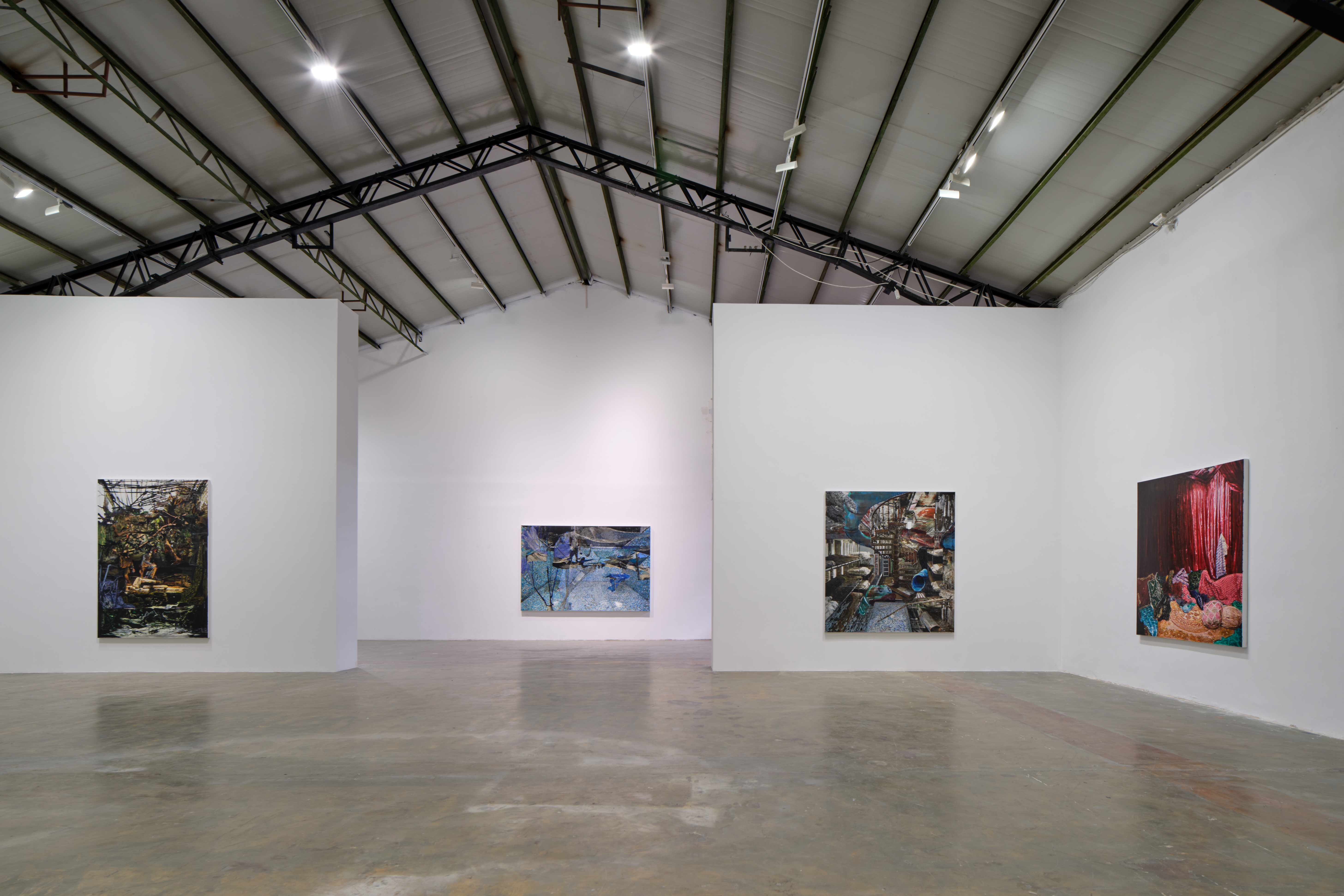
Yuan Yuan, solo exhibition, “Understory”, Kiang Malingue at Qiao Space, 2022.
Photo by Zhang Hong.
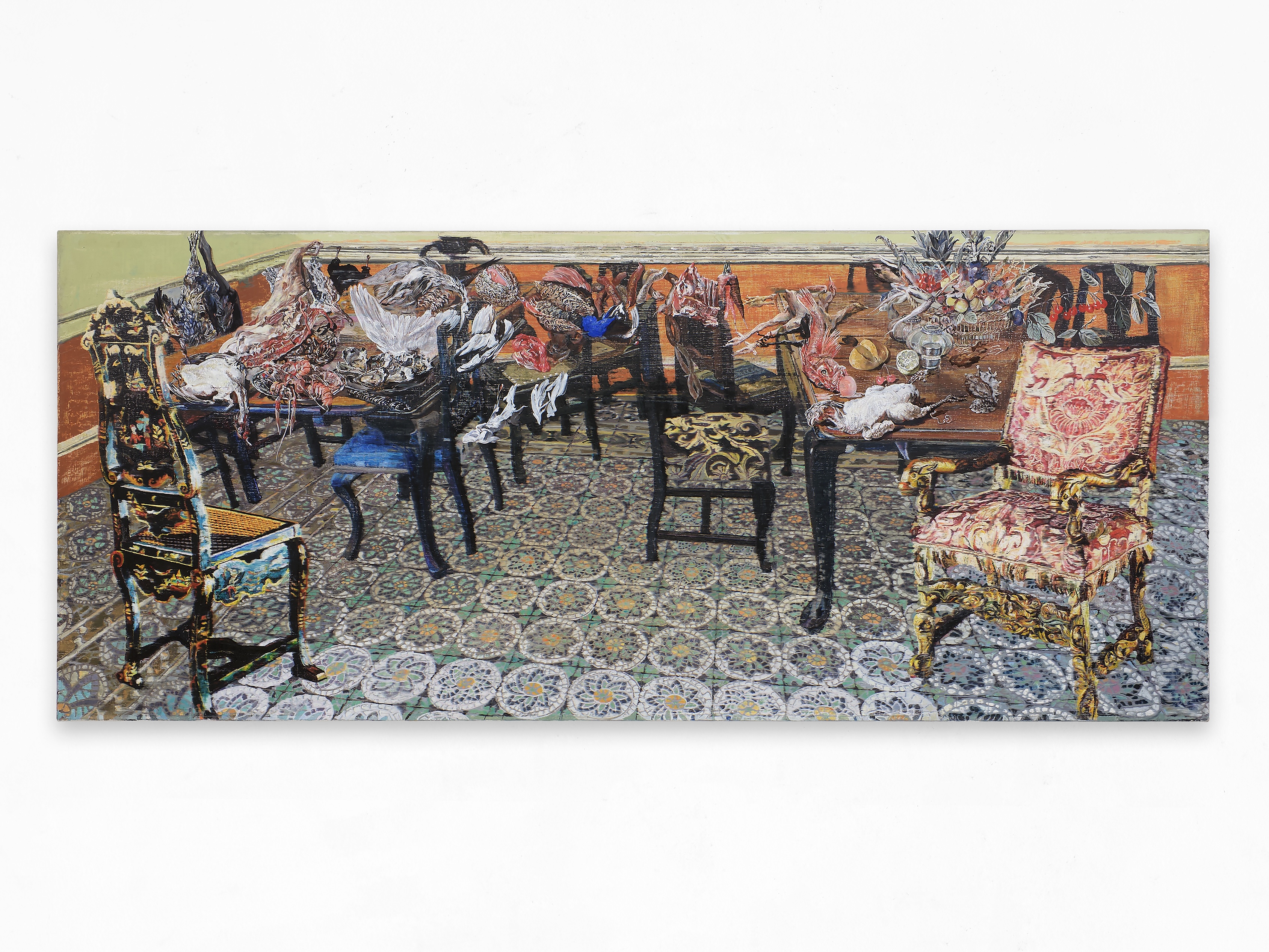
Still Life Study
2025
Oil on linen
85 x 200 cm
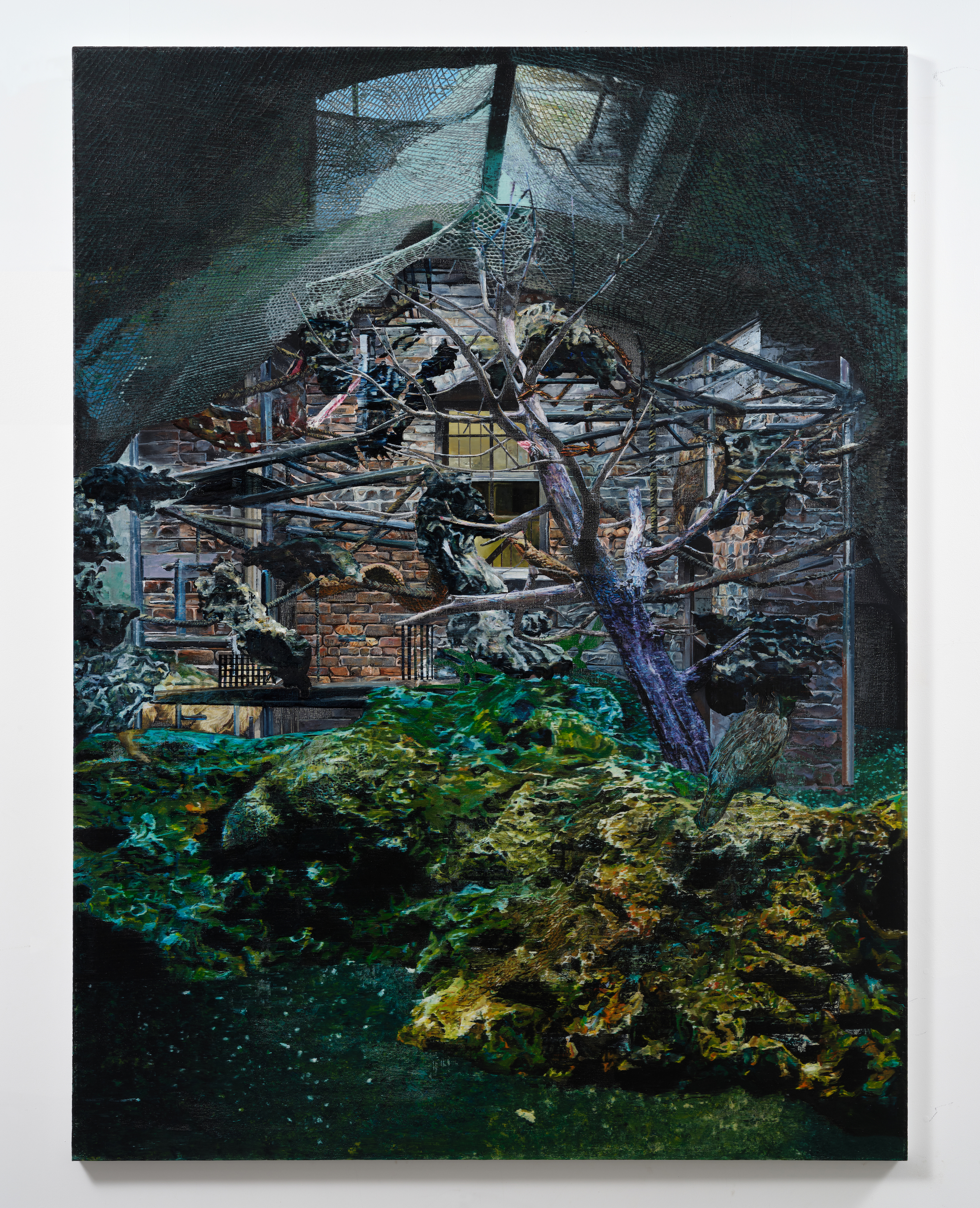
Understory
2022
Oil on linen
200 x 150 cm
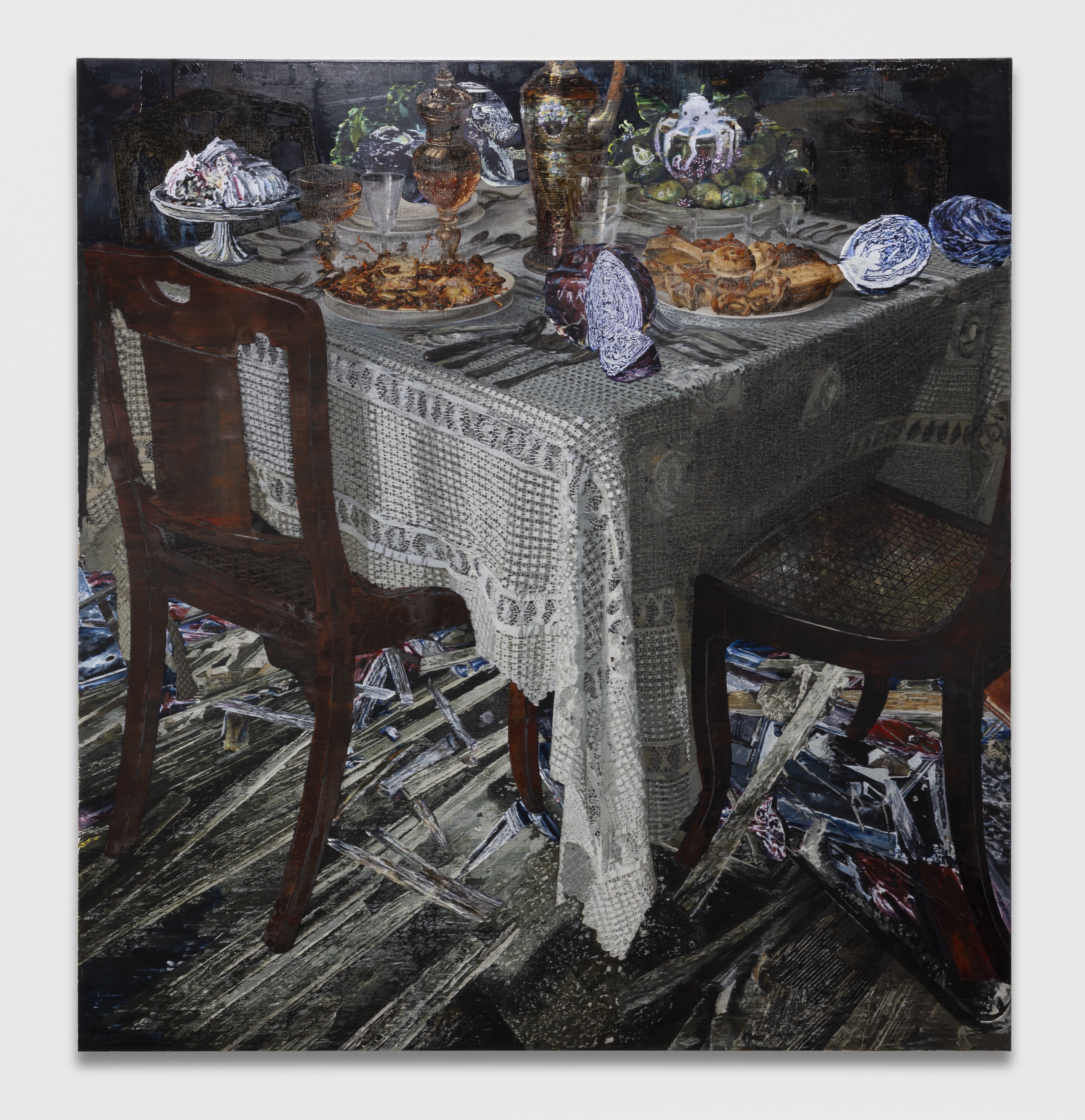
Eight immortals table
2023
Oil on linen
180 x 170cm
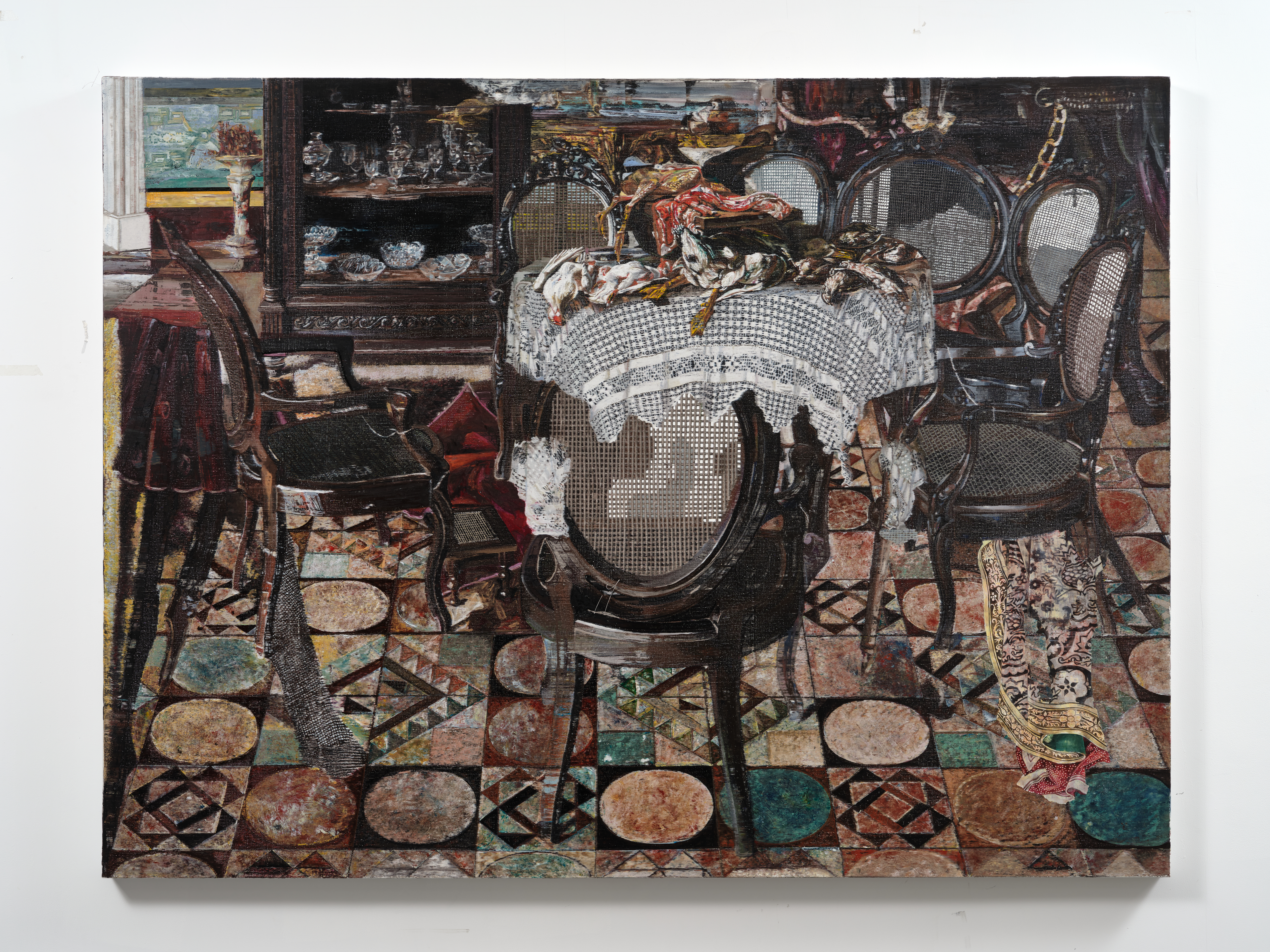
Museum’s Restaurant
2022
Oil on linen
150 x 200 cm
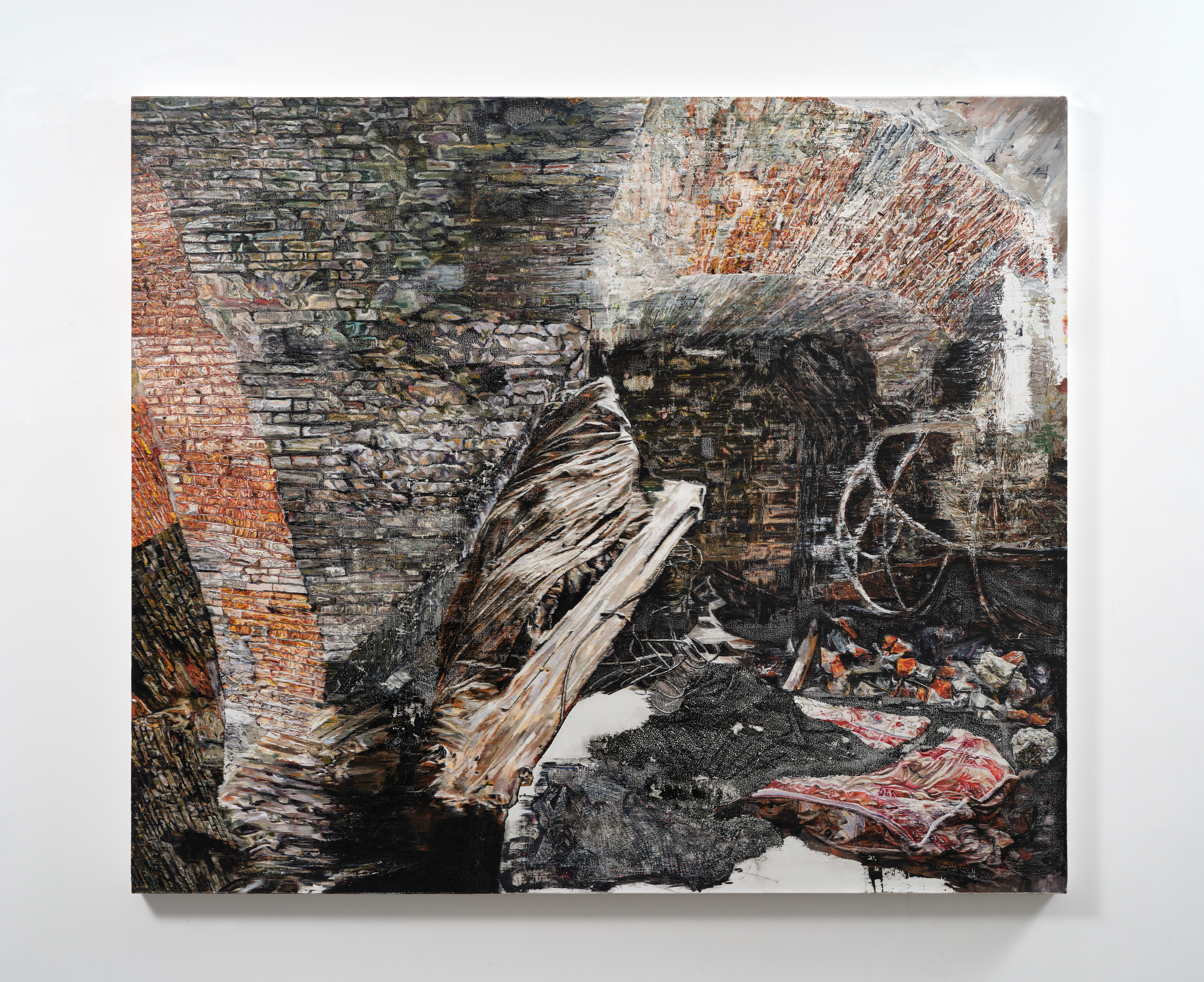
Folded into a Mattress
2022
Oil on linen
170 x 200 cm
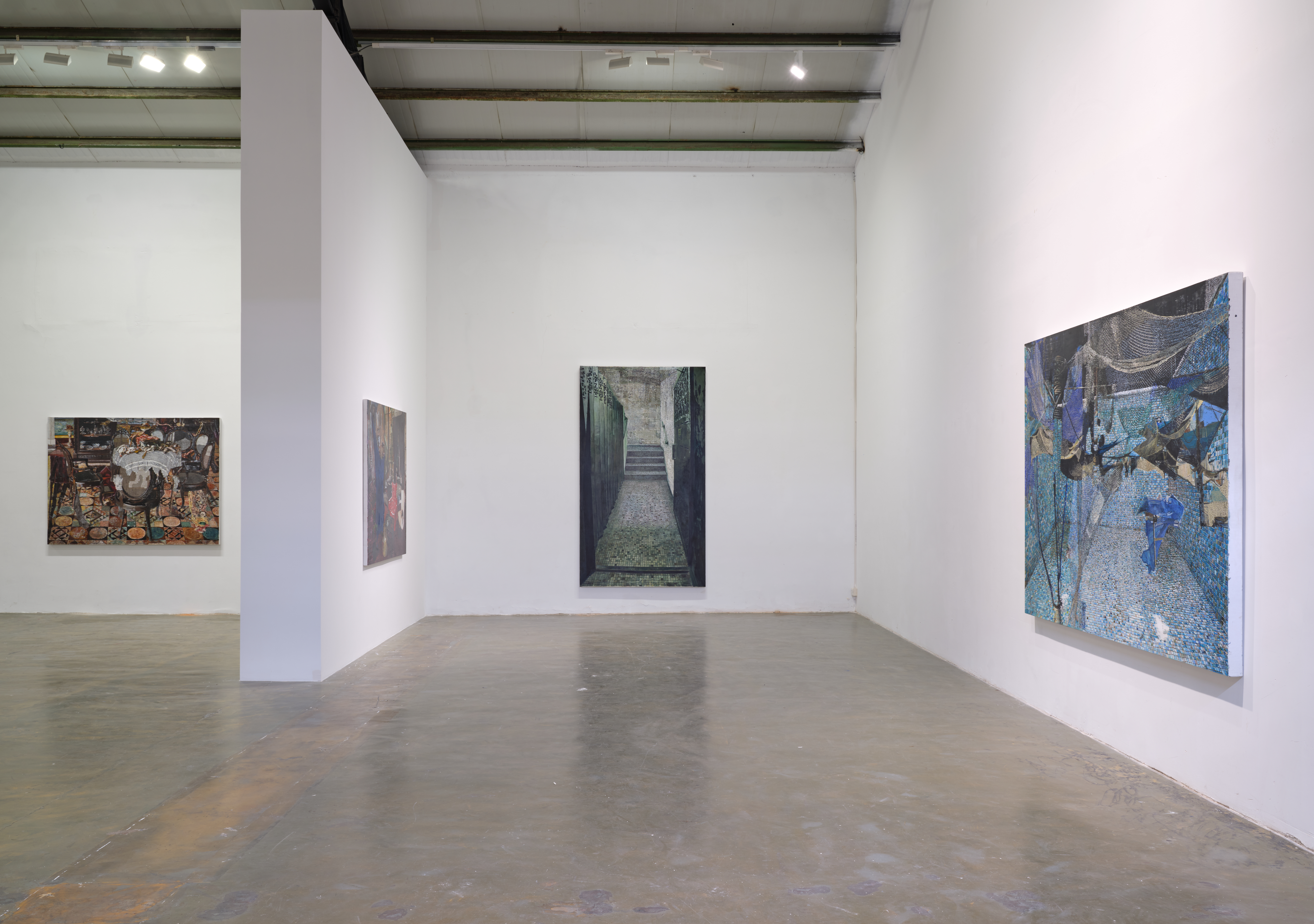
Yuan Yuan, solo exhibition, “Understory”, Kiang Malingue at Qiao Space, 2022.
Photo by Zhang Hong.
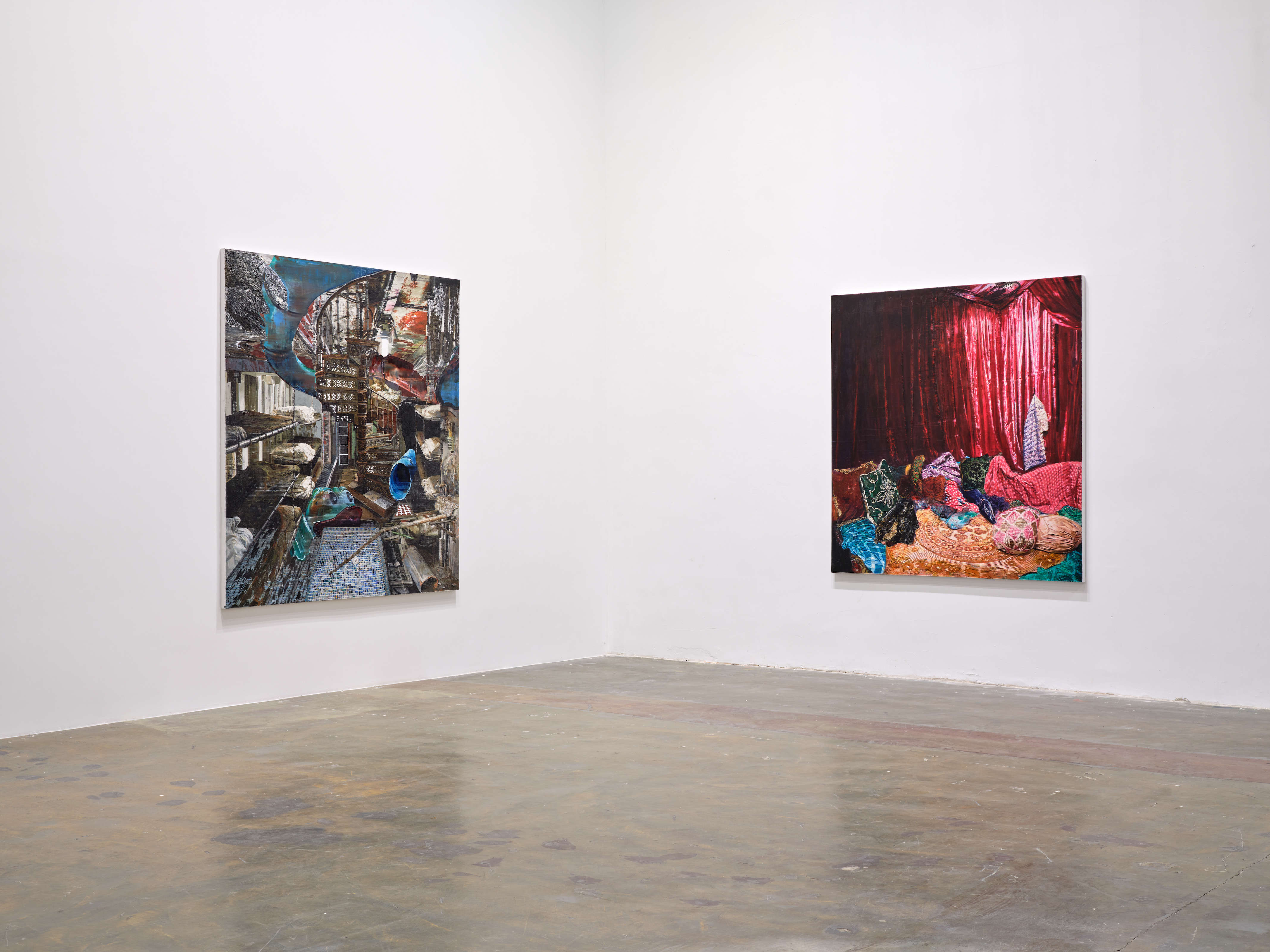
Yuan Yuan, solo exhibition, “Understory”, Kiang Malingue at Qiao Space, 2022.
Photo by Zhang Hong.
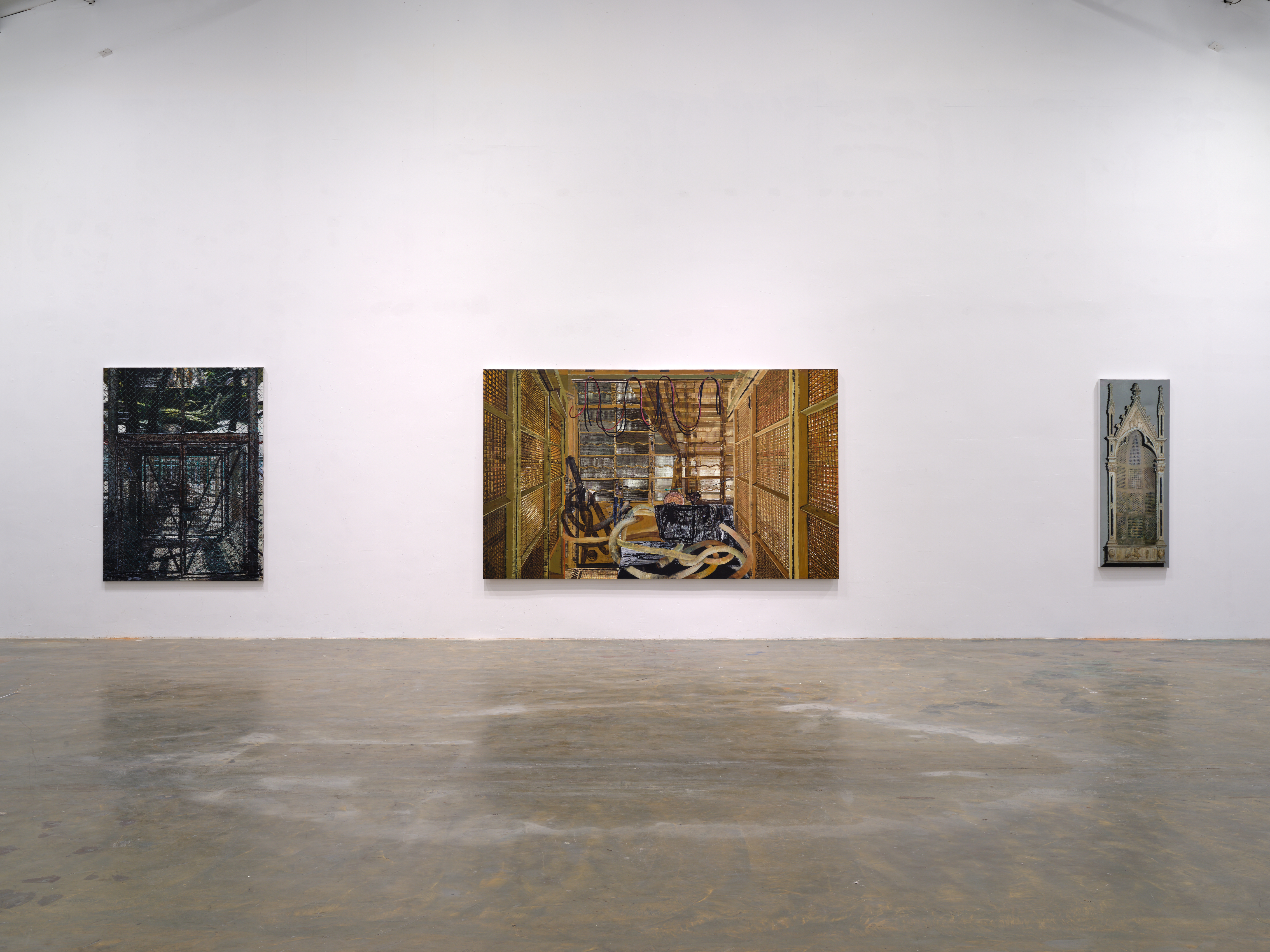
Yuan Yuan, solo exhibition, “Understory”, Kiang Malingue at Qiao Space, 2022.
Photo by Zhang Hong.
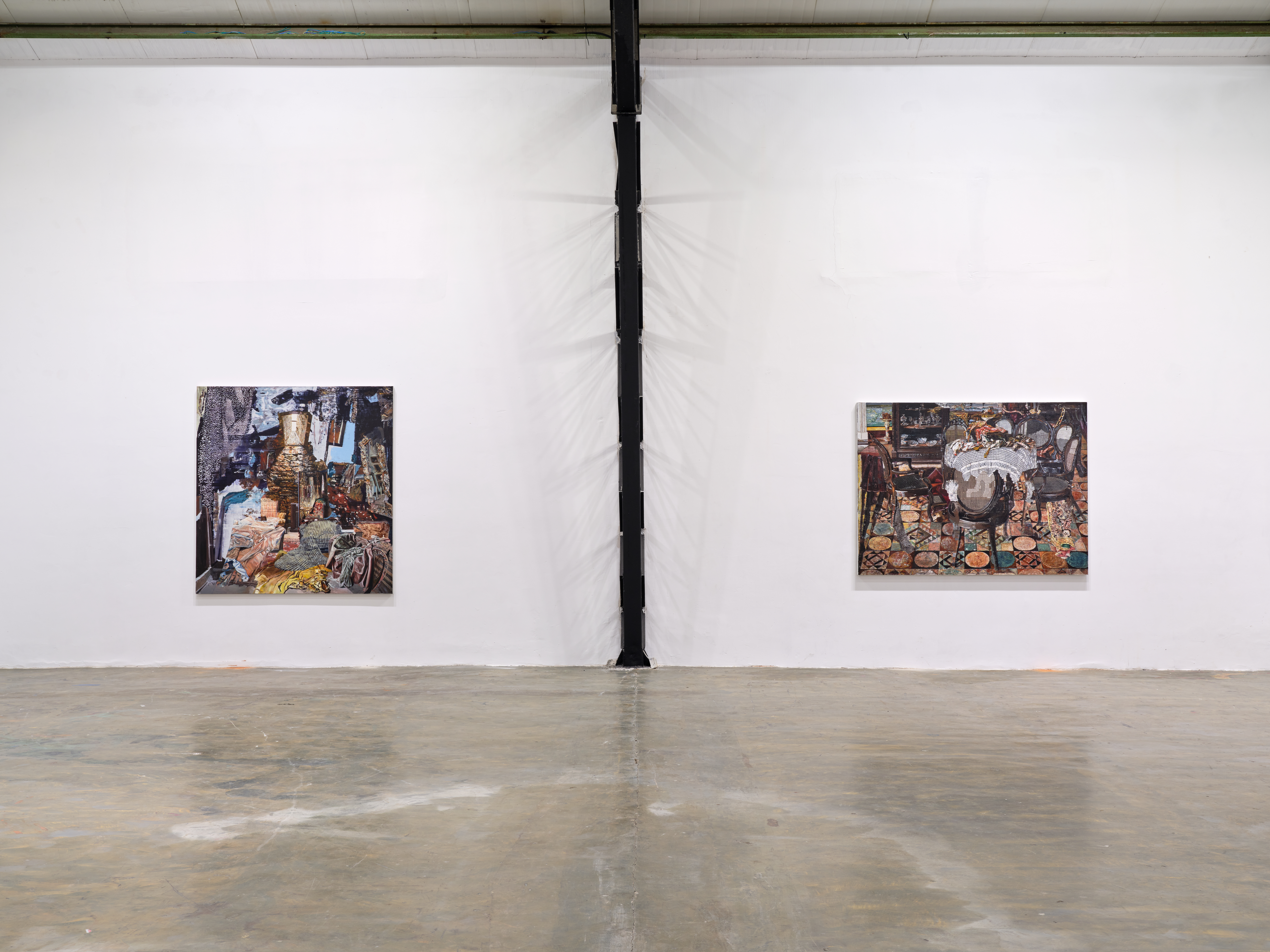
Yuan Yuan, solo exhibition, “Understory”, Kiang Malingue at Qiao Space, 2022.
Photo by Zhang Hong.
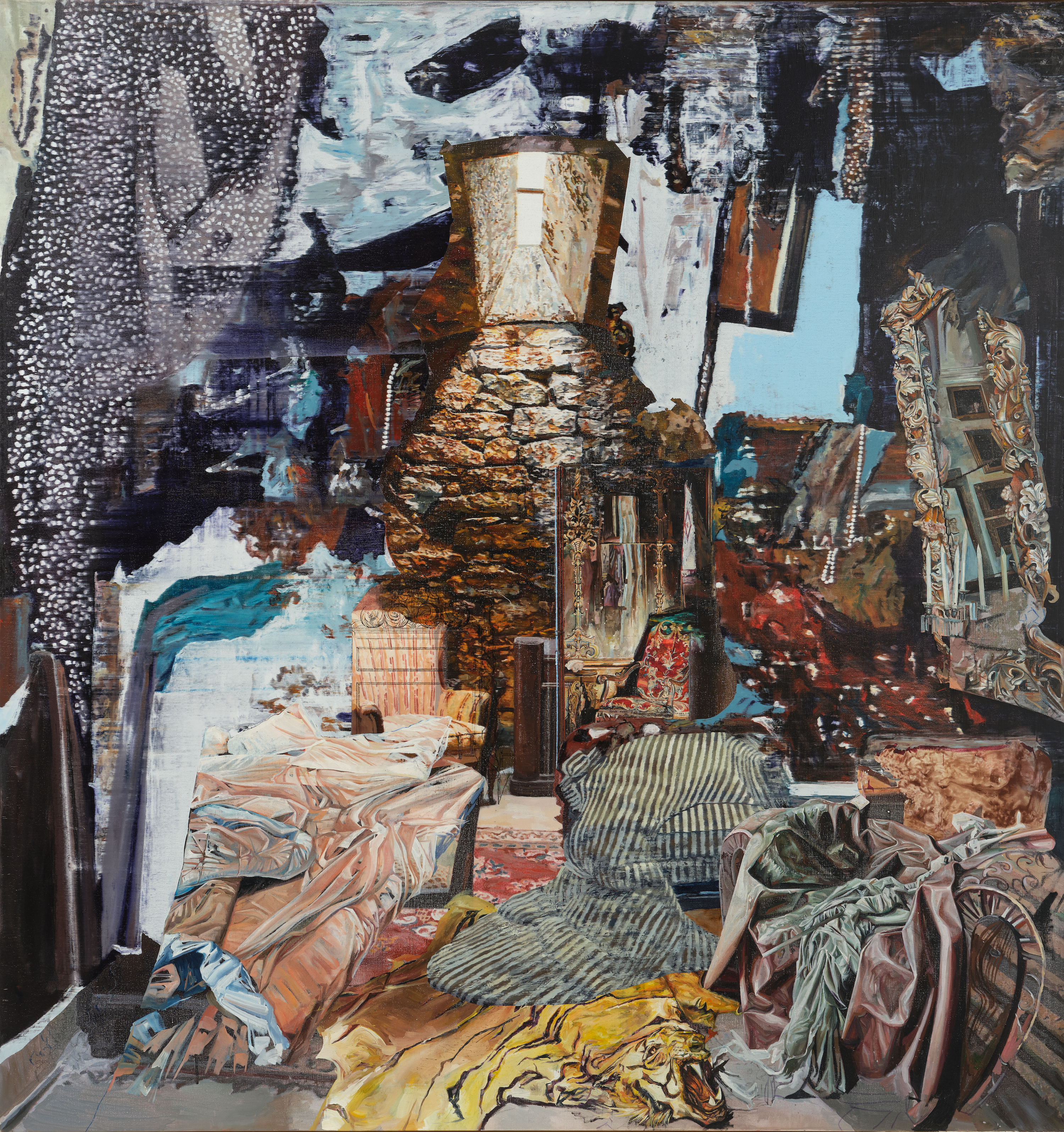
Al Capone’s Cell
2022
Oil on linen
180 x 170 cm
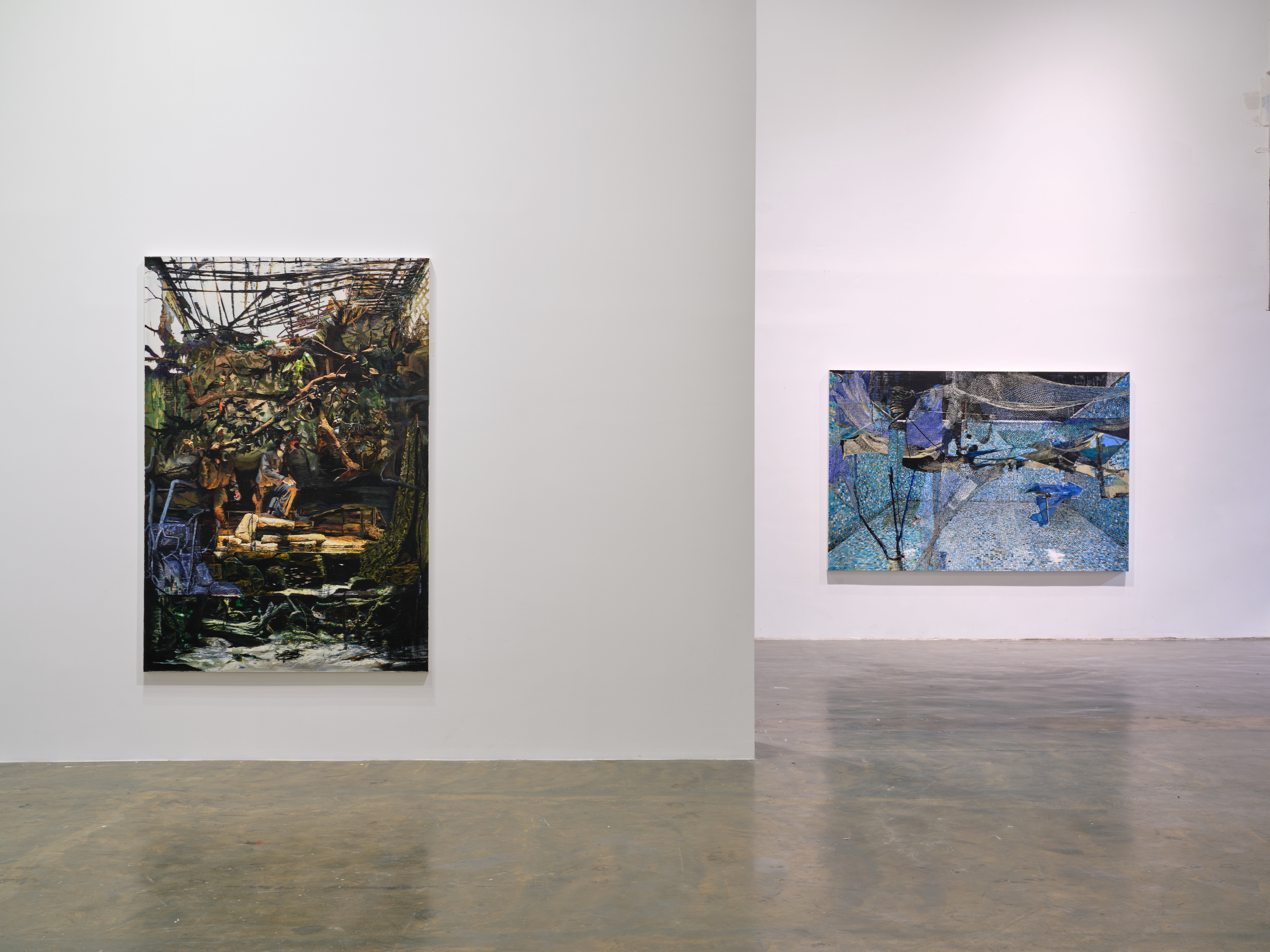
Yuan Yuan, solo exhibition, “Understory”, Kiang Malingue at Qiao Space, 2022.
Photo by Zhang Hong.
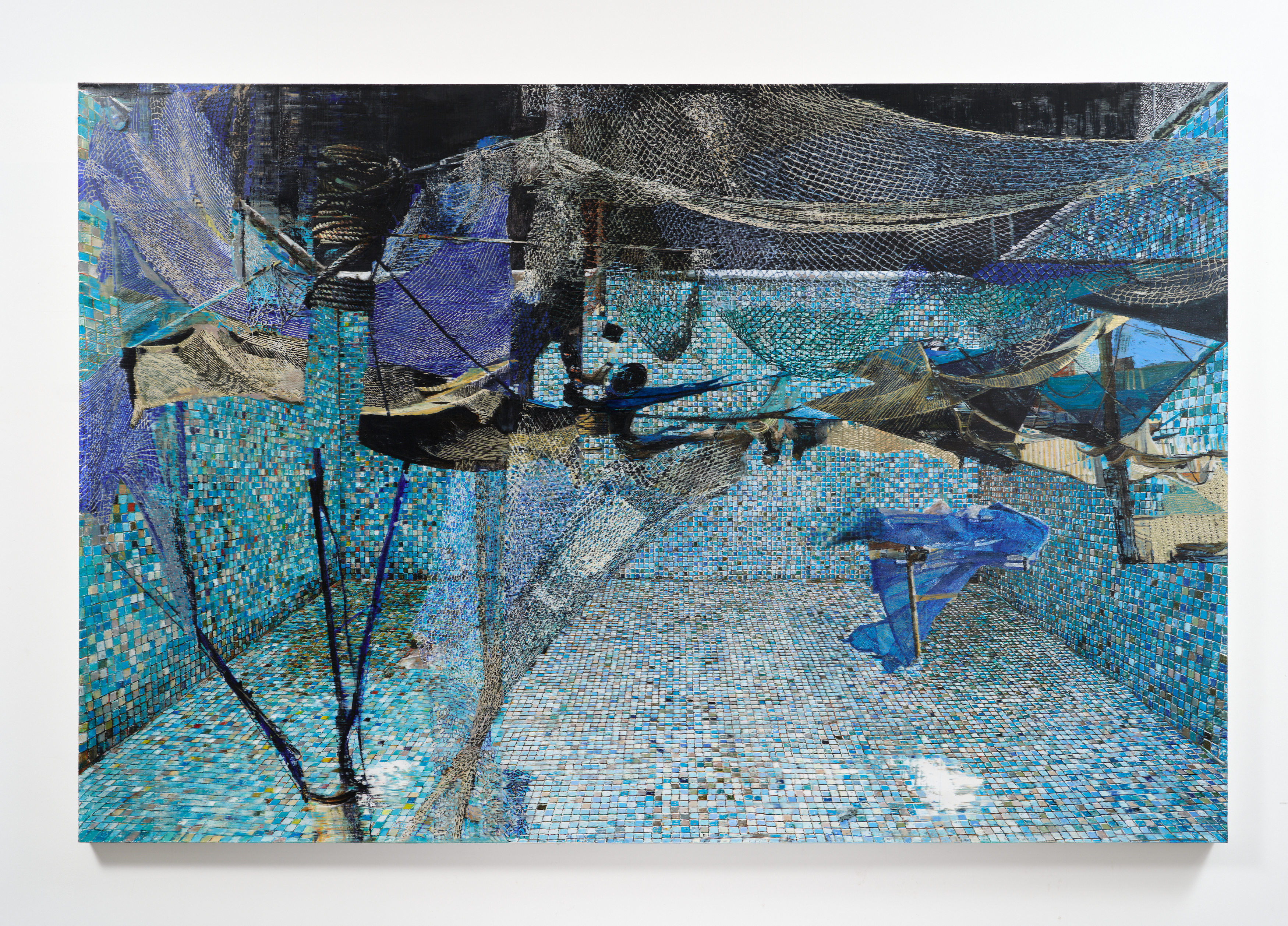
Sailing in the Pool
2017
Oil on linen
185 x 280 cm
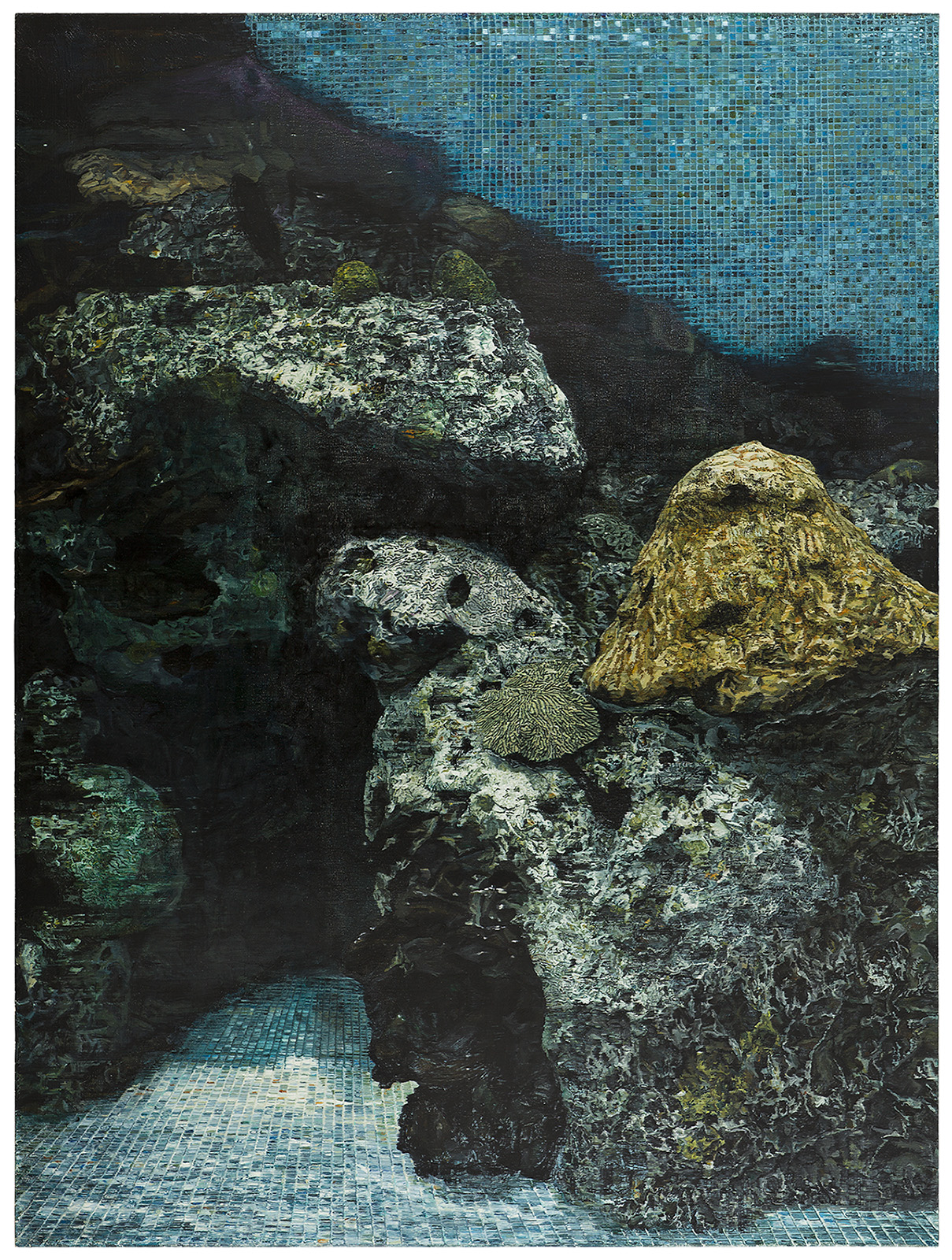
Habitat
2016
Oil on canvas
200 x 150 cm
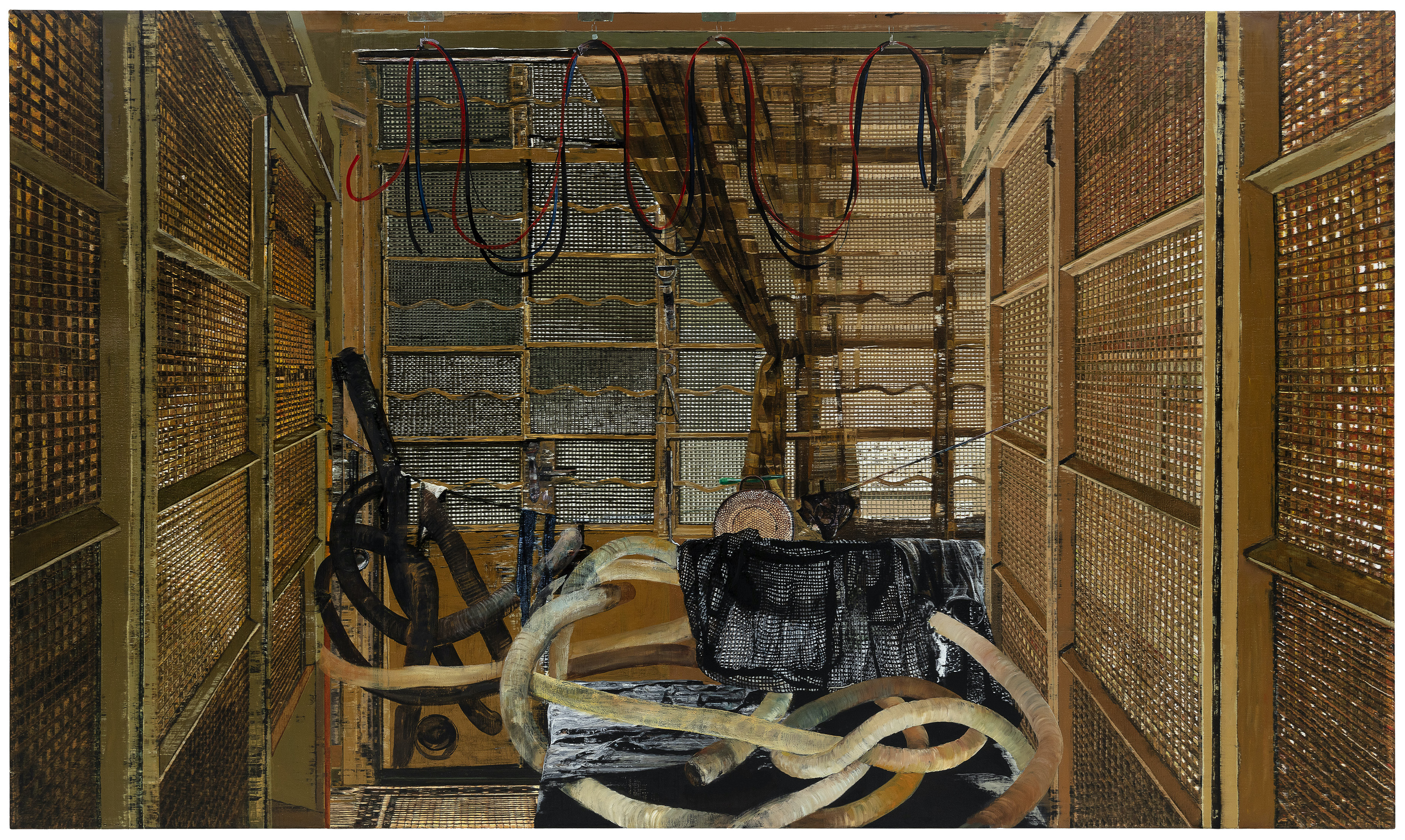
The voice behind the curtain
2020
Oil on canvas
195 × 330 cm
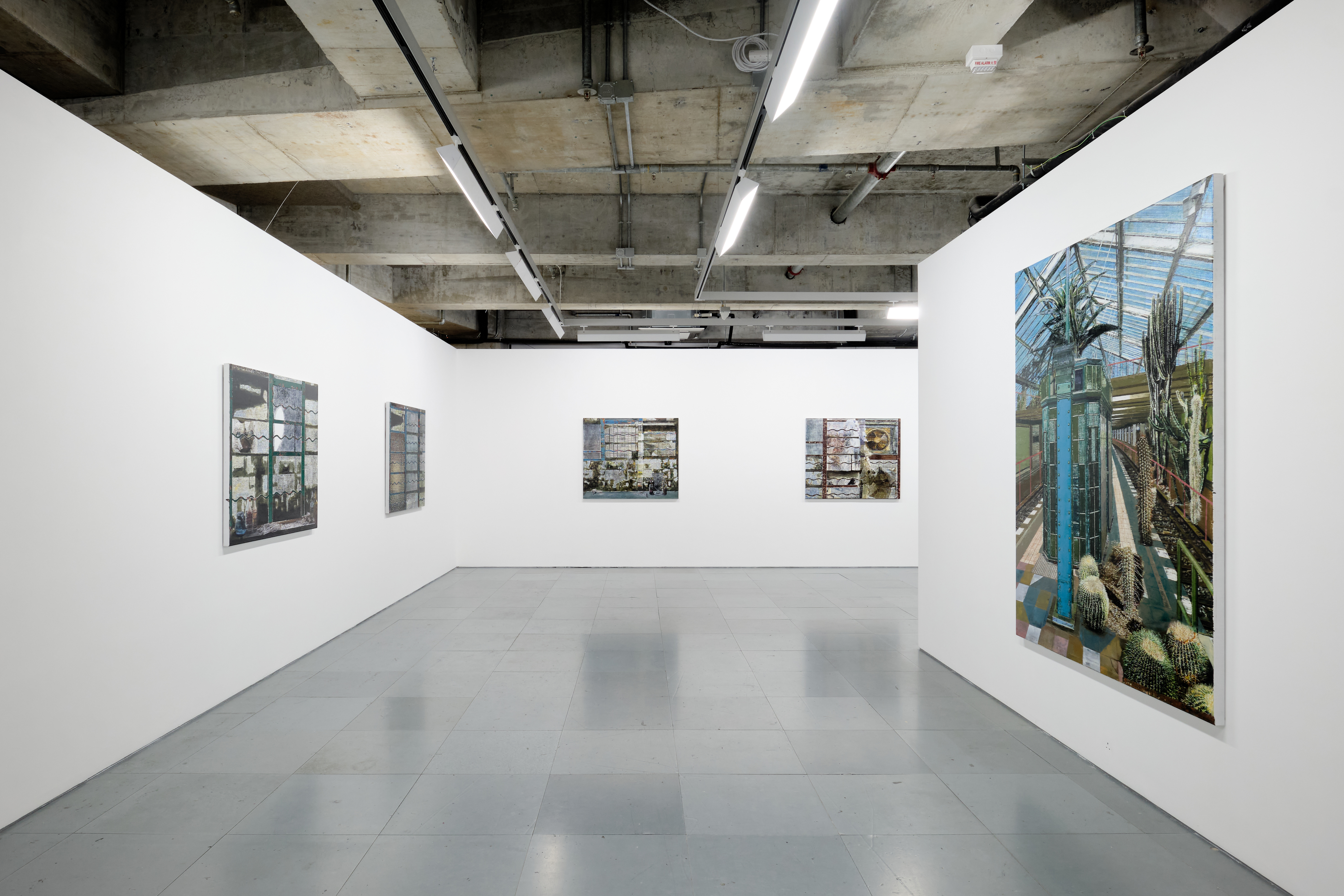
Installation view, “Irregular Pearl”, Edouard Malingue Gallery, Hong Kong, 2020
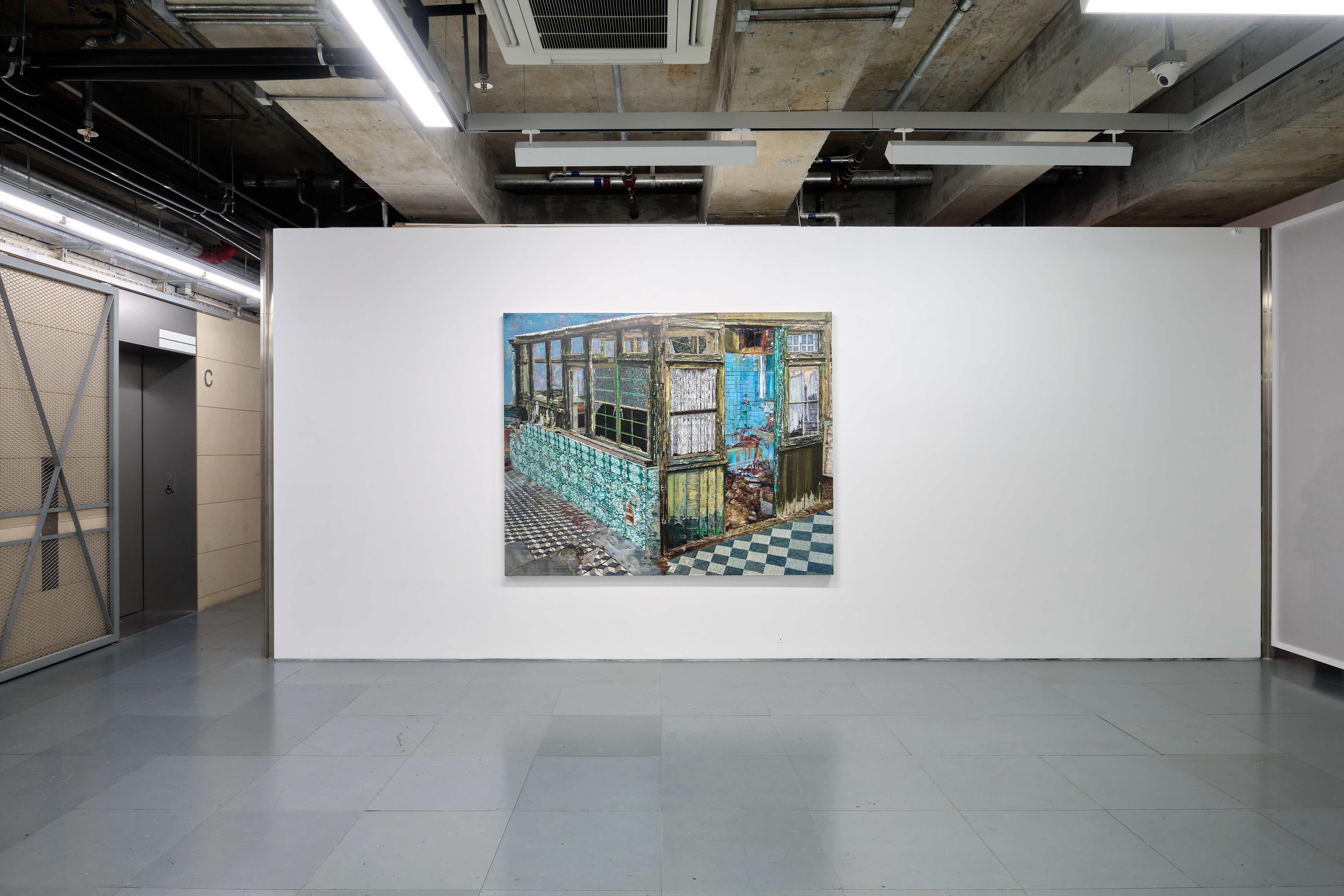
Journey into the blue
2020
Oil on Linen
180 x 225 cm
Installation view, “Irregular Pearl”, Edouard Malingue Gallery, Hong Kong, 2020
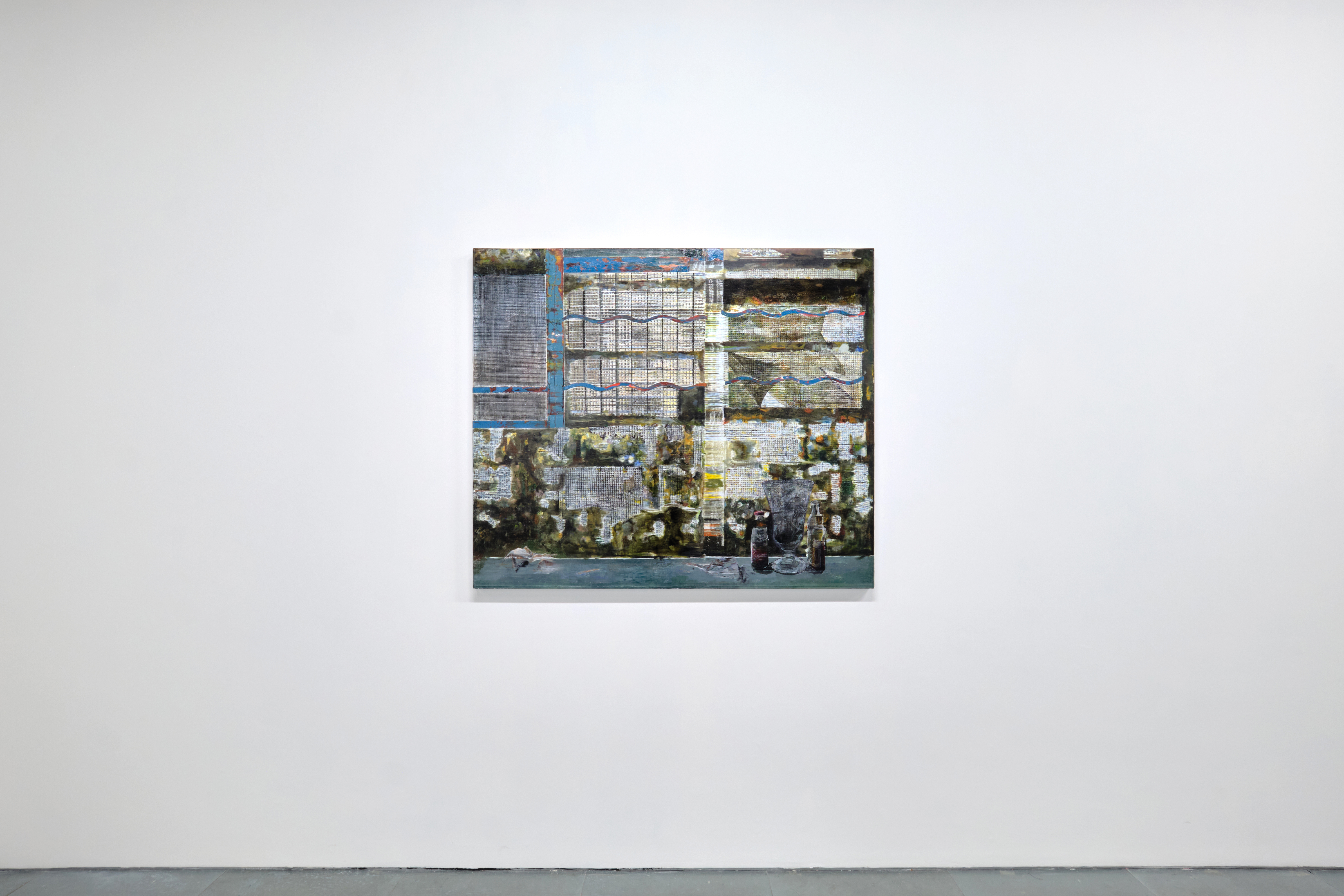
Clue and present
2020
Oil on Linen
110 x 130 cm
Installation view, “Irregular Pearl”, Edouard Malingue Gallery, Hong Kong, 2020
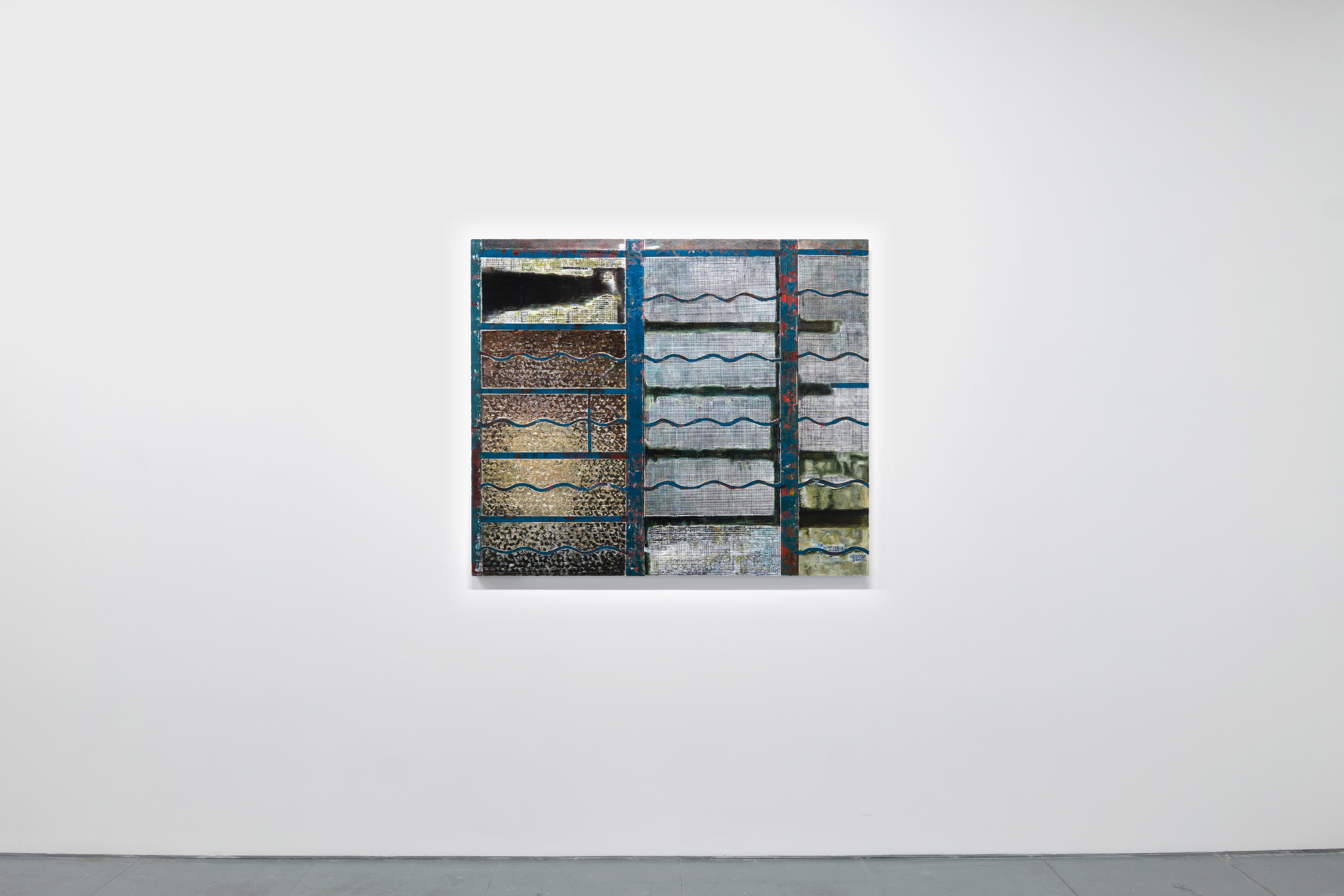
Diagonals or unexpected
2020
Oil on Linen
110 x 130 cm
Installation view, “Irregular Pearl”, Edouard Malingue Gallery, Hong Kong, 2020
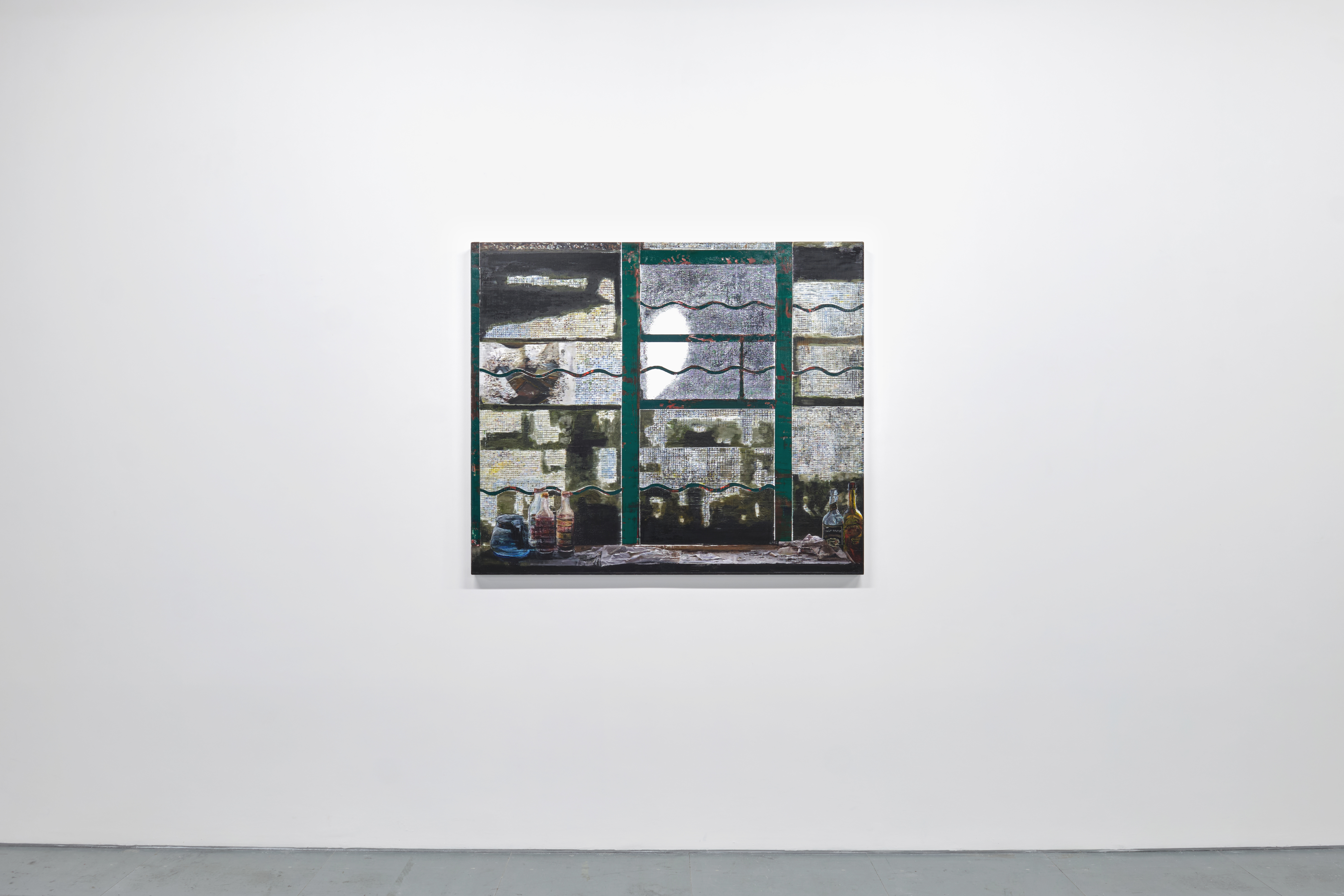
The inner light
2020
Oil on Linen
110 x 130 cm
Installation view, “Irregular Pearl”, Edouard Malingue Gallery, Hong Kong, 2020
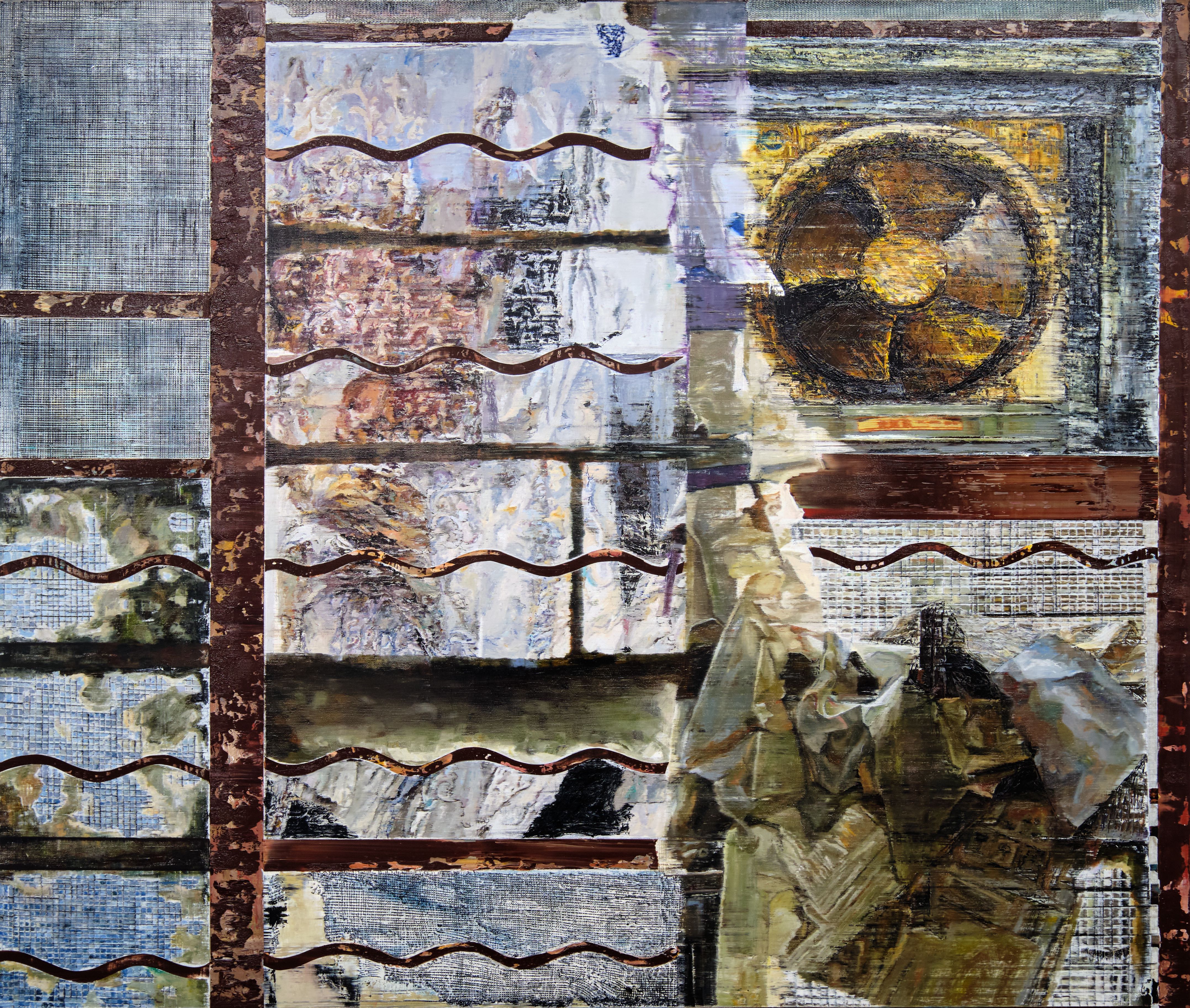
Looking for new tenants
2020
Signed on verso
Oil on linen
110 x 130 cm
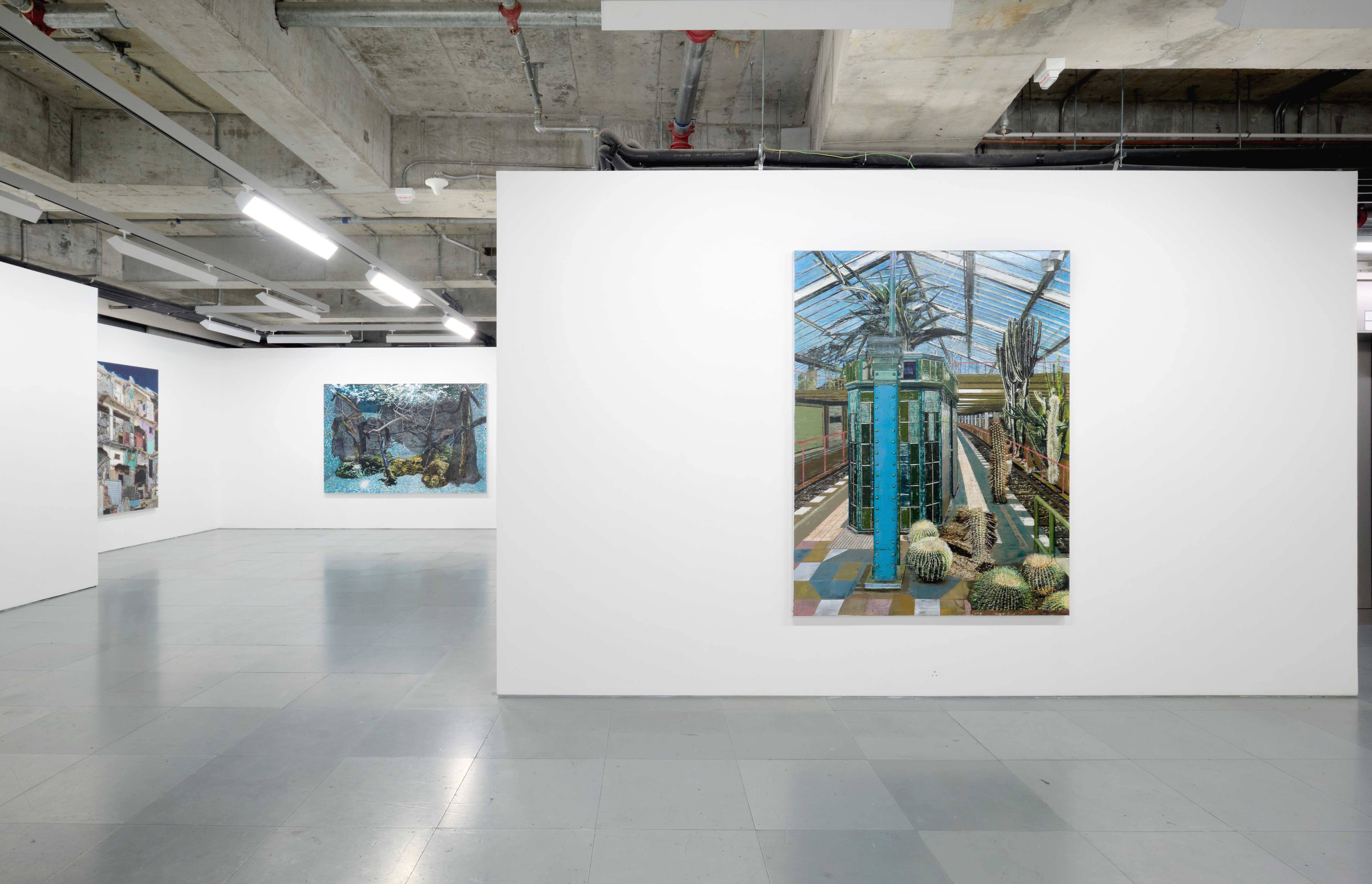
Installation view, “Irregular Pearl”, Edouard Malingue Gallery, Hong Kong, 2020
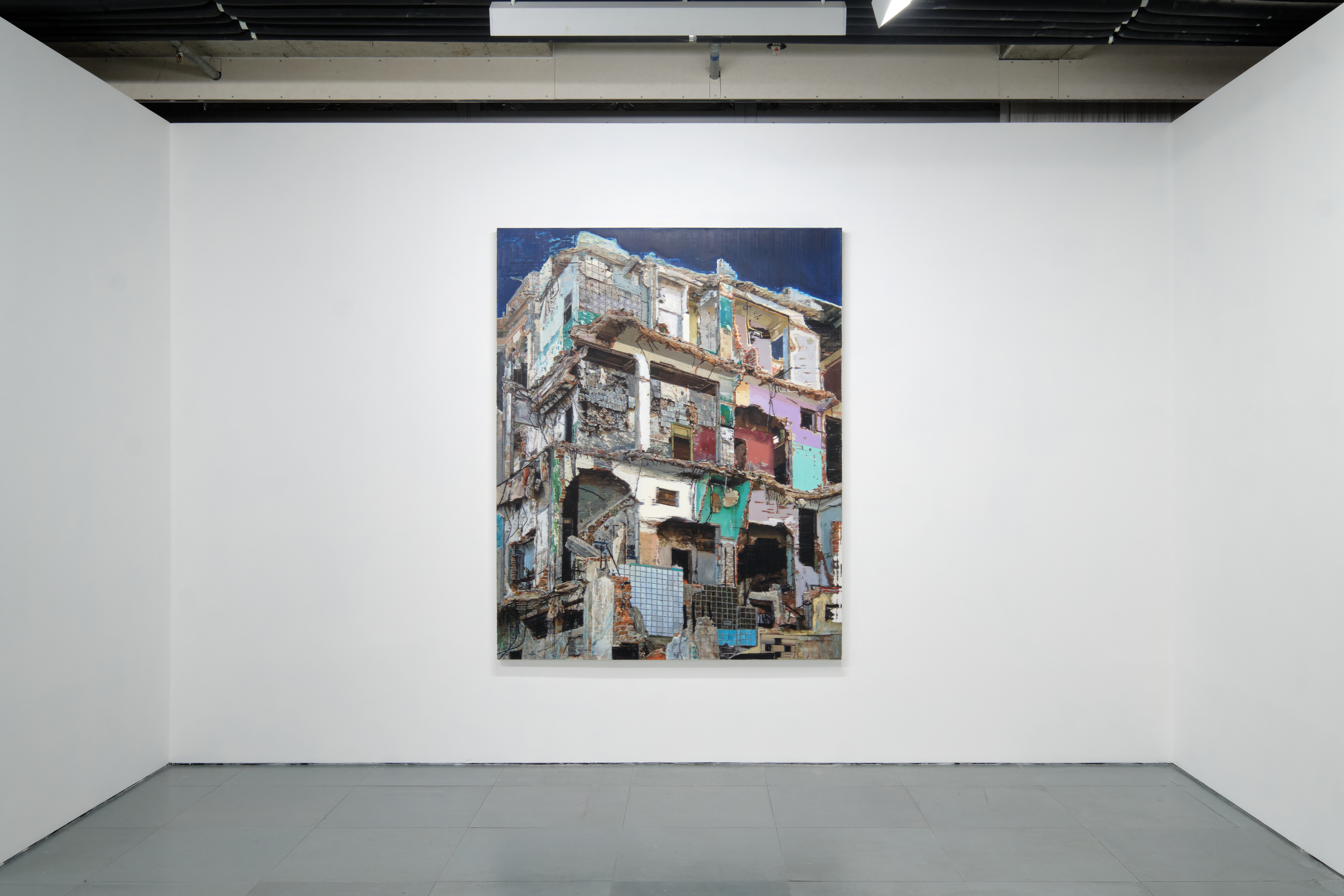
In exposed walls
2019
Oil on Linen
200 x 160 cm
Installation view, “Irregular Pearl”, Edouard Malingue Gallery, Hong Kong, 2020
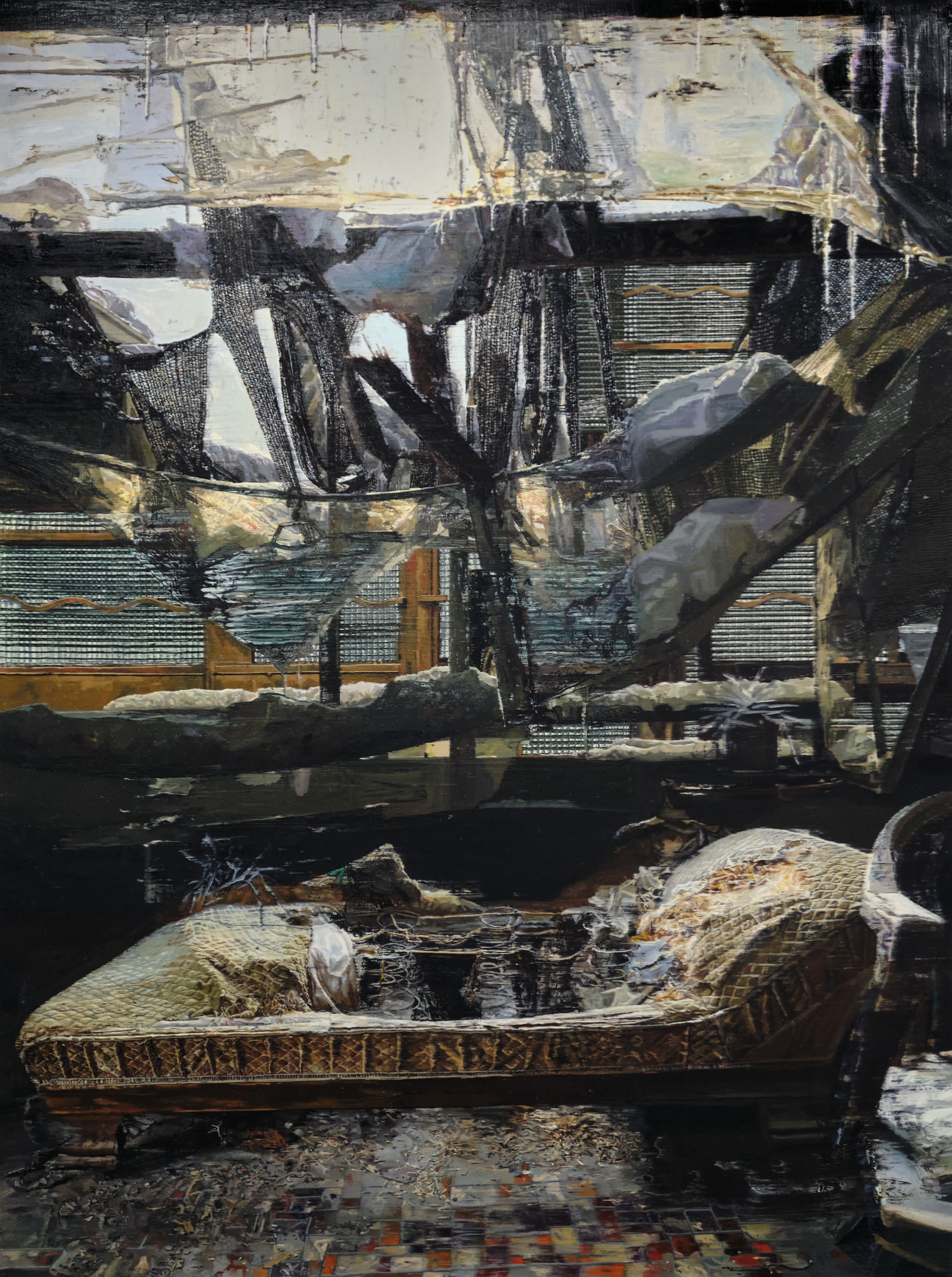
Gray area in the morning
2019
Oil on linen
200 x 150 cm
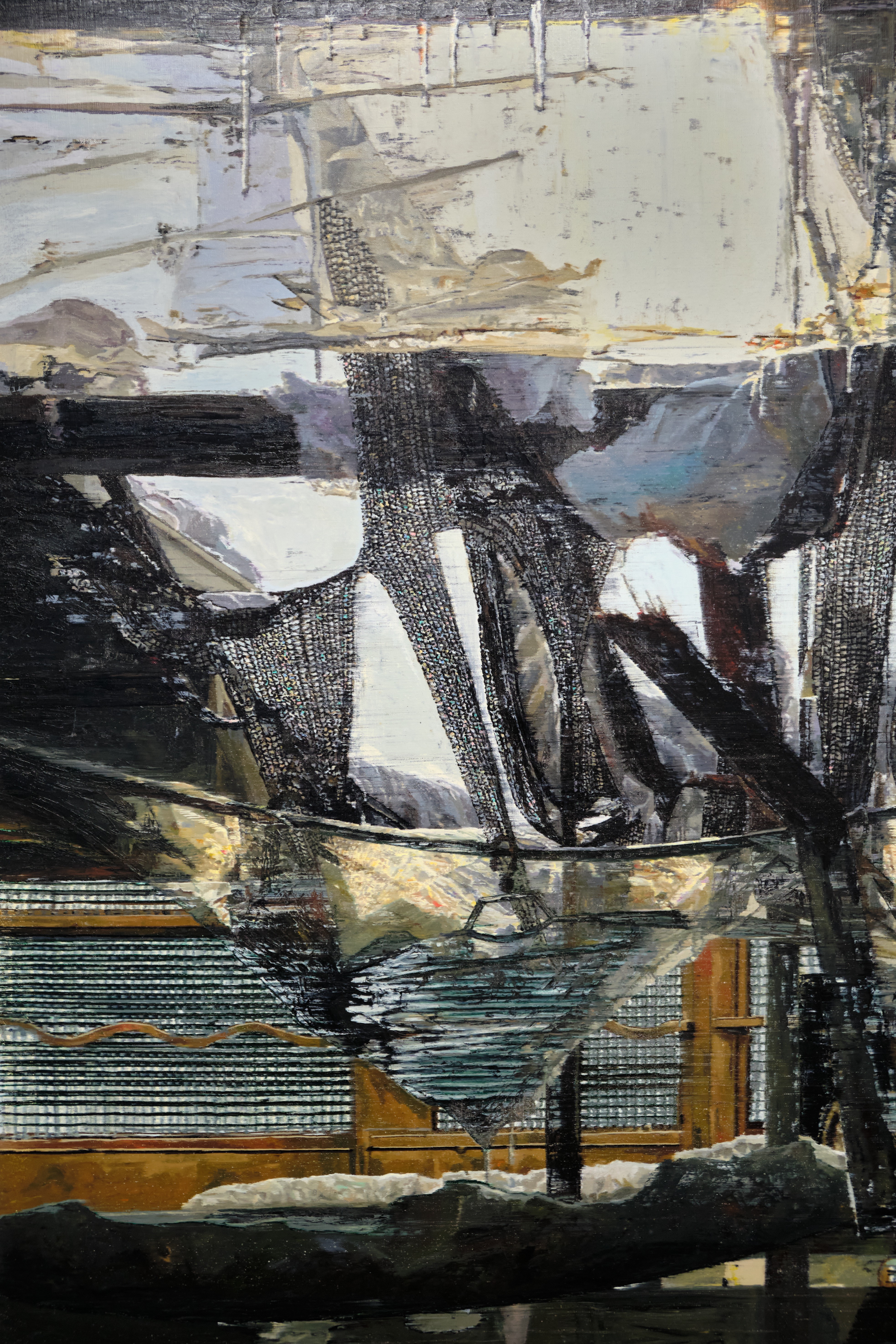
2019
Oil on linen
200 x 150 cm
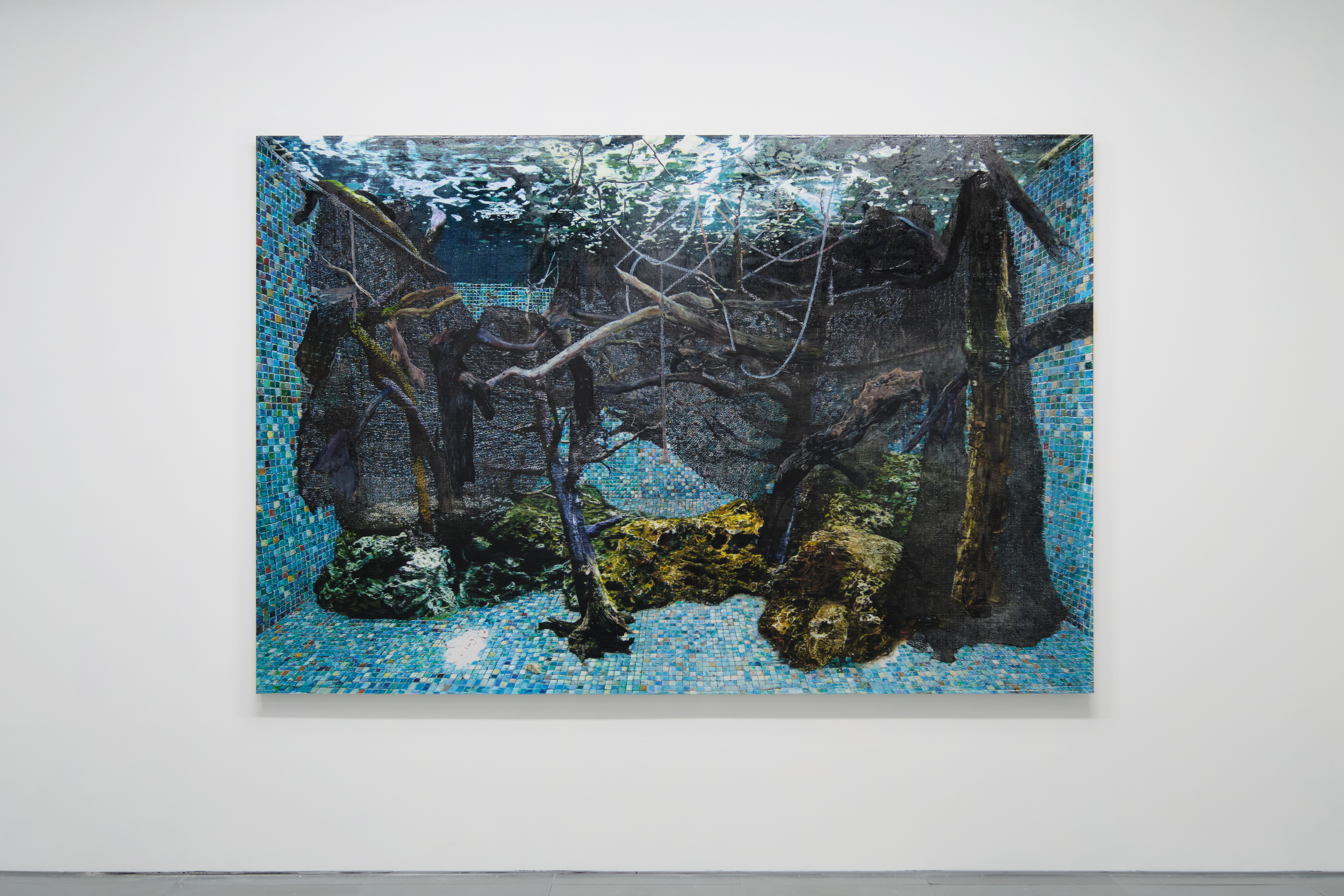
Gorilla exhibit
2020
Oil on linen
180 x 270 cm
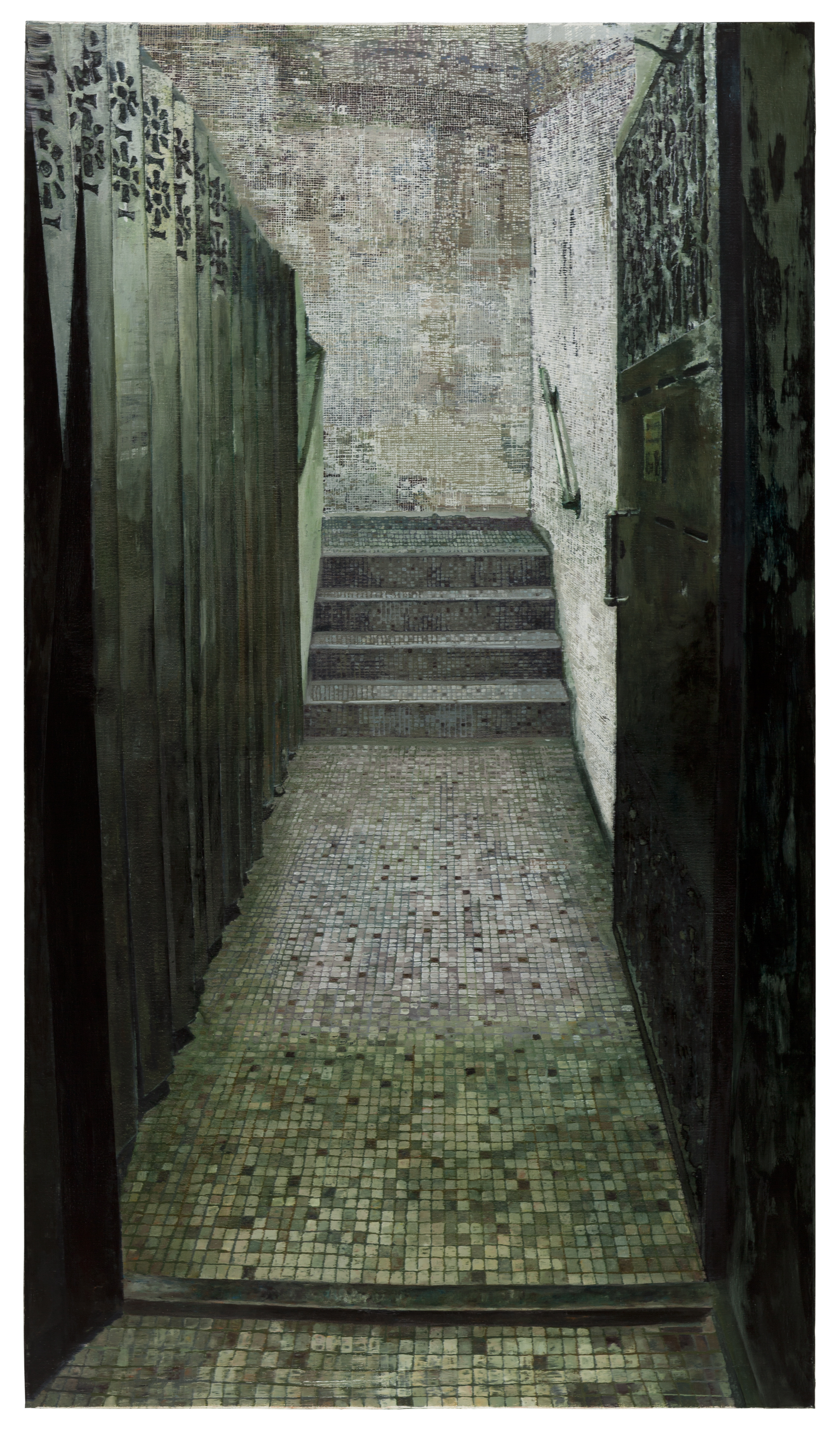
Entrance
2012
Oil on linen
263 x 149 cm
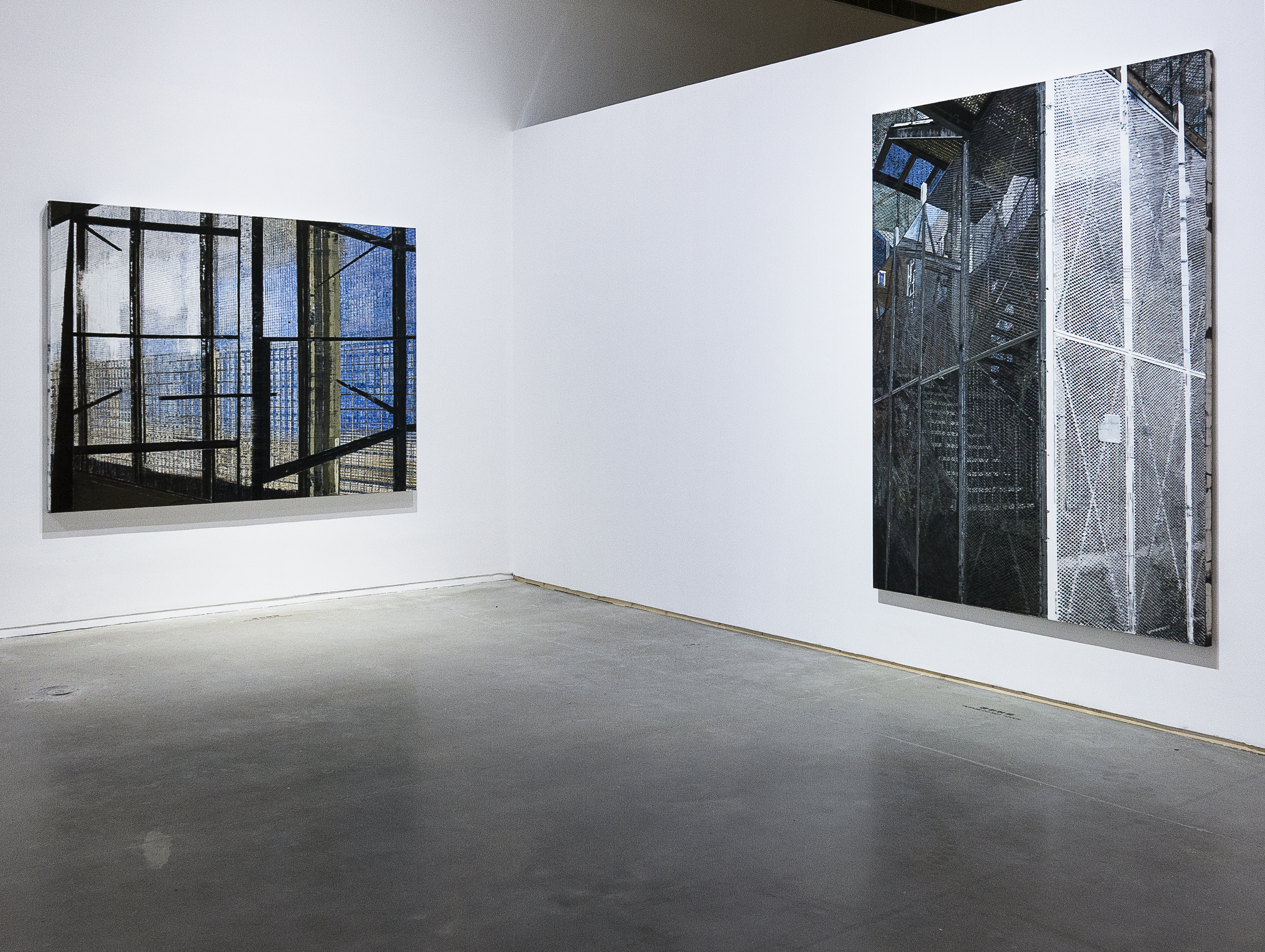
Photographed by Yuan Wei
Image courtesy of Edouard Malingue Gallery
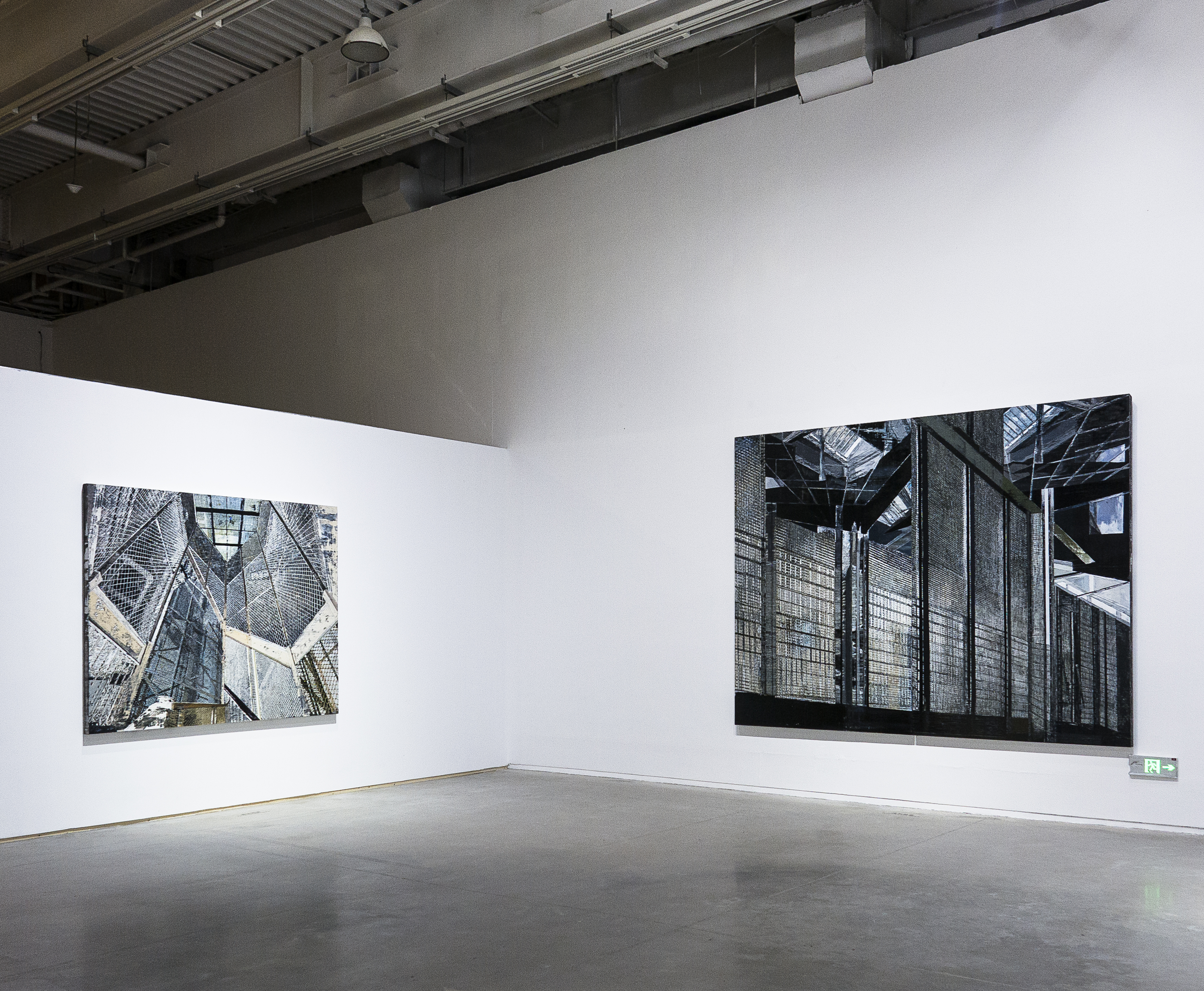
Photographed by Yuan Wei
Image courtesy of Edouard Malingue Gallery
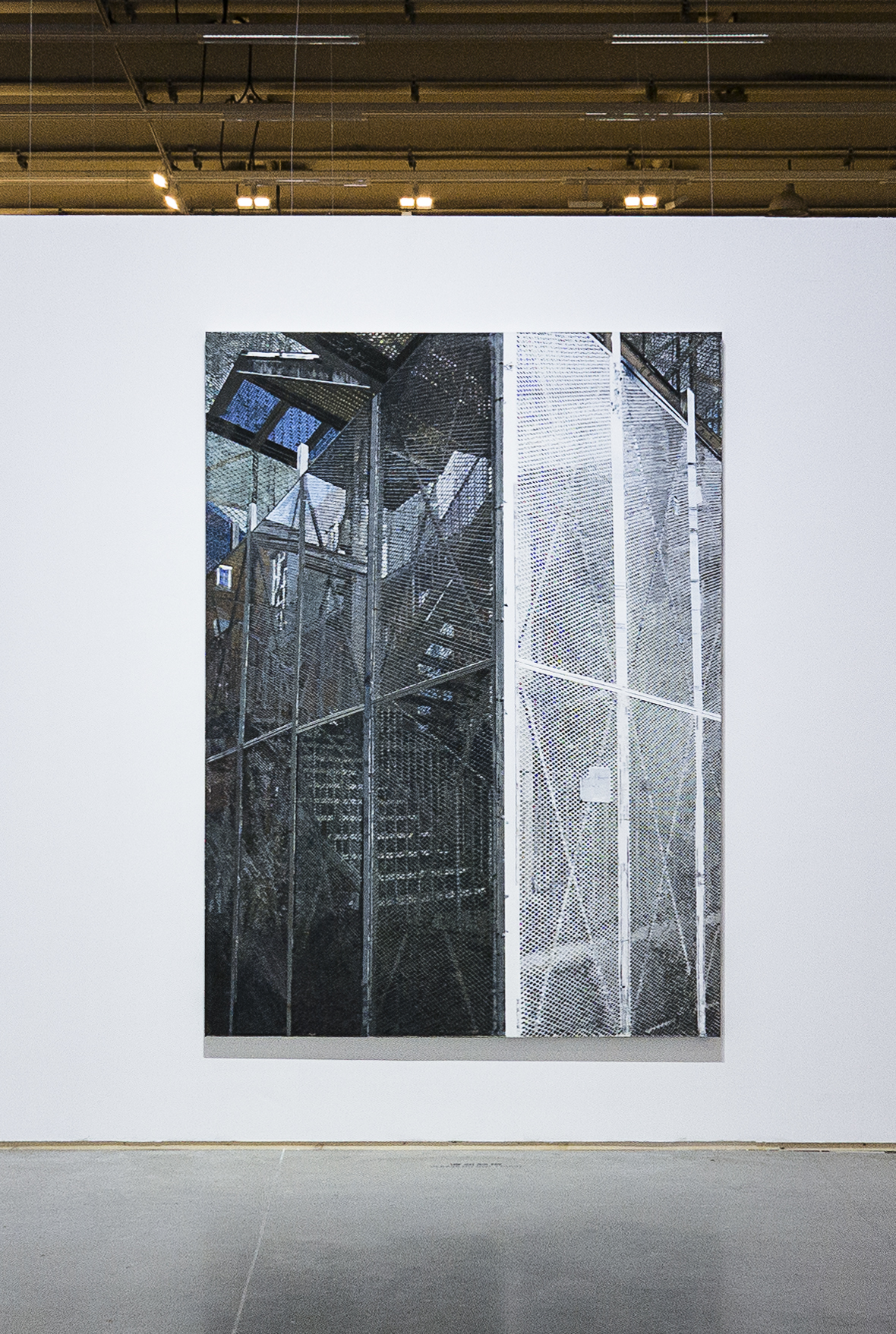
Photographed by Yuan Wei
Image courtesy of Edouard Malingue Gallery
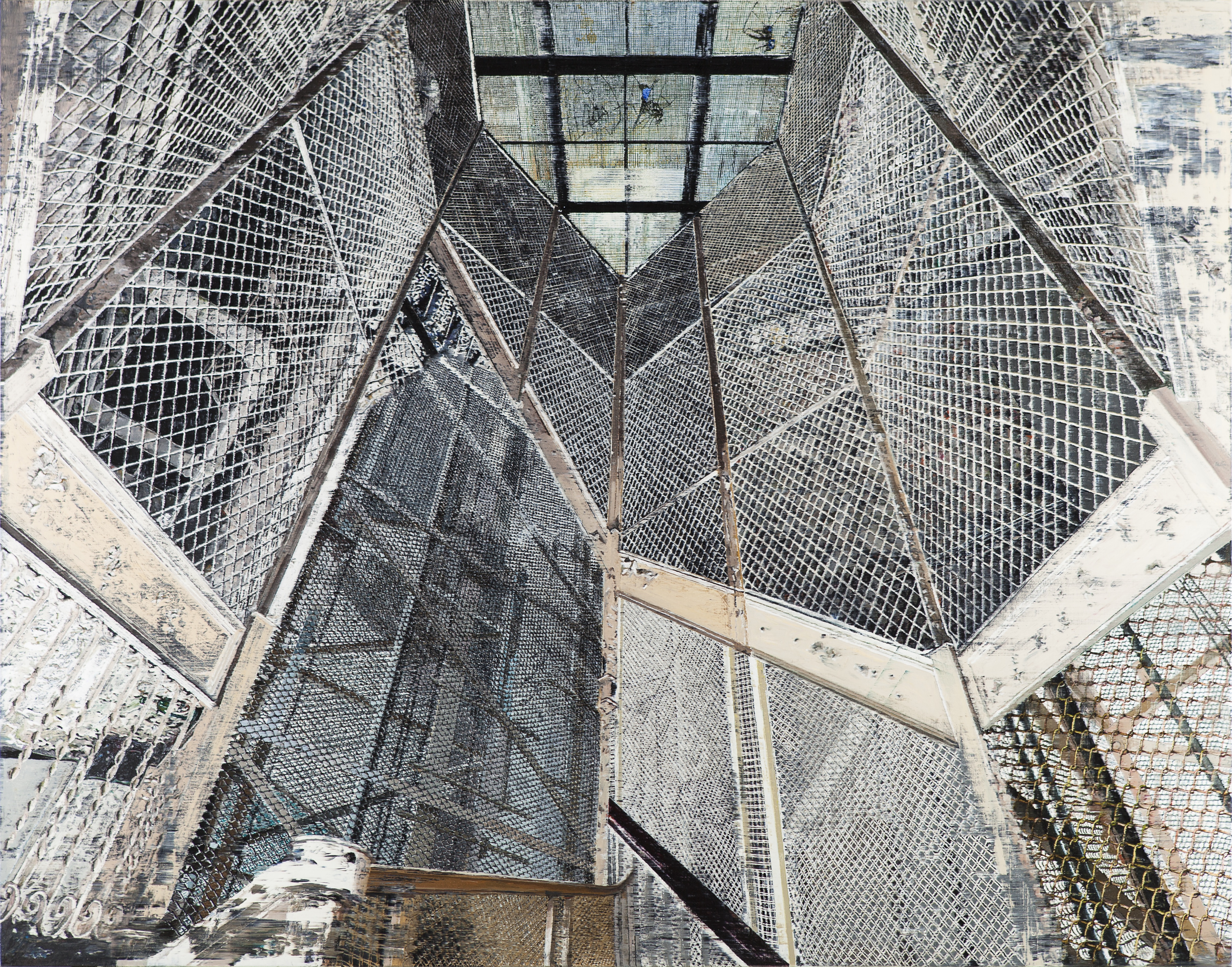
Free Fall
2018
Oil on linen
200 x 255 cm
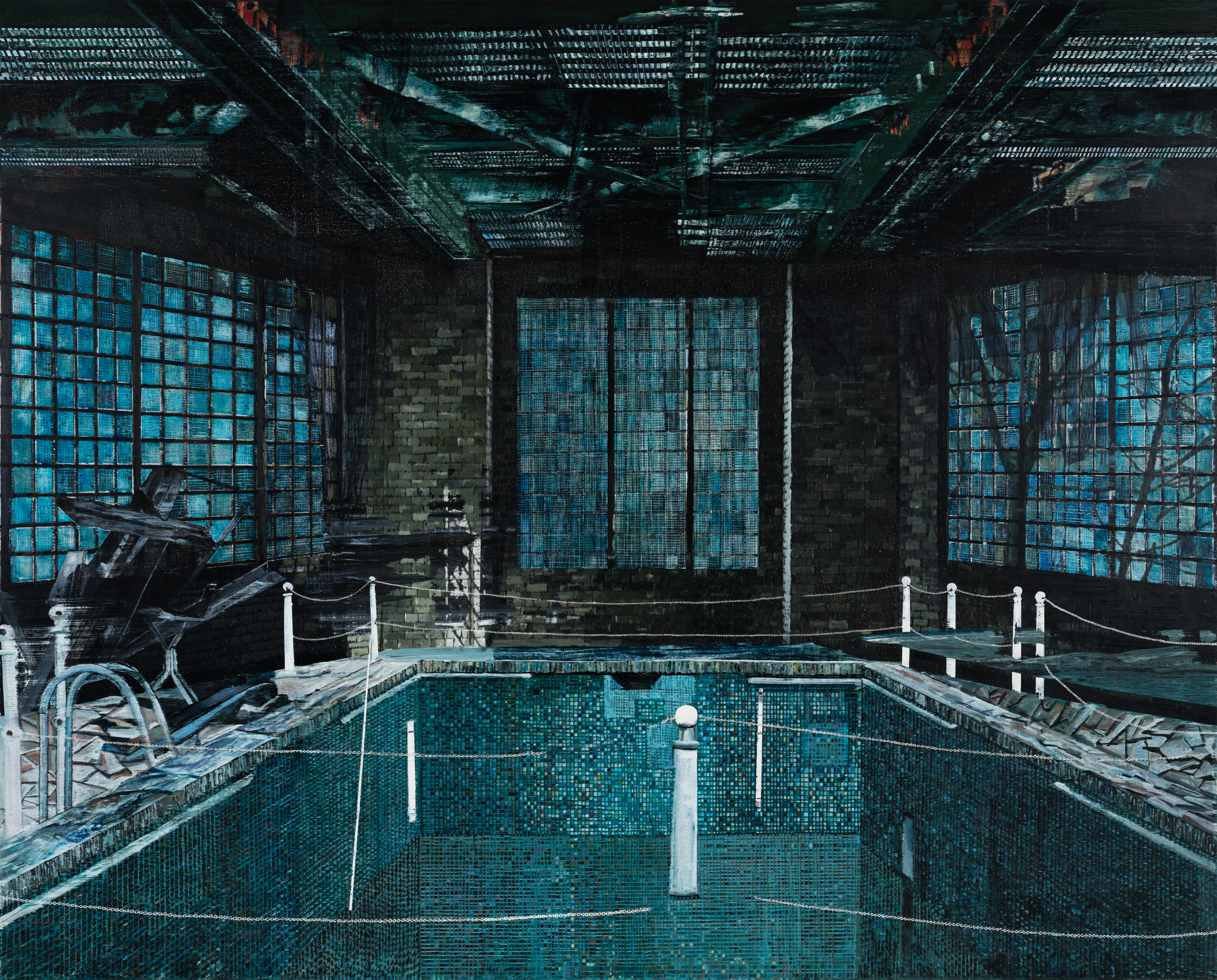
Your past life
2016-2018
Oil on linen
190 x 236 cm
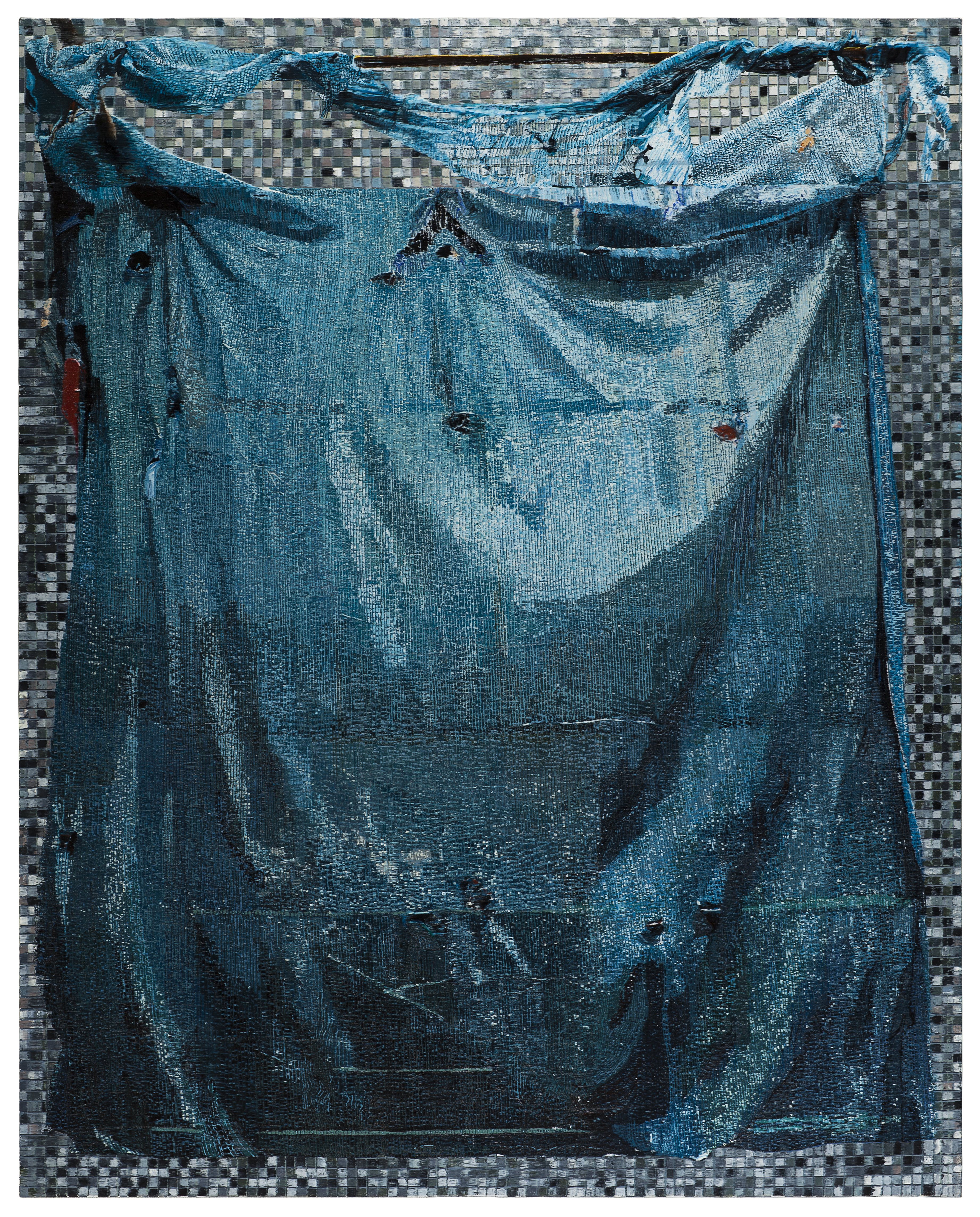
Practising in fabric patterns
2018
Oil on linen
200 x 160 cm
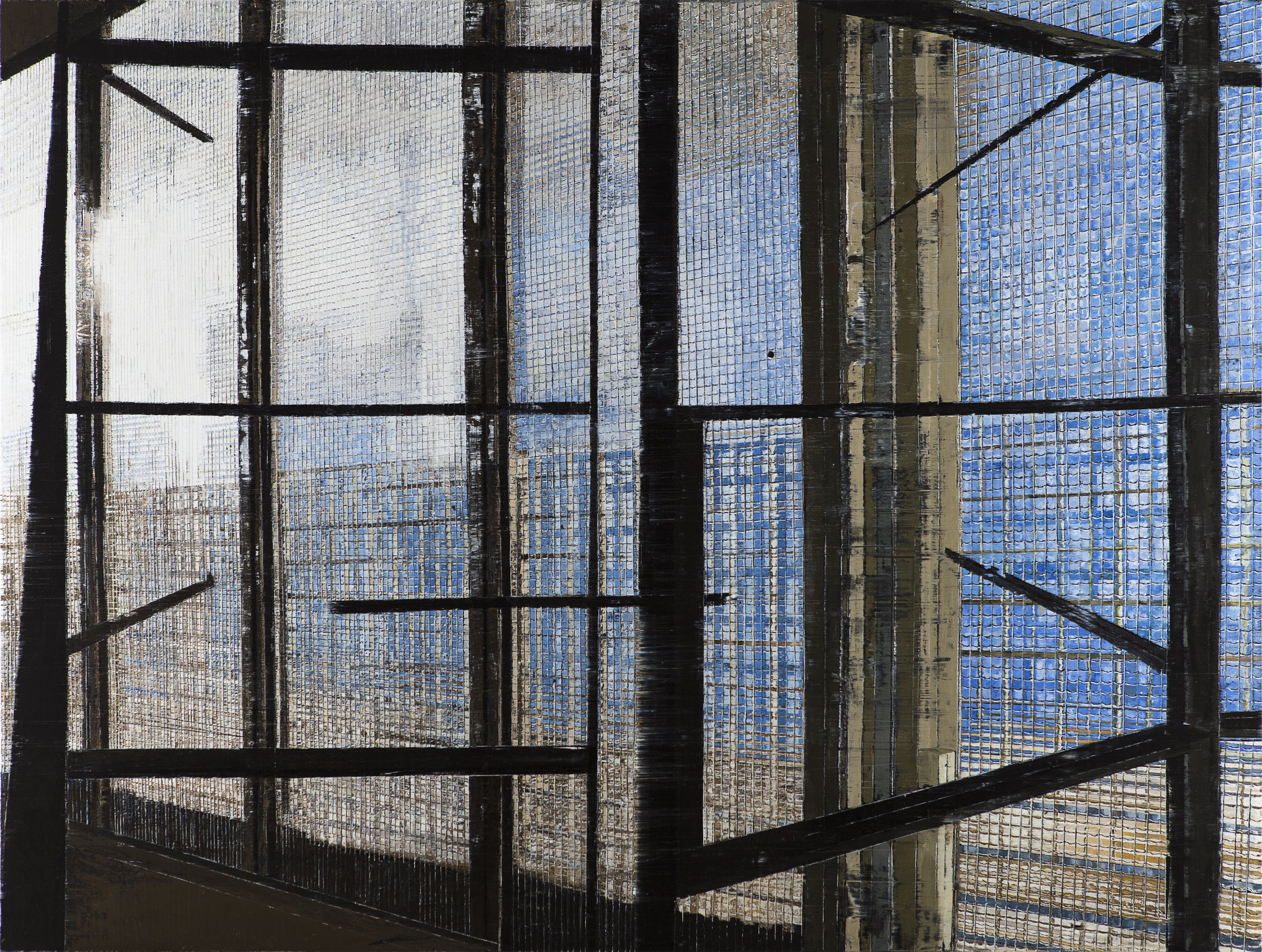
Darkness that goes away
2018
Oil on linen
200 x 265 cm
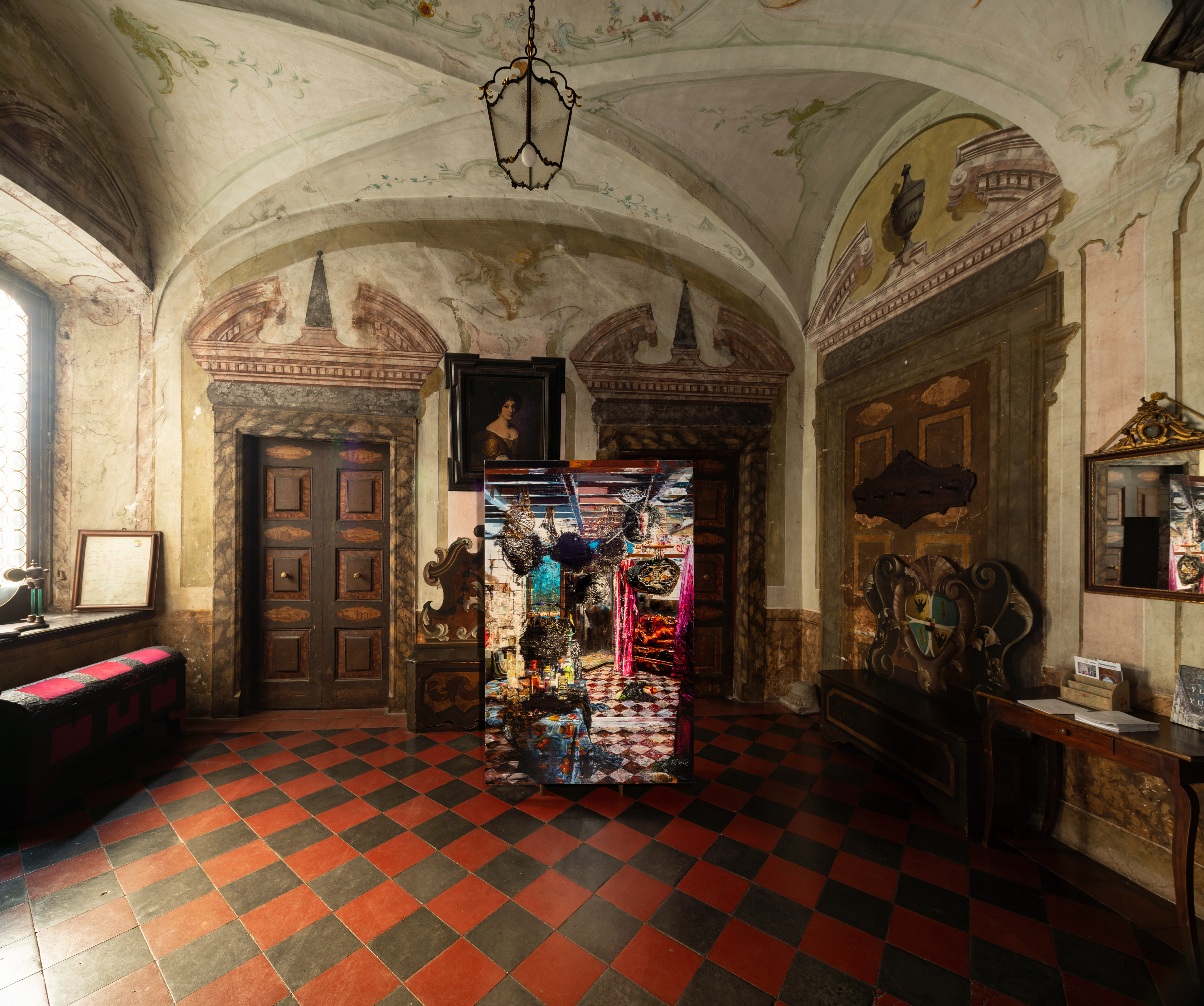
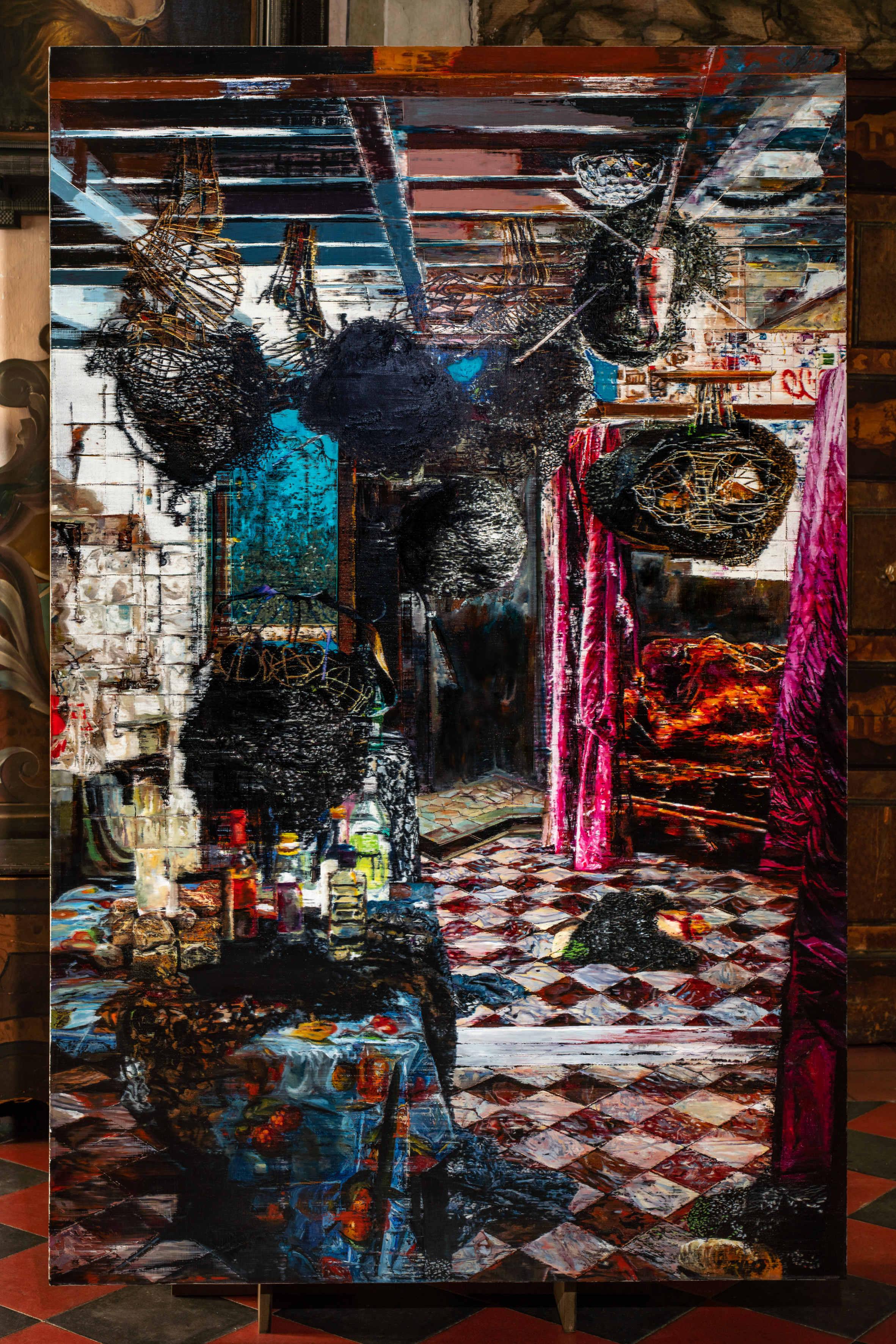
Dried Food
2018
Oil on canvas
189 x 122 cm
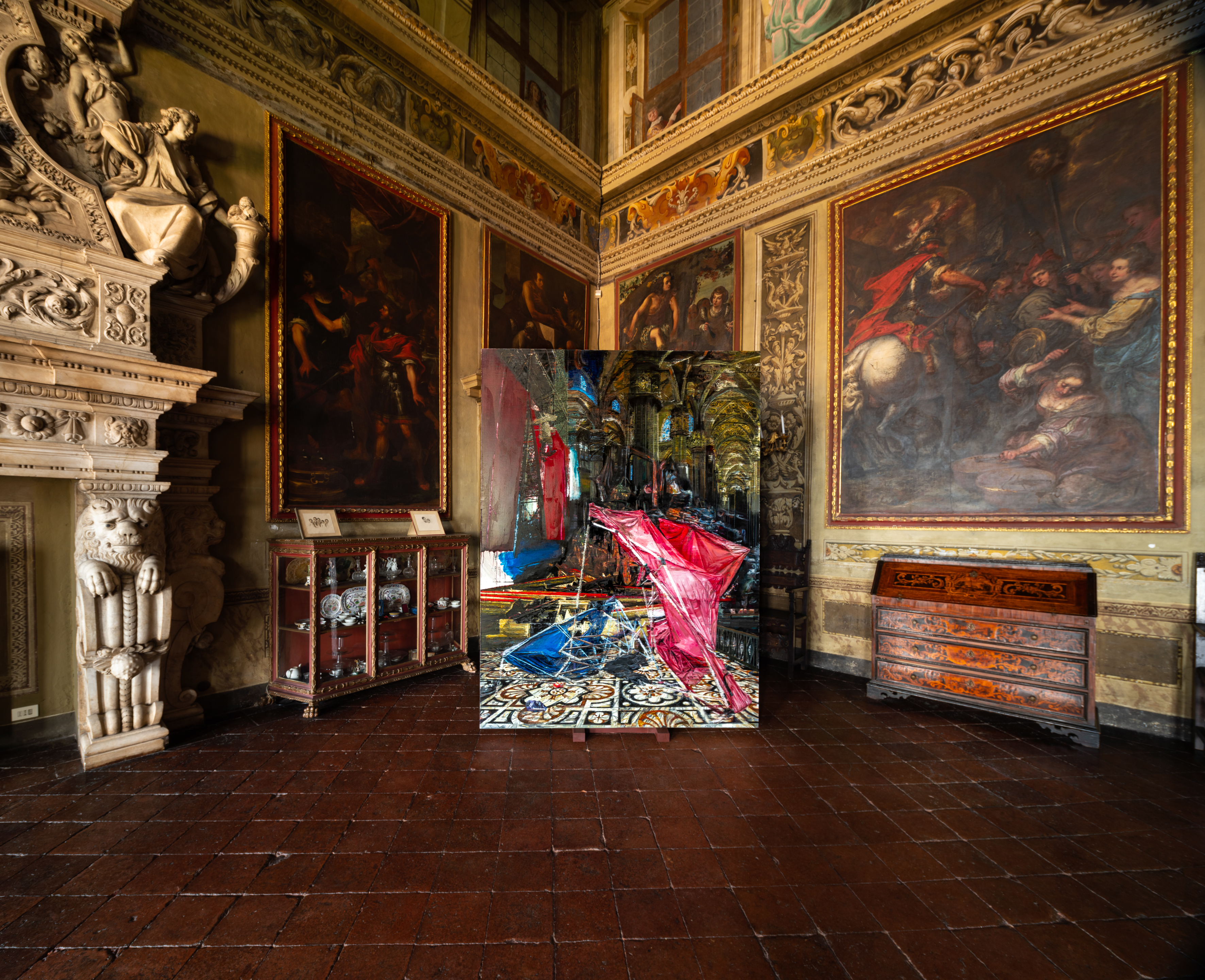
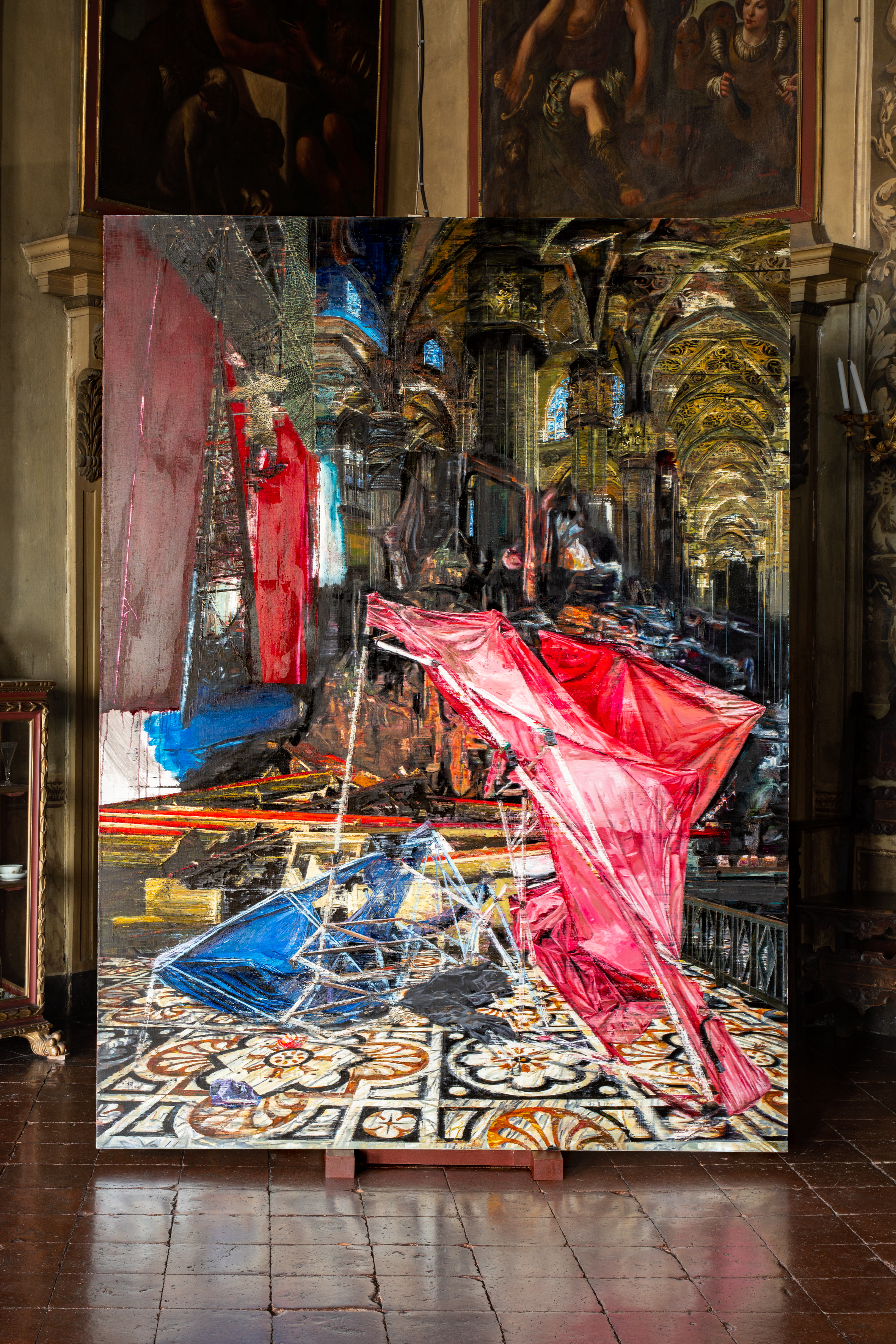
Dancing Hall
2018
Oil on canvas
269 x 199 cm
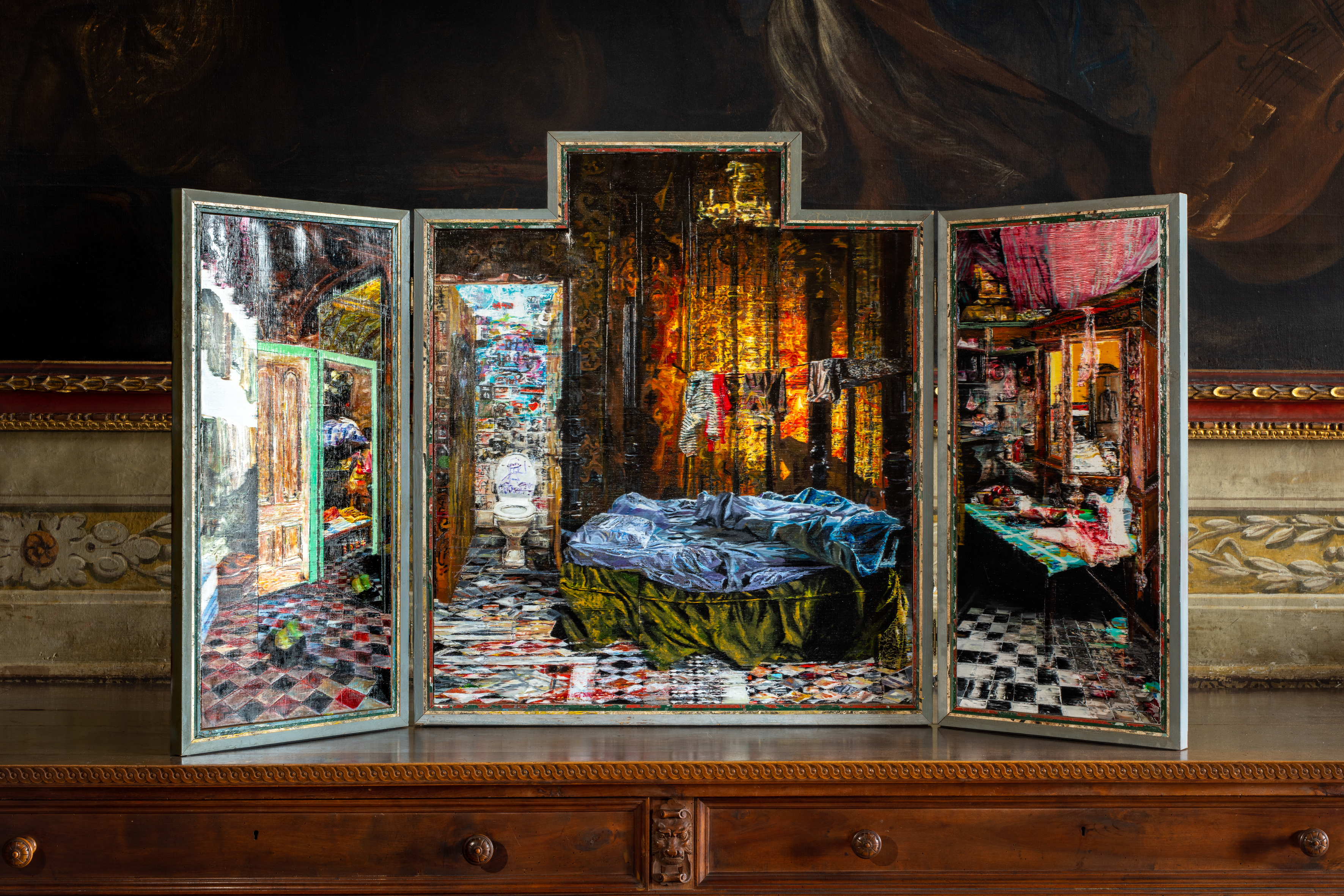
Green Day
2018
Oil on canvas
96 x 110 cm
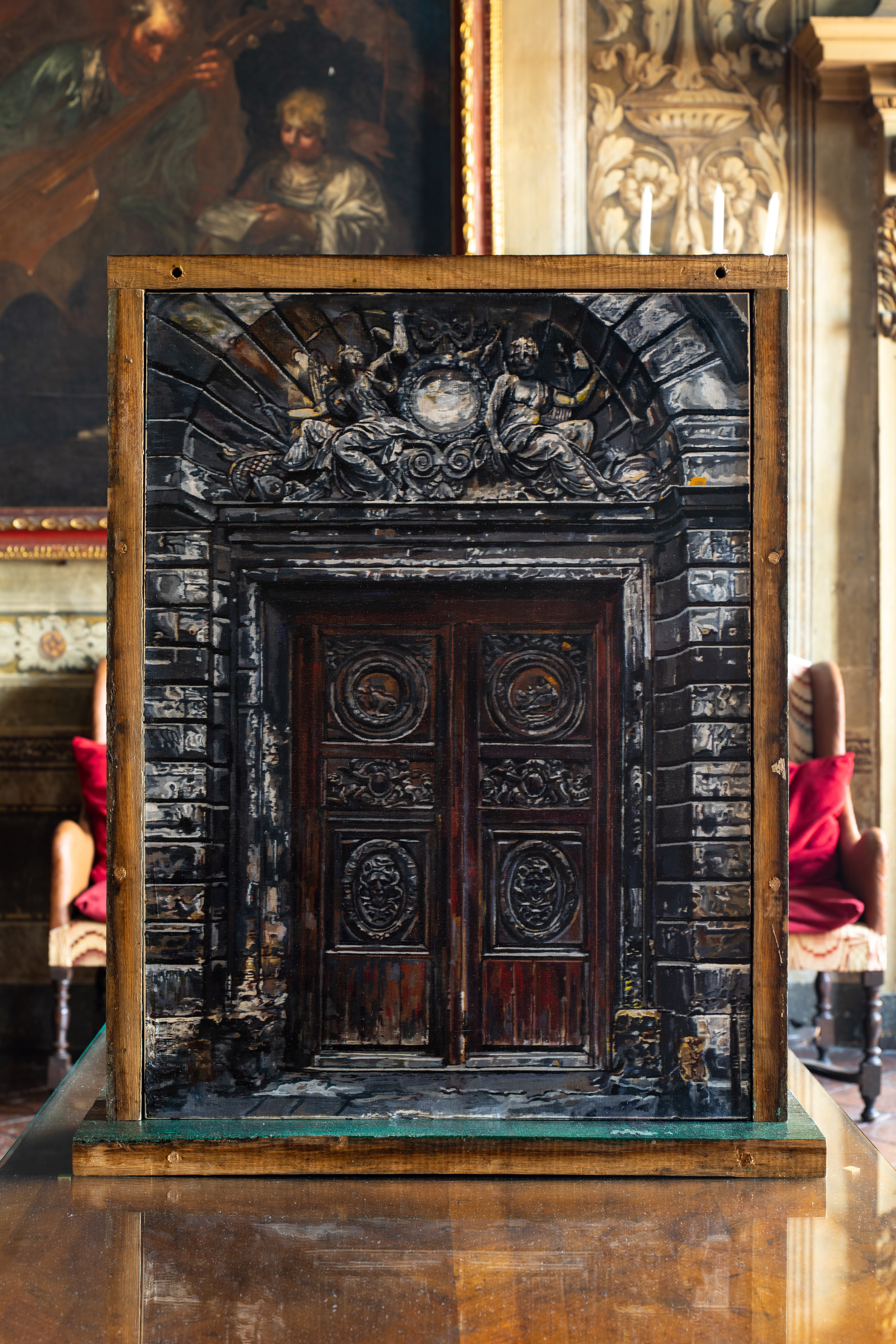
Paris VIII
2018
Oil on canvas
76 X 57 cm
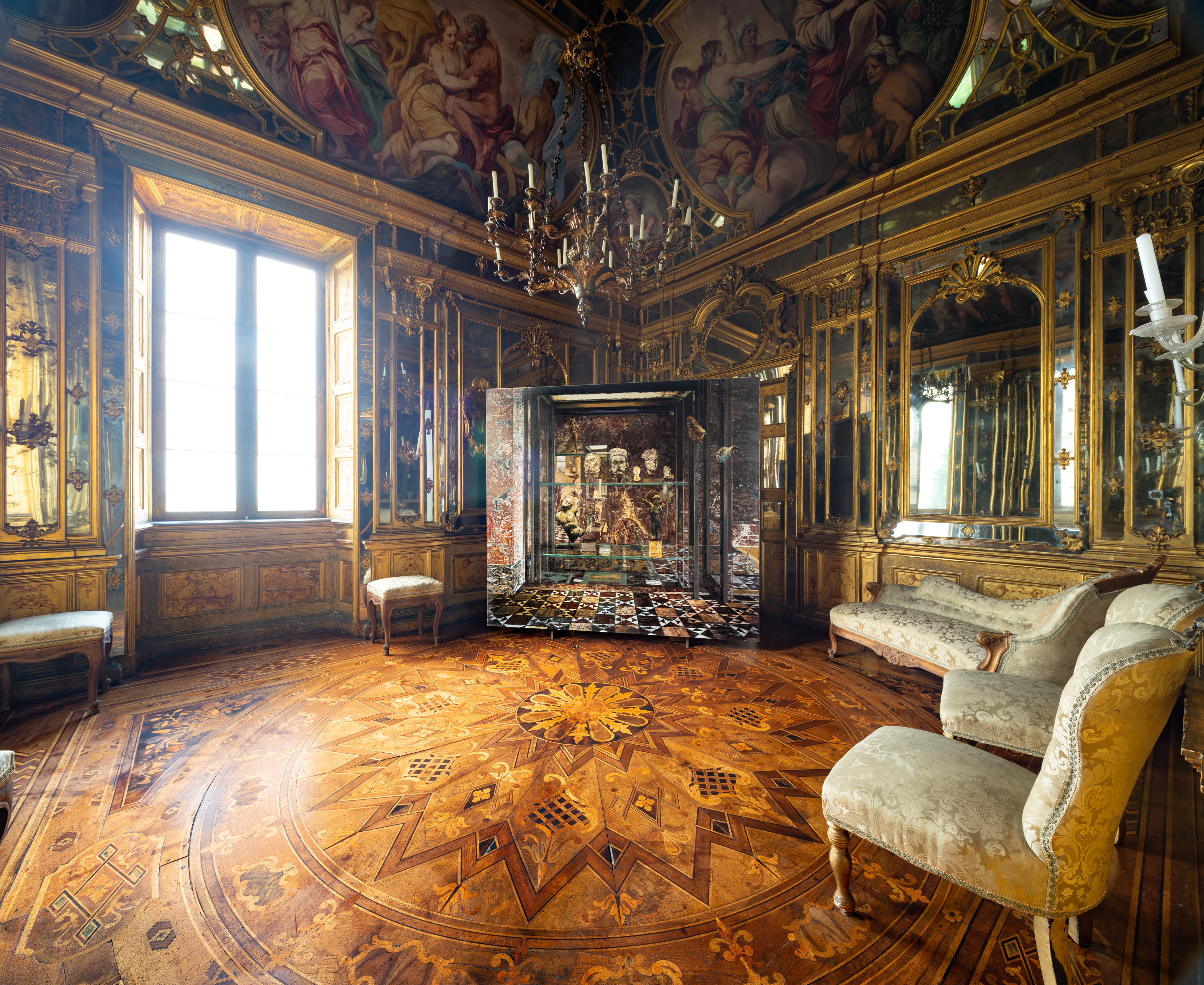
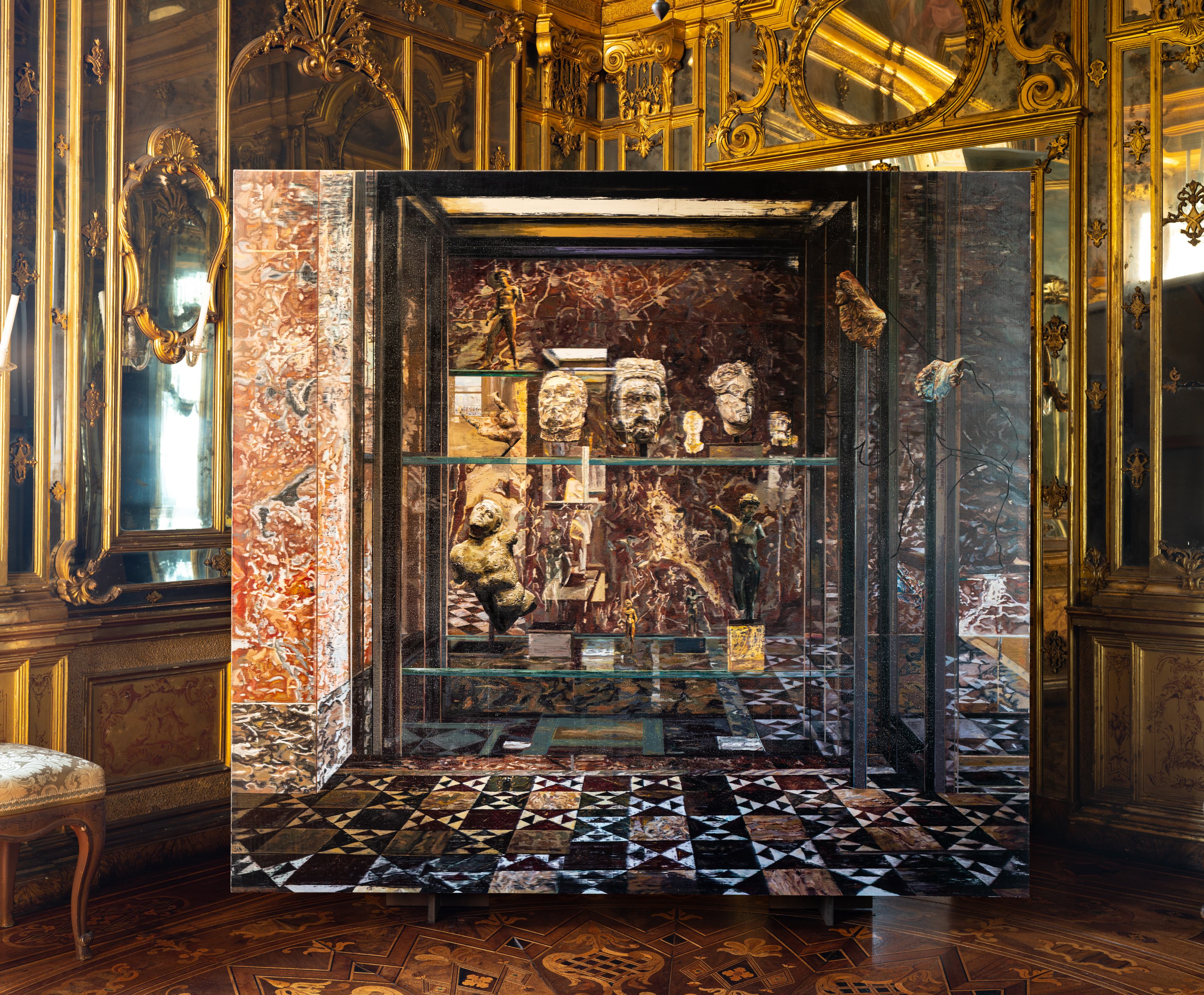
Hide Our Bodies
2018
Oil on canvas
220 x 200 cm
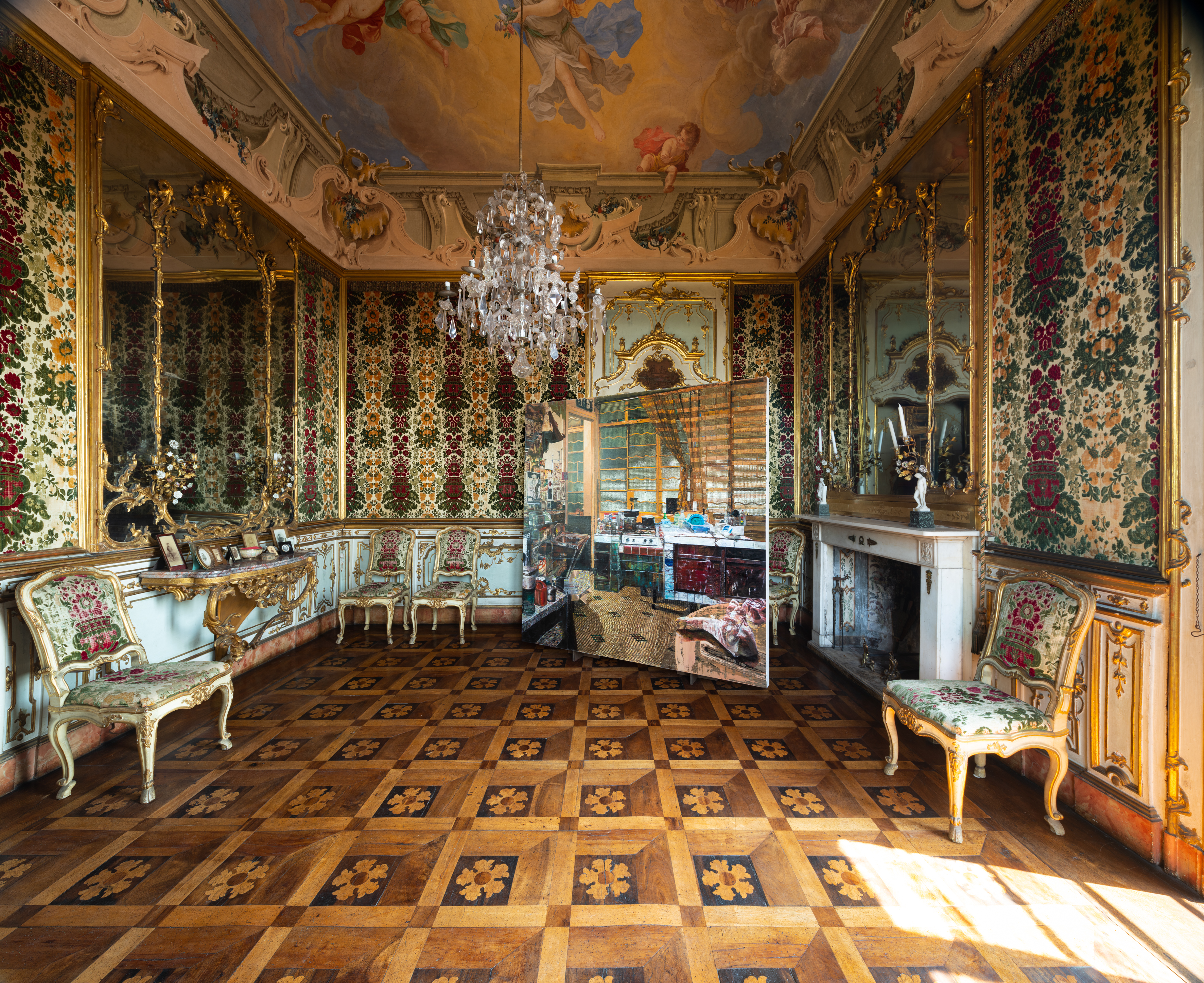
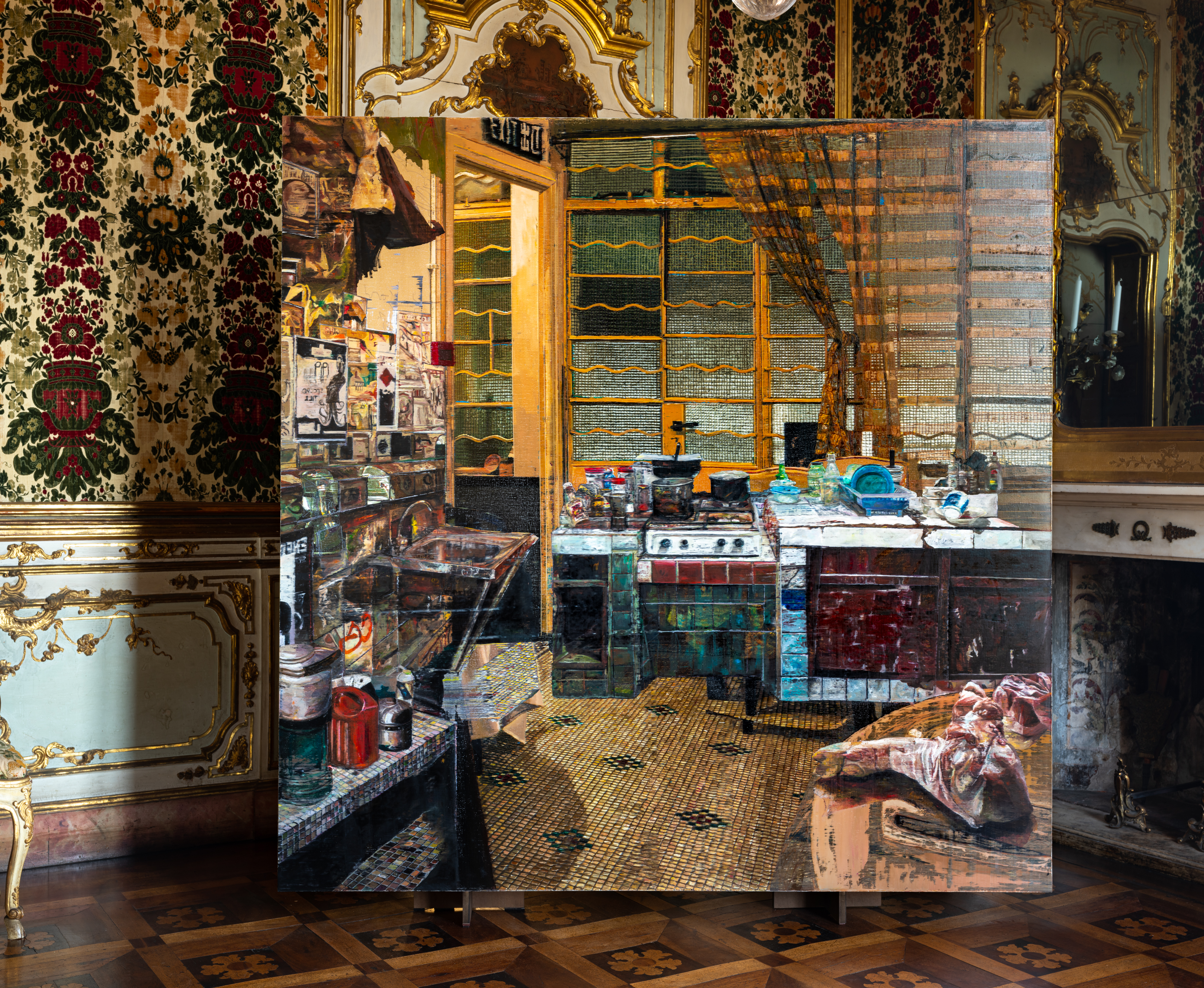
Mandarin Duck II
2018
Oil on canvas
200 x 200 cm
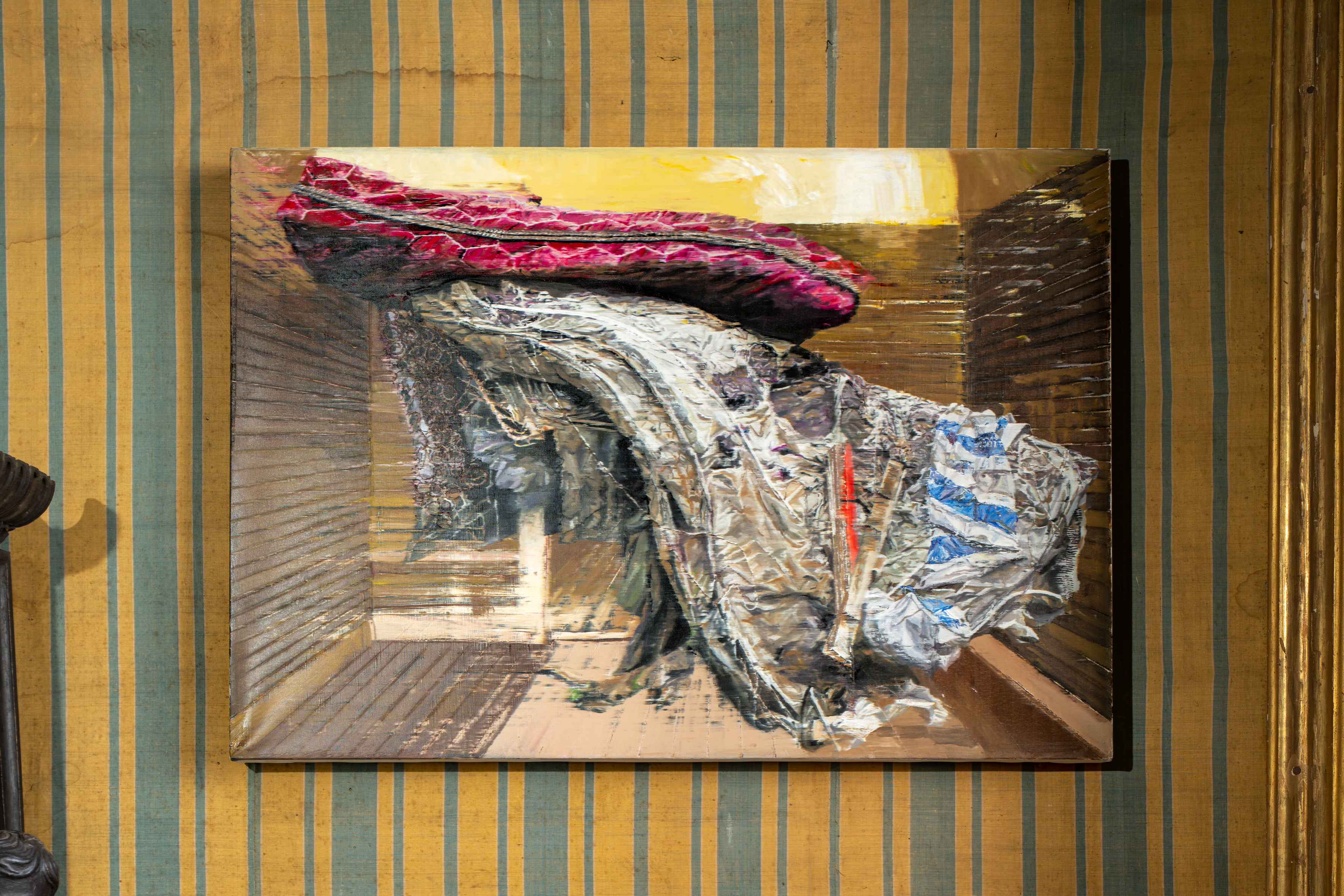
Camera I
2018
Oil on canvas
56 x 80 cm
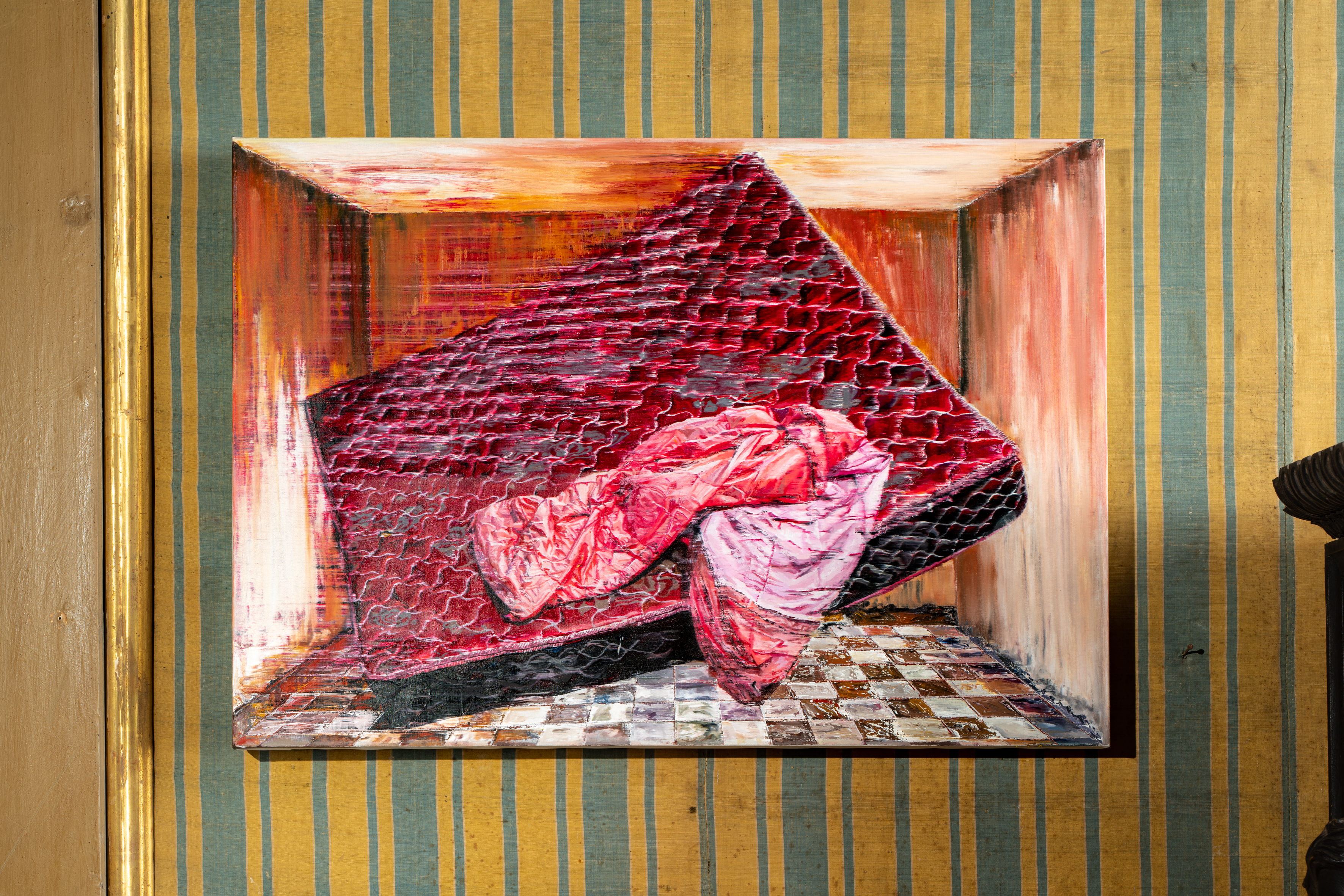
Camera Ⅱ
2018
Oil on canvas
80 x 56 cm
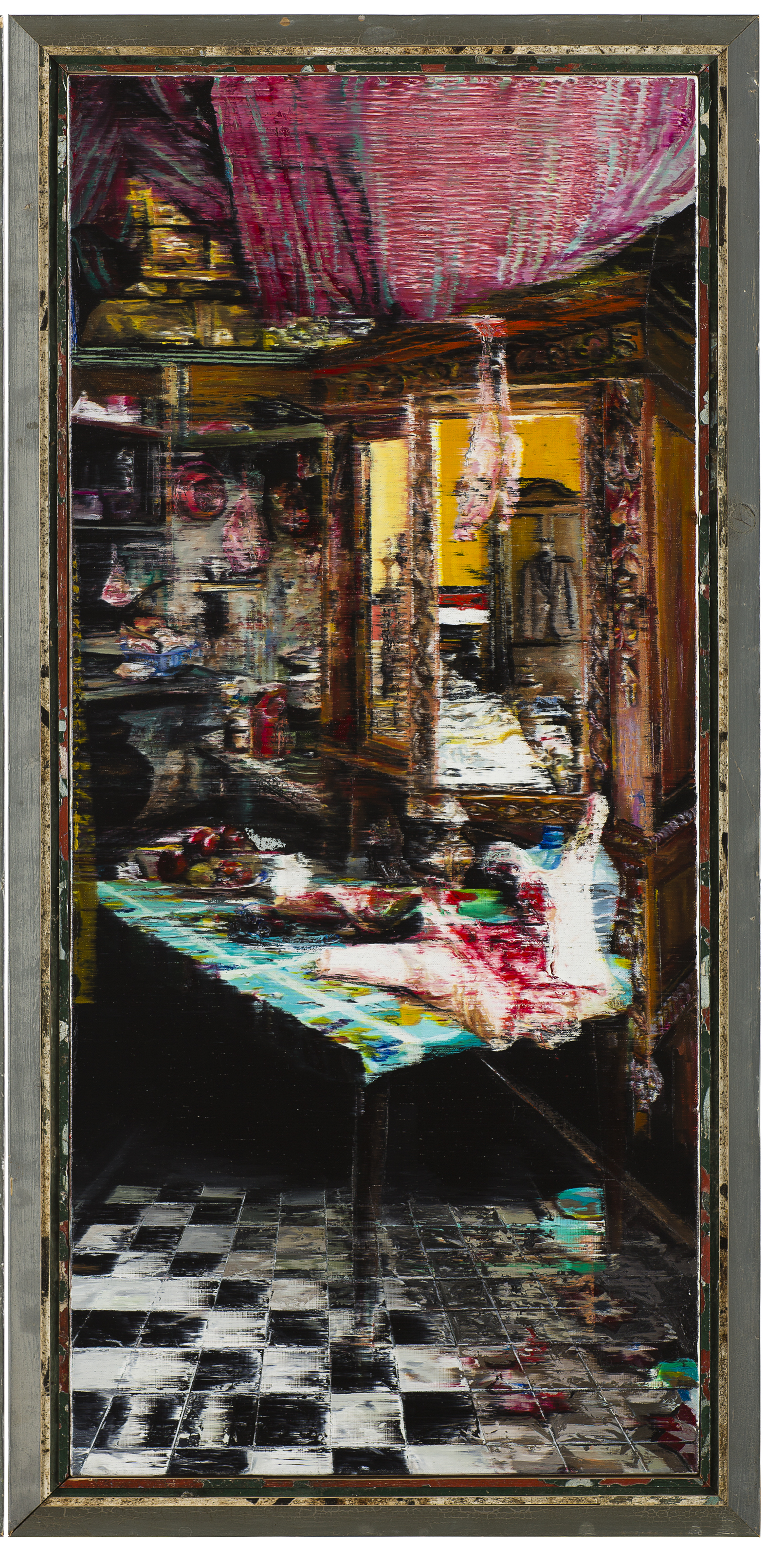
Green Day
2018
Oil on linen
Left panel: 97 x 48 cm
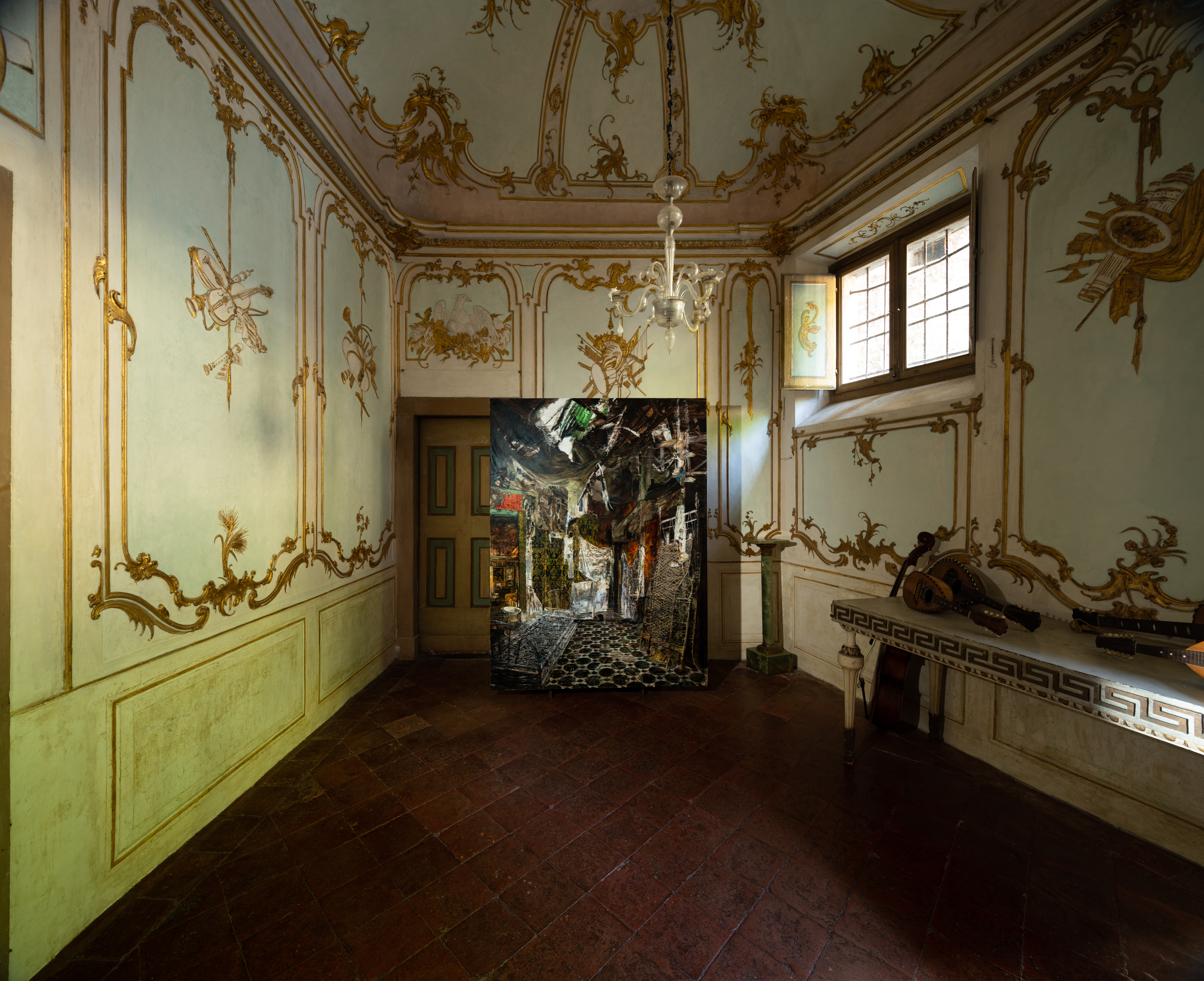
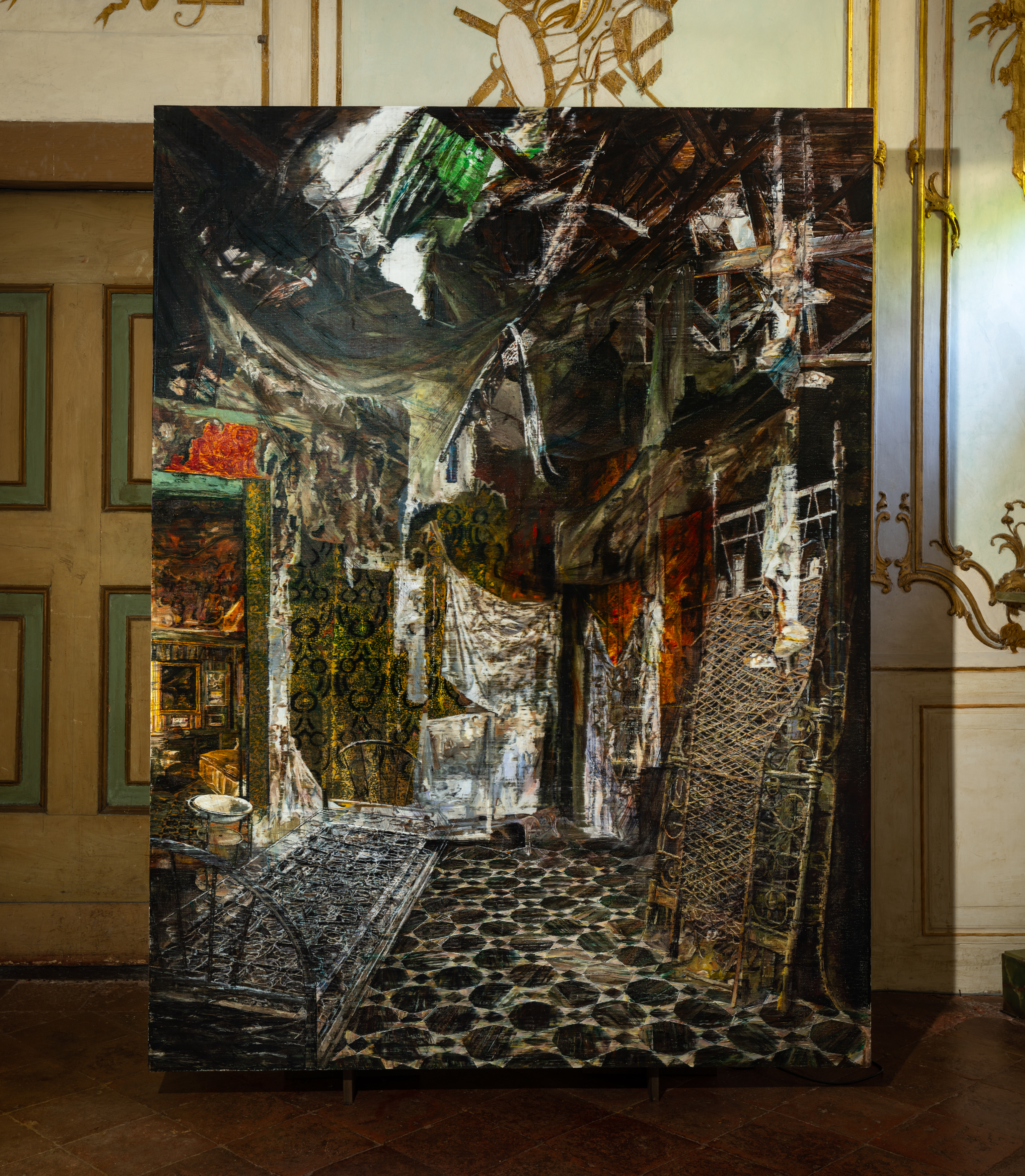
Camera Ⅲ
2018
Oil on canvas
200 x 150 cm
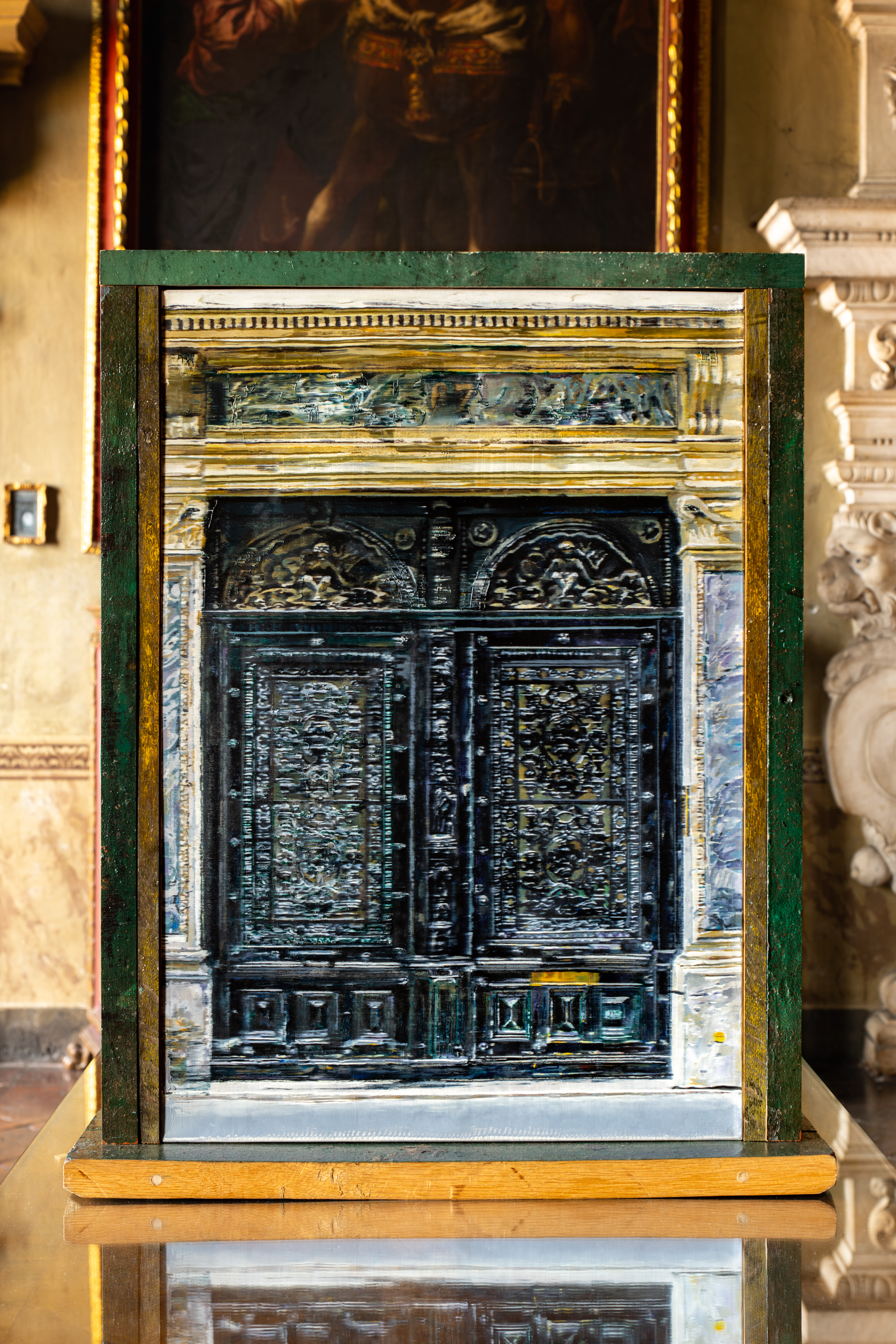
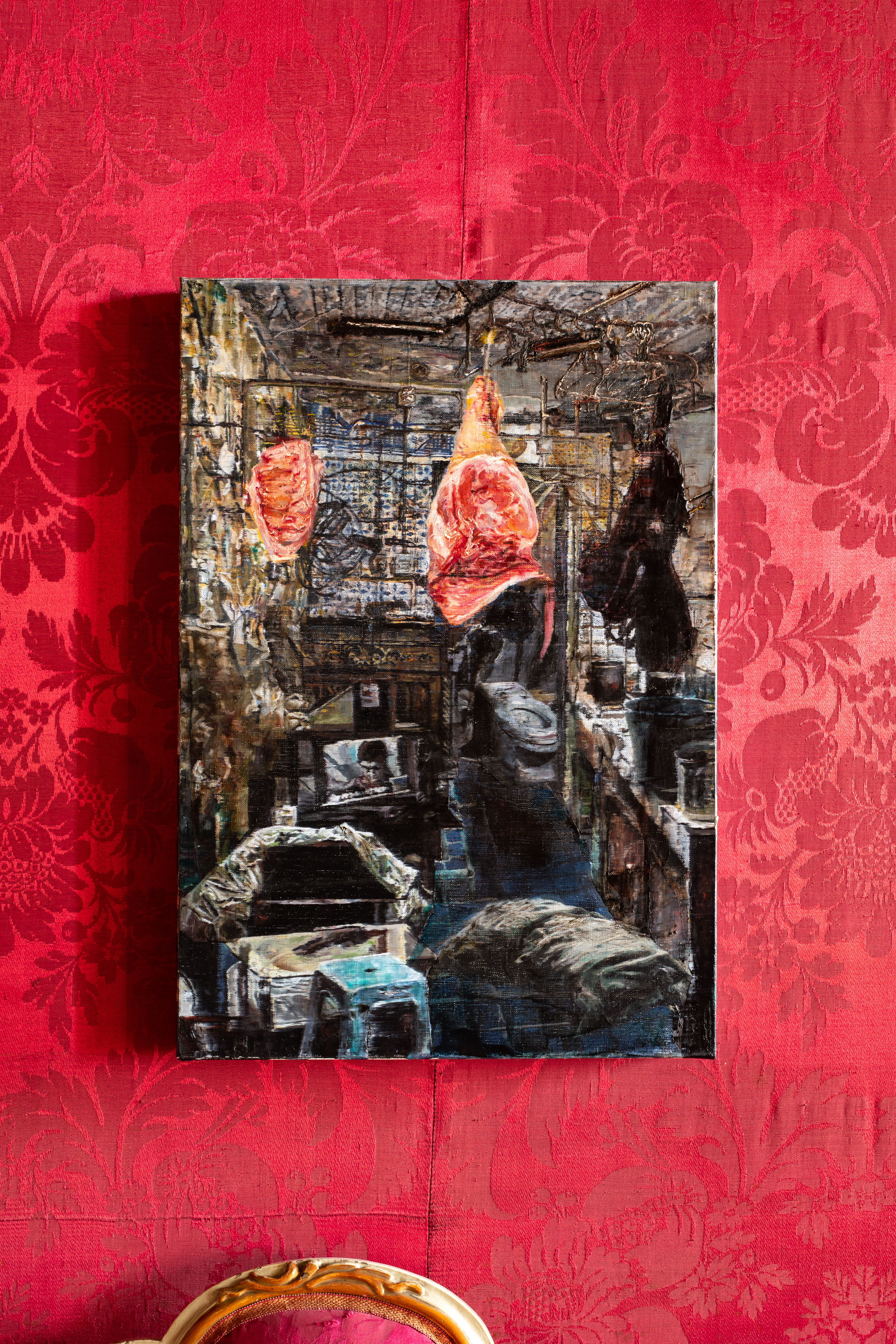
Room of Darkness
2018
Oil on canvas
58 X 40 cm
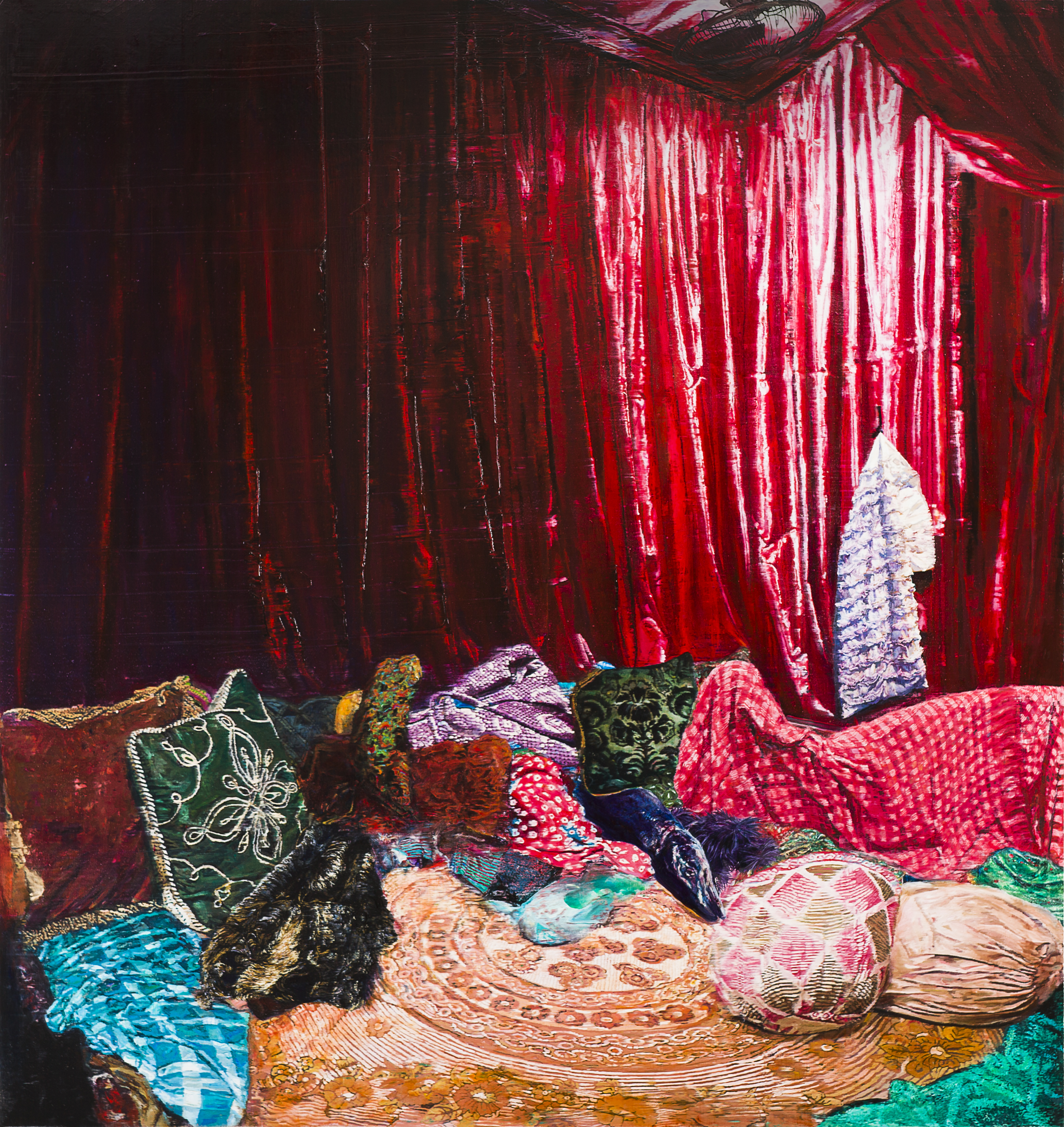
Privacy
2016
Oil on canvas
180 x 170 cm
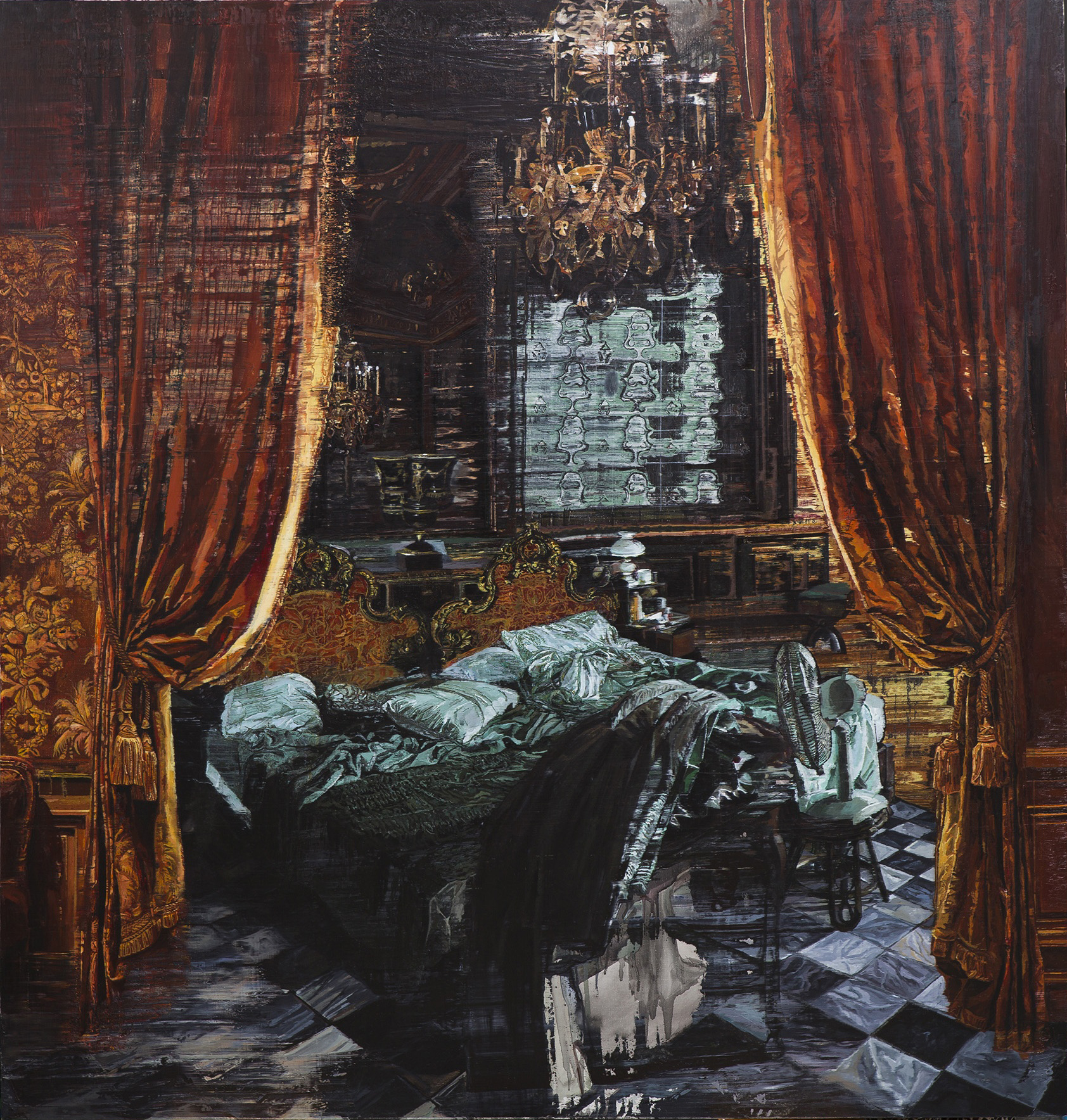
Shared dream
2016
Oil on canvas
180 x 170 cm
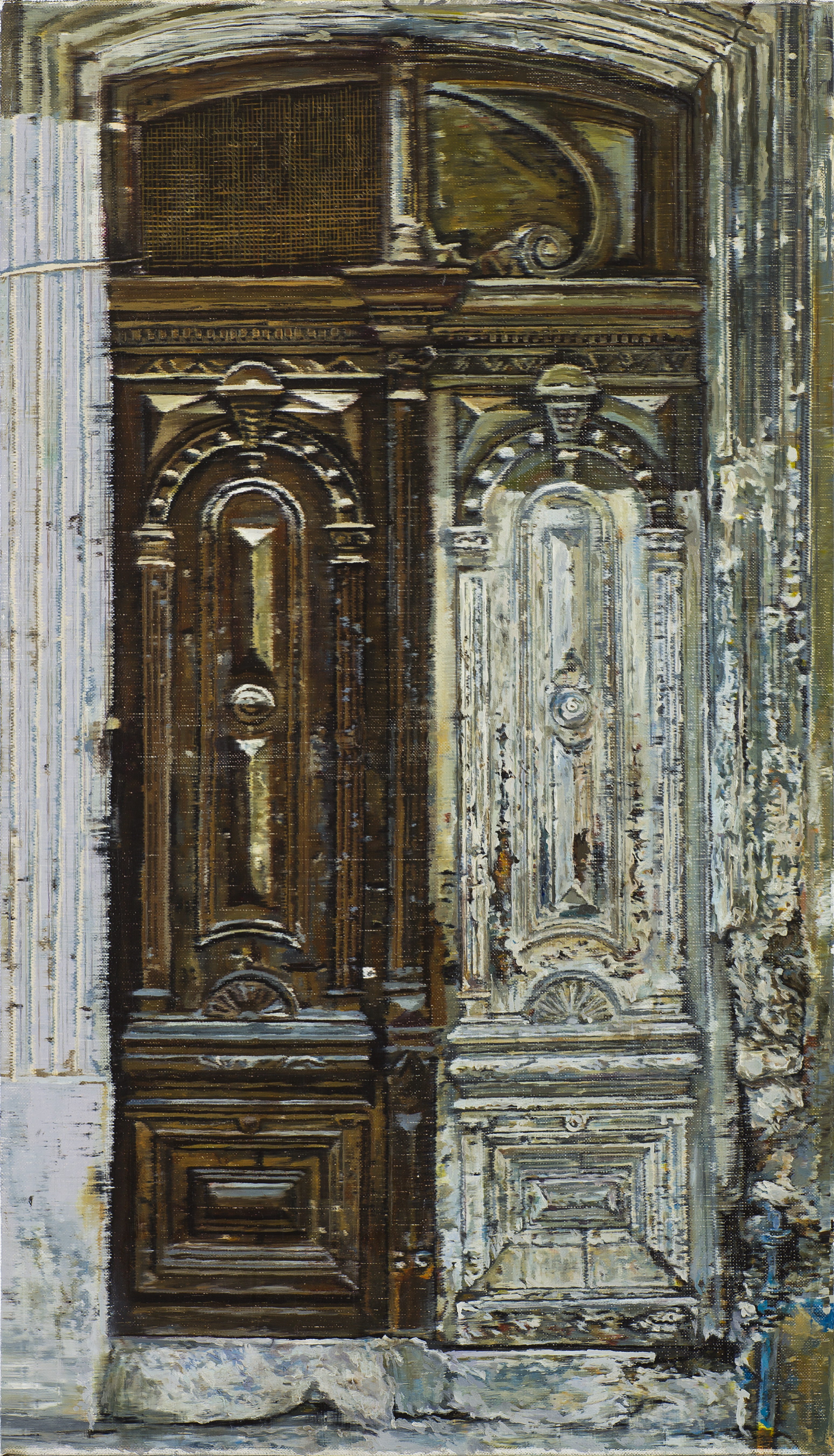
La Habana I
2016
Oil on linen
70.5 x 40 cm
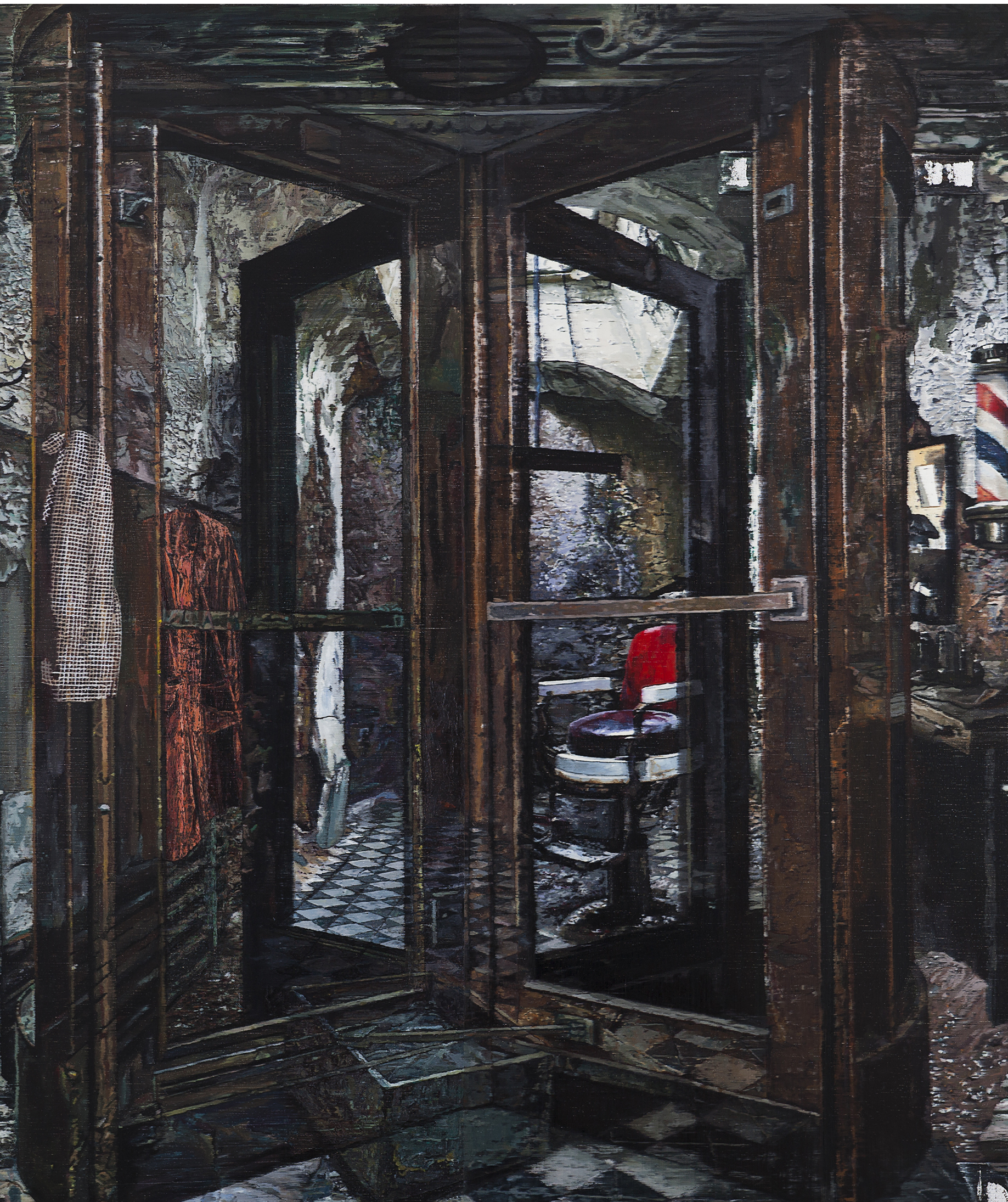
Barber in the Jail
2016
Oil on linen
180 x 170 cm
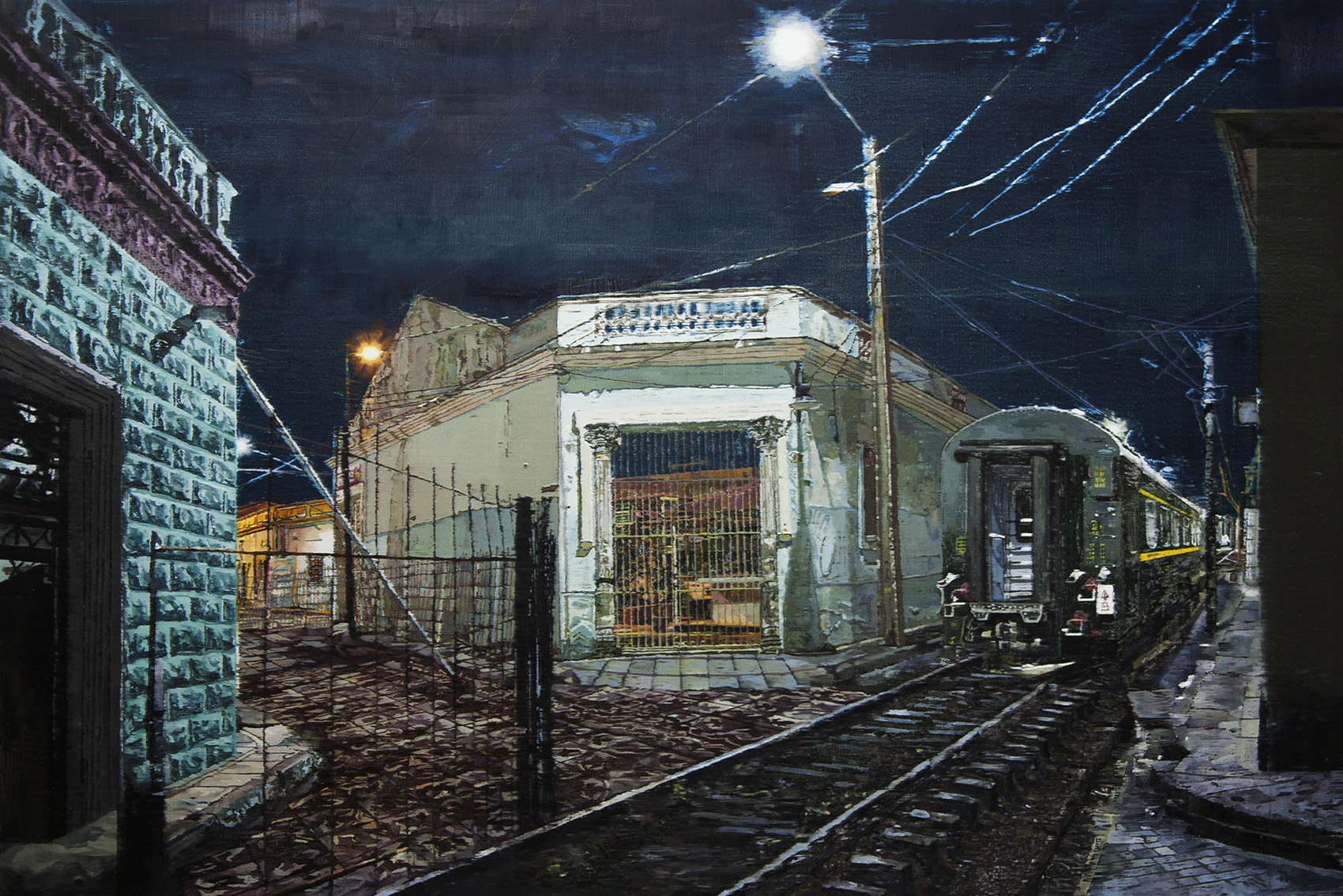
Camagüey
2015
Oil on canvas
155 x 105 cm
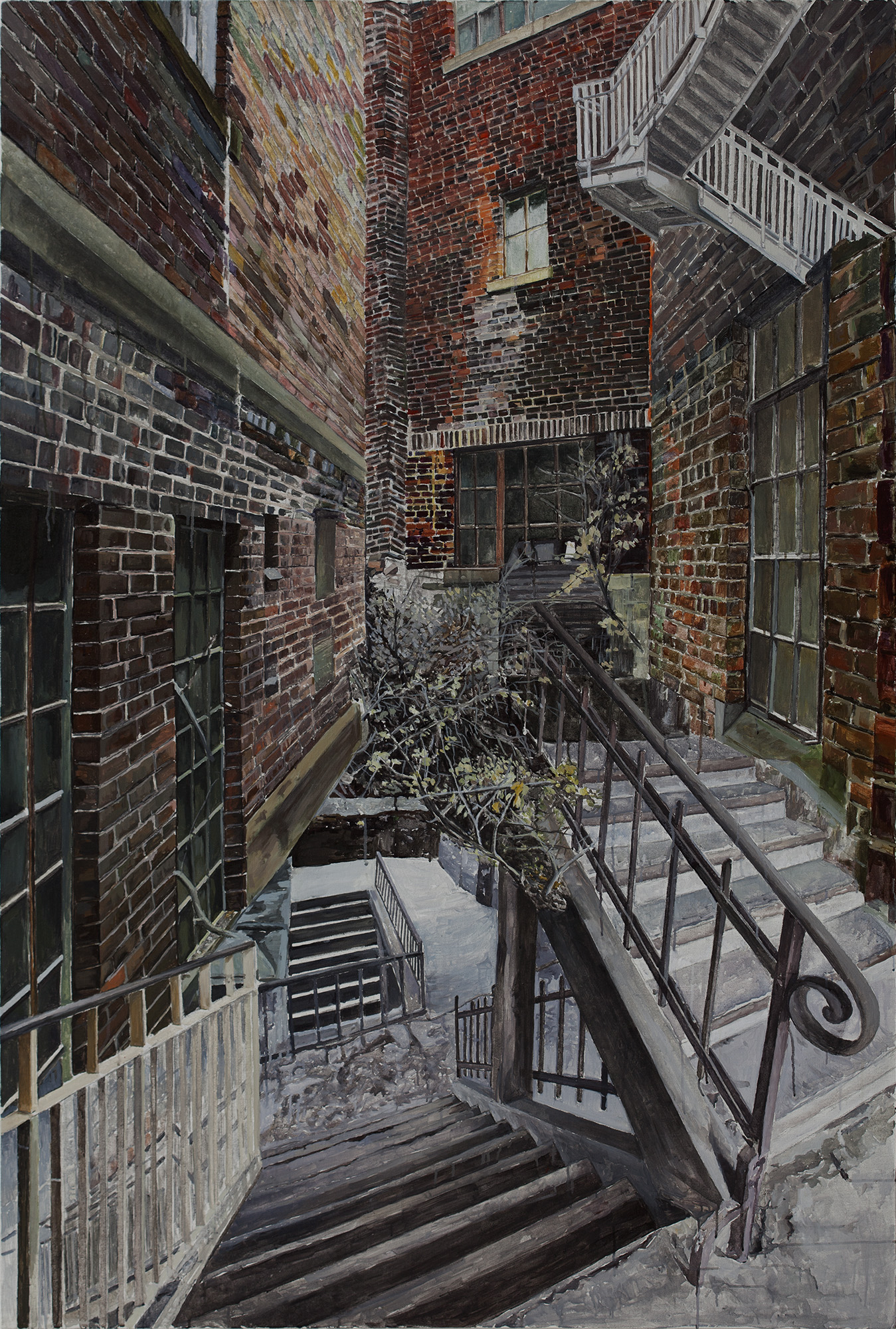
Shan Shan Backyard
2014
Oil on linen
200 x 135 cm
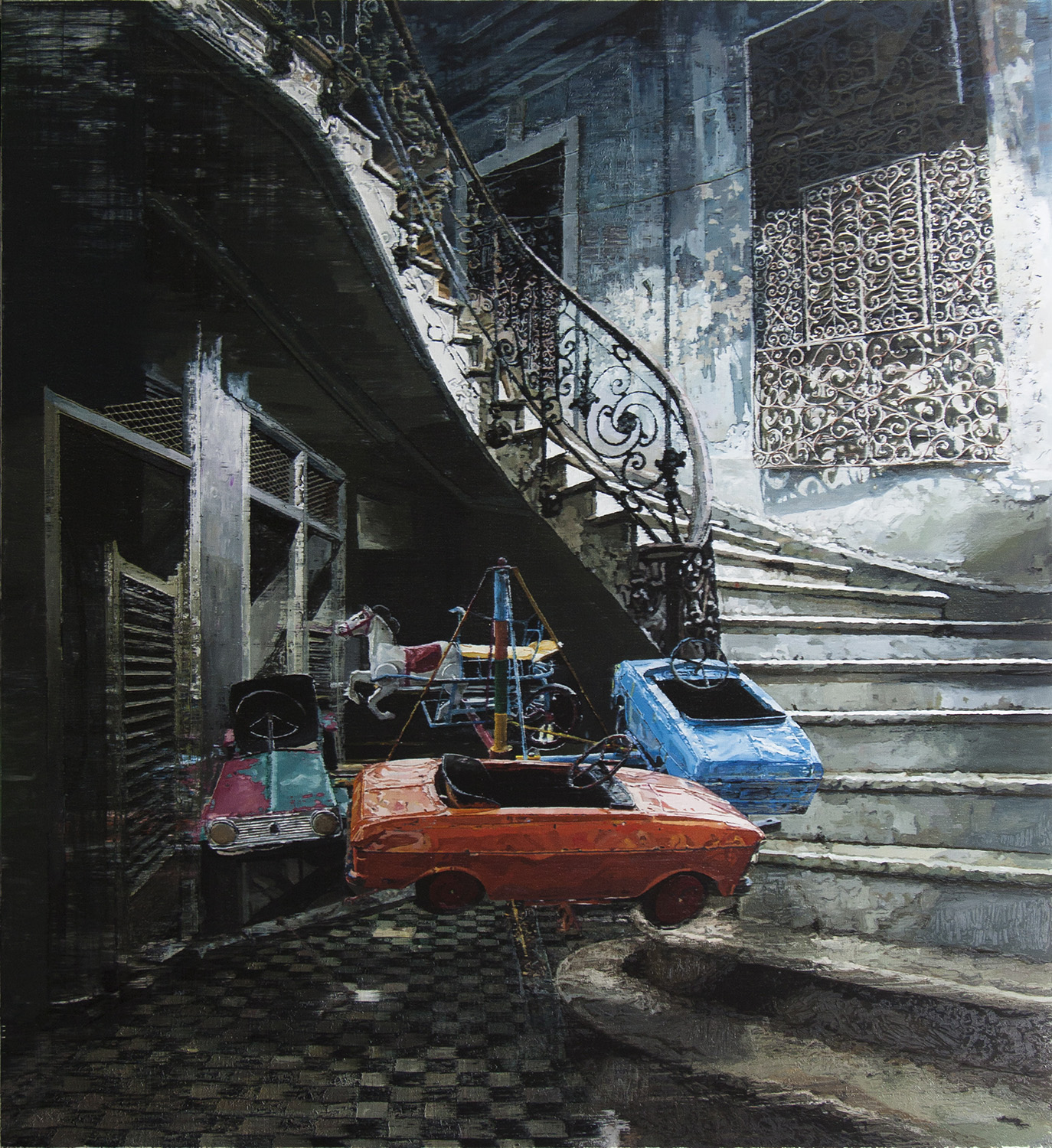
Happy time
2015
Oil on canvas
196 x 179 cm
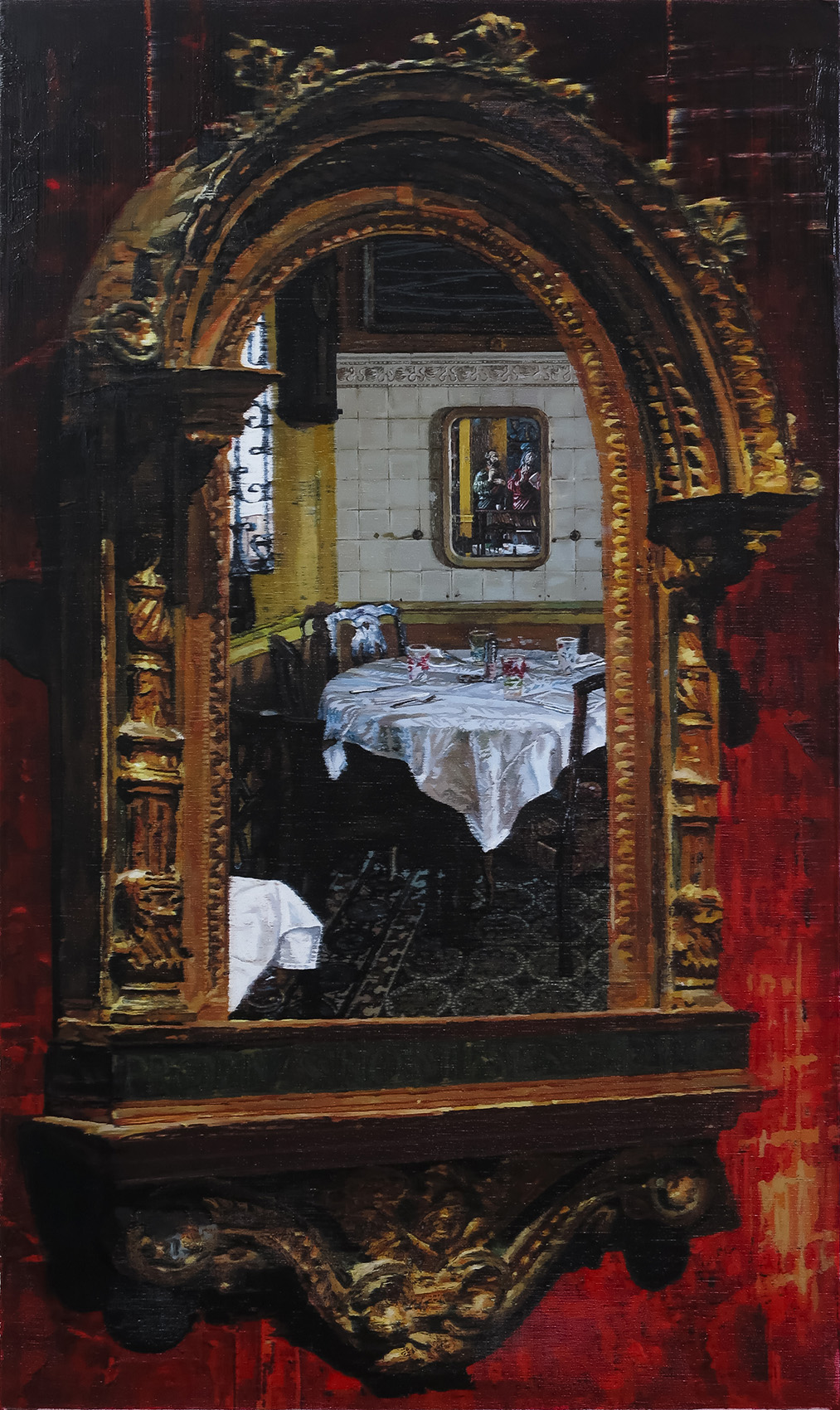
La Guarida in the mirror
2015
Oil on canvas
127 x 75 cm
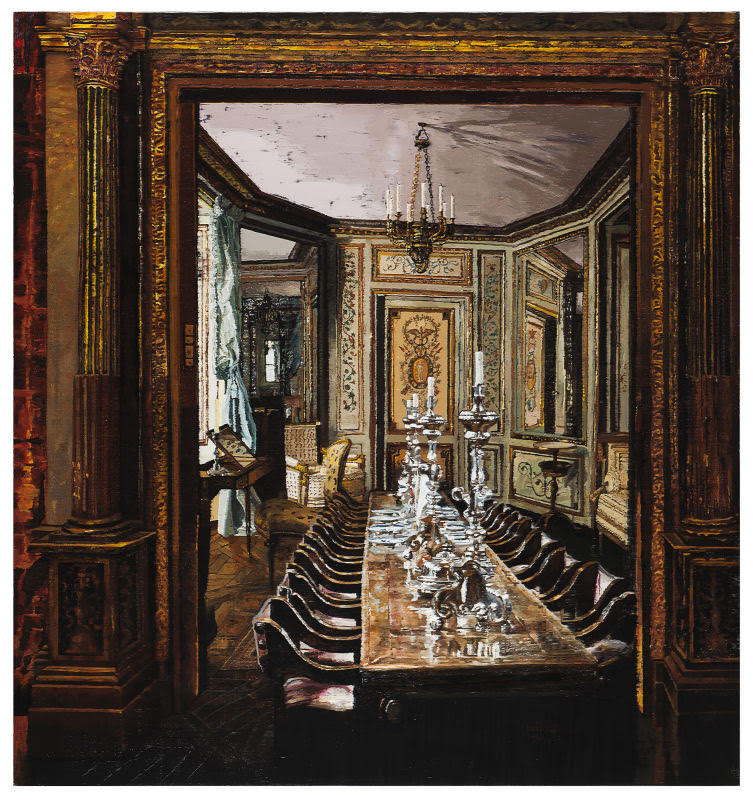
Metropolitan Home Pavilion
2015
Oil on canvas
180 x 170 cm
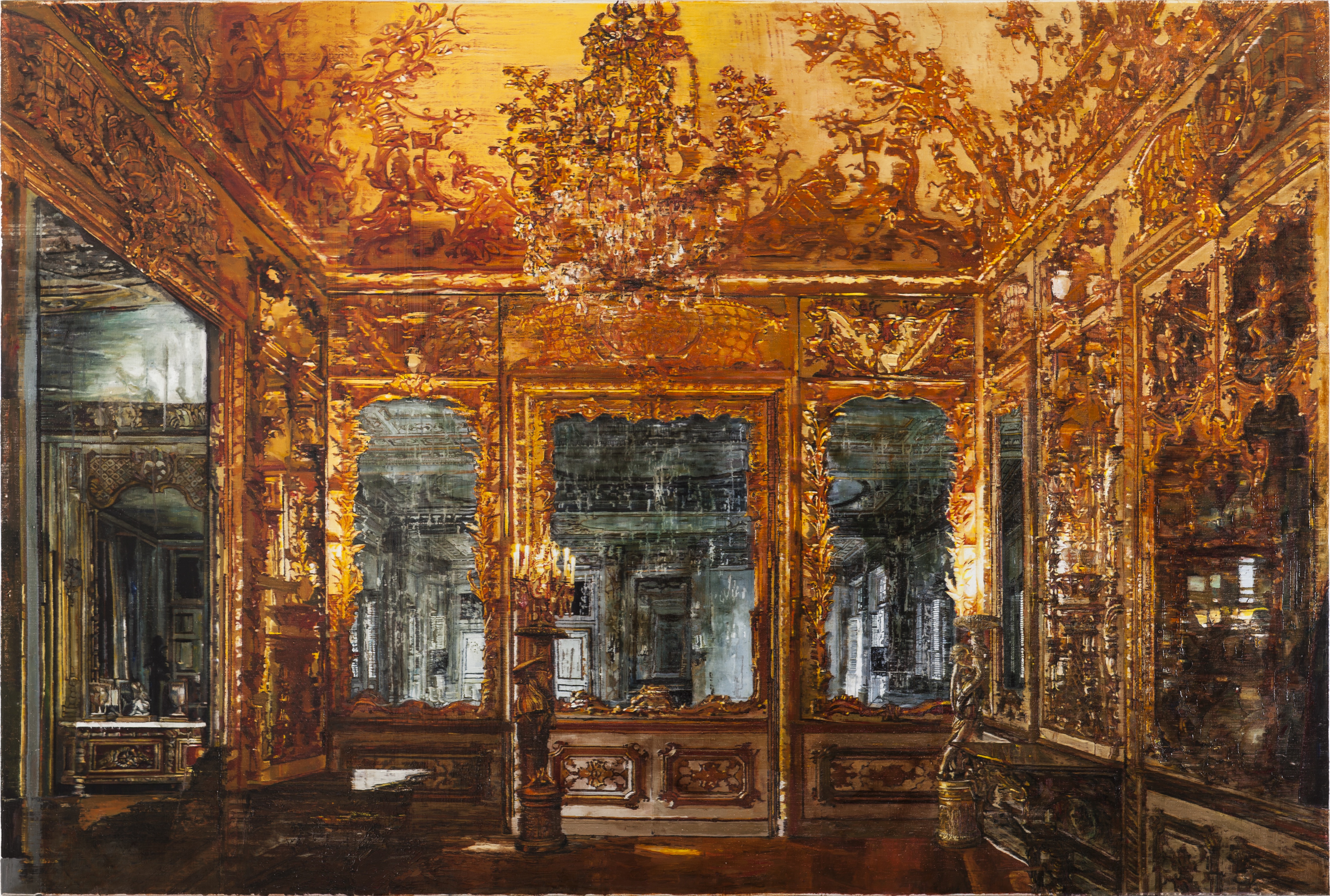
The End of the End
2015
Oil on canvas
155 x 230 cm
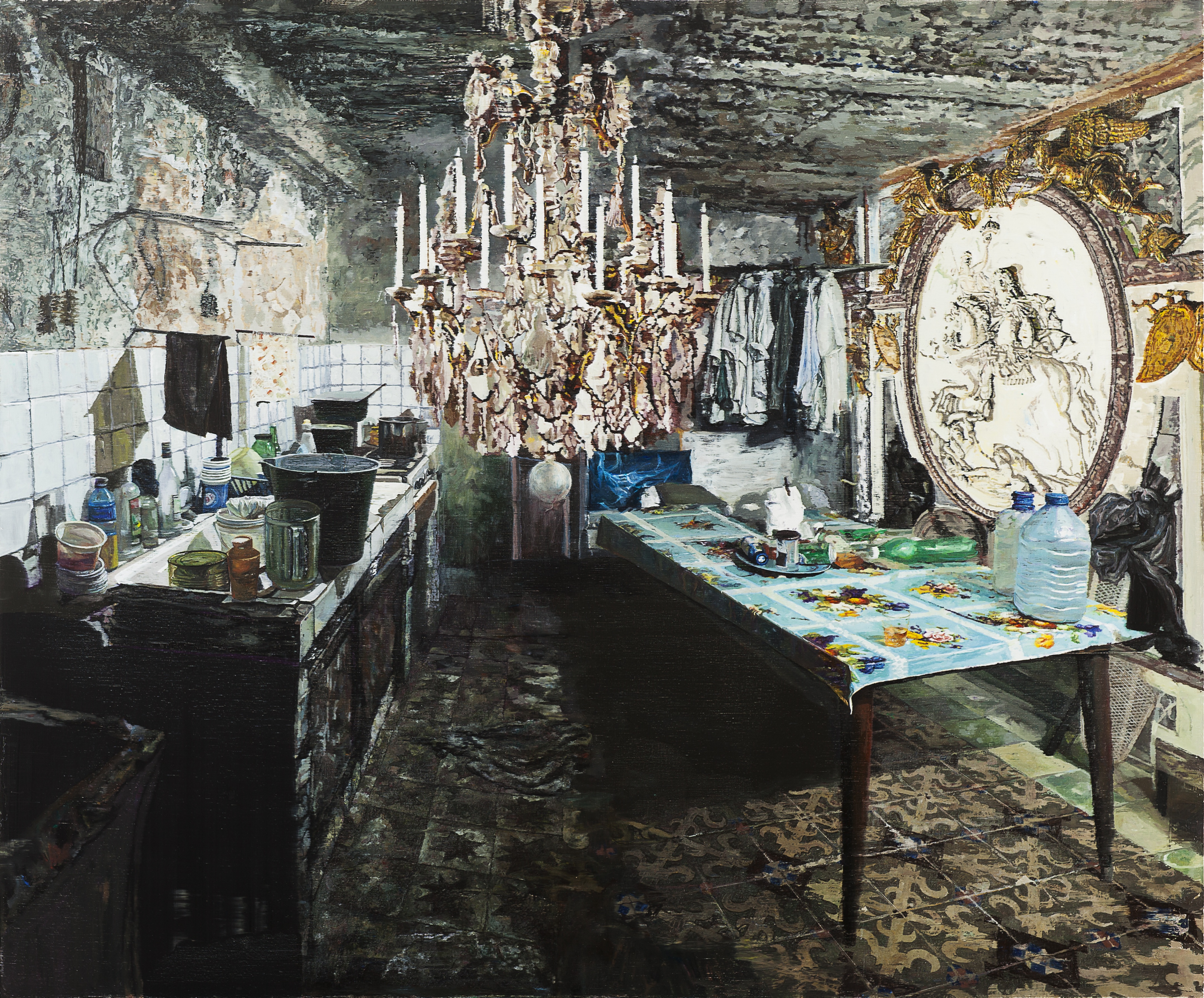
My Diningroom
2015
Oil o canvas
195 x 162 cm
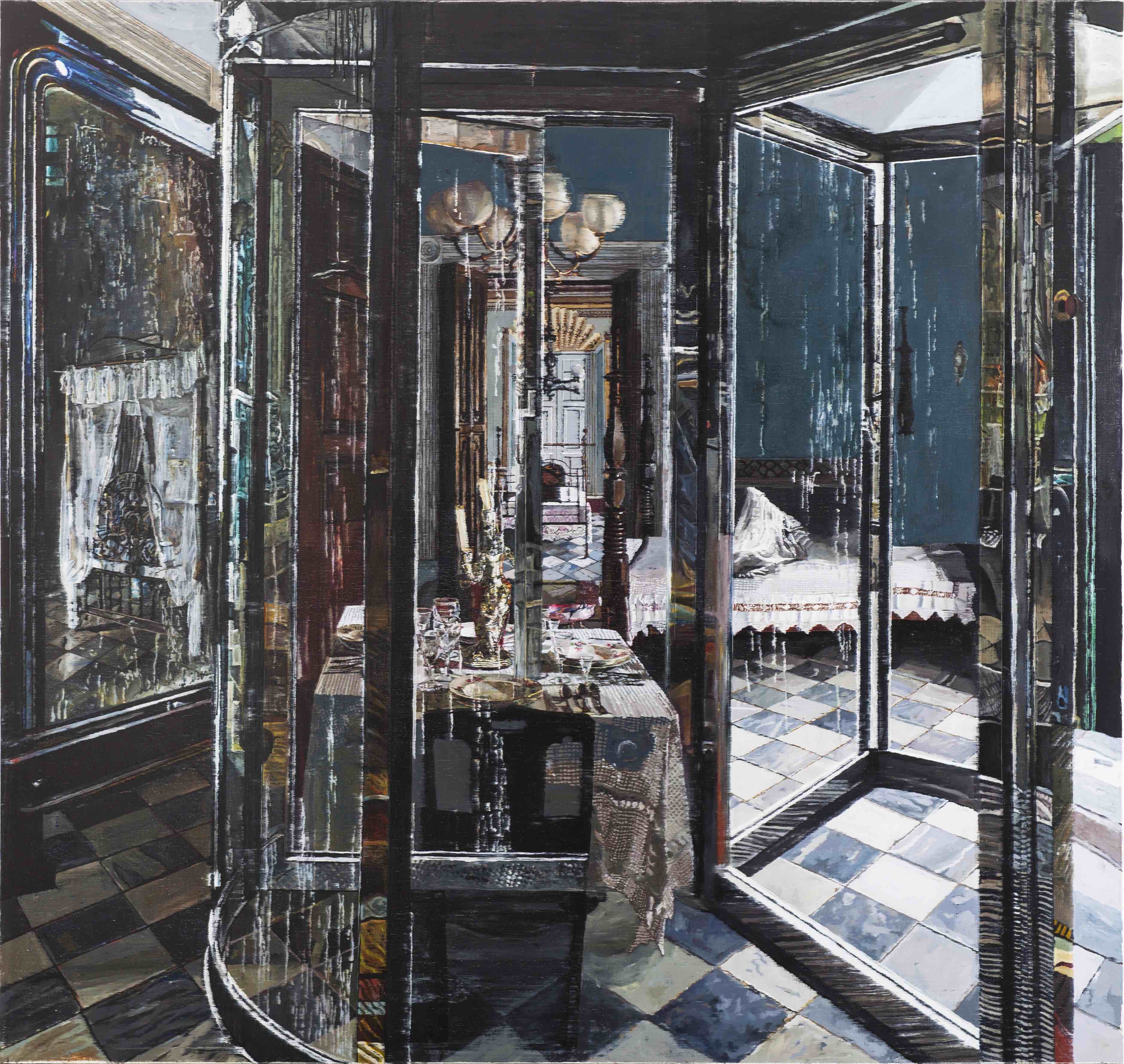
Romantic Museum
2015
Oil on canvas
185 x 195 cm
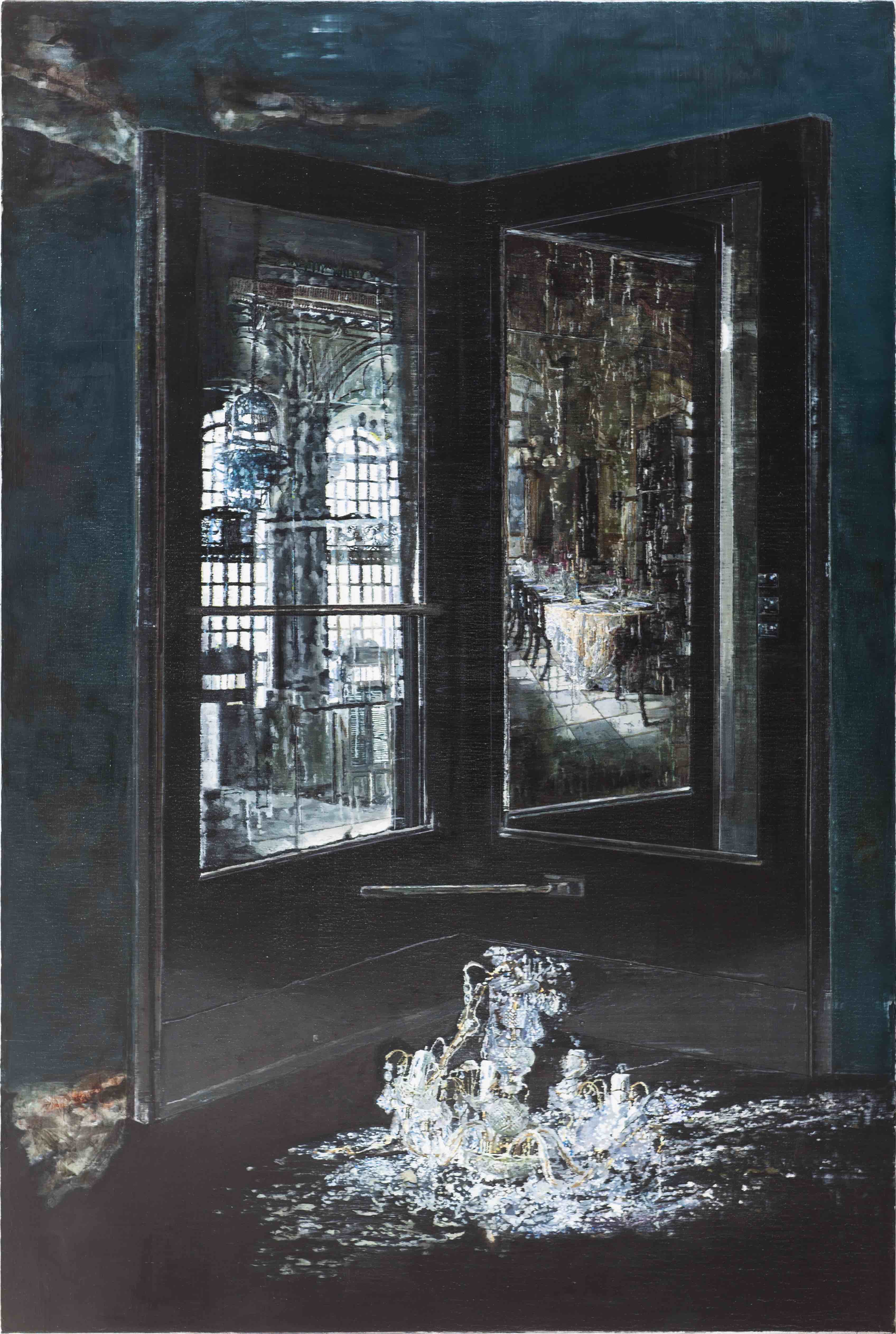
Togetherness
2015
Oil on canvas
202 x 135 cm
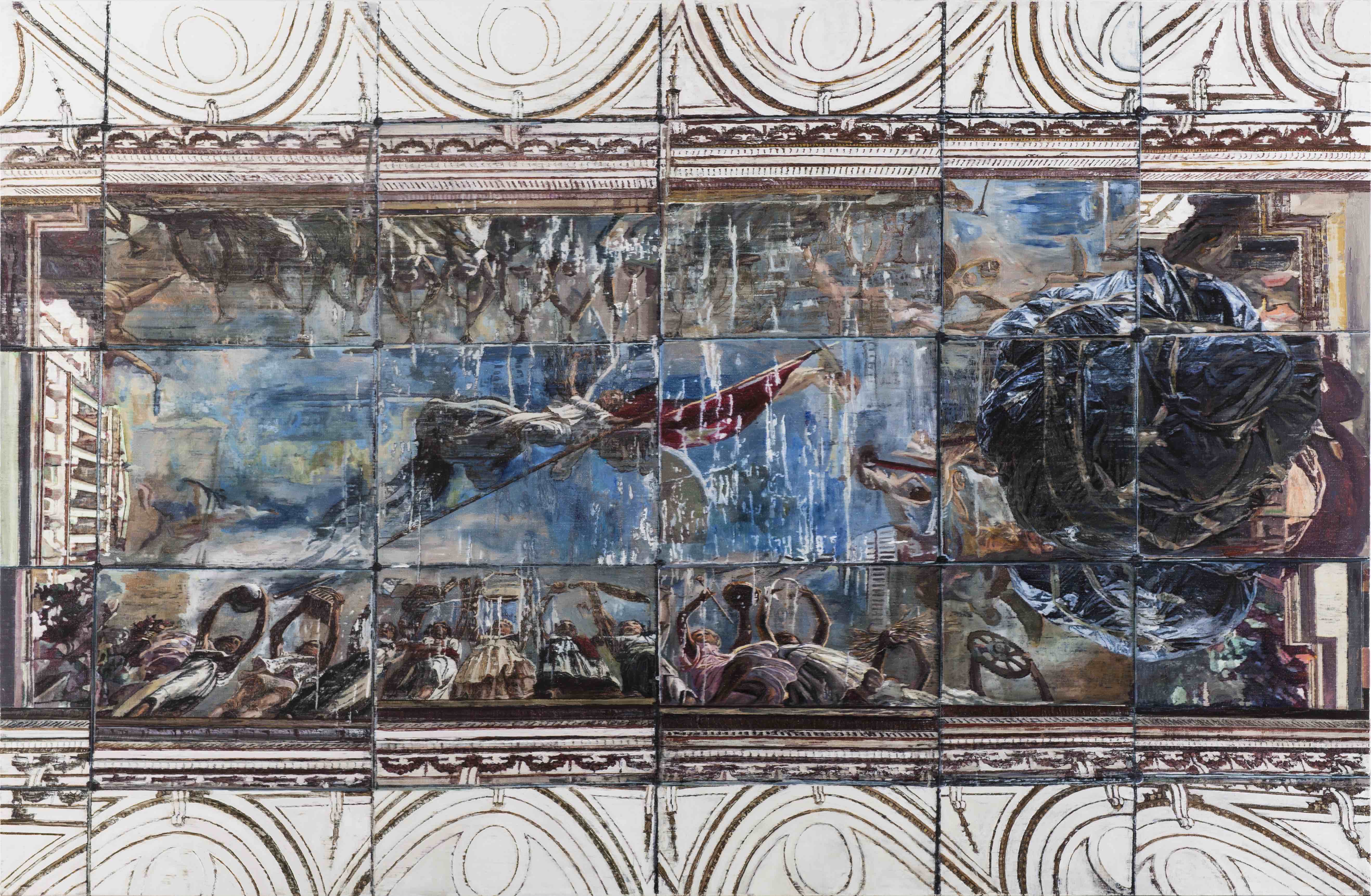
Floor
2015
Oil on canvas
150 x 230 cm
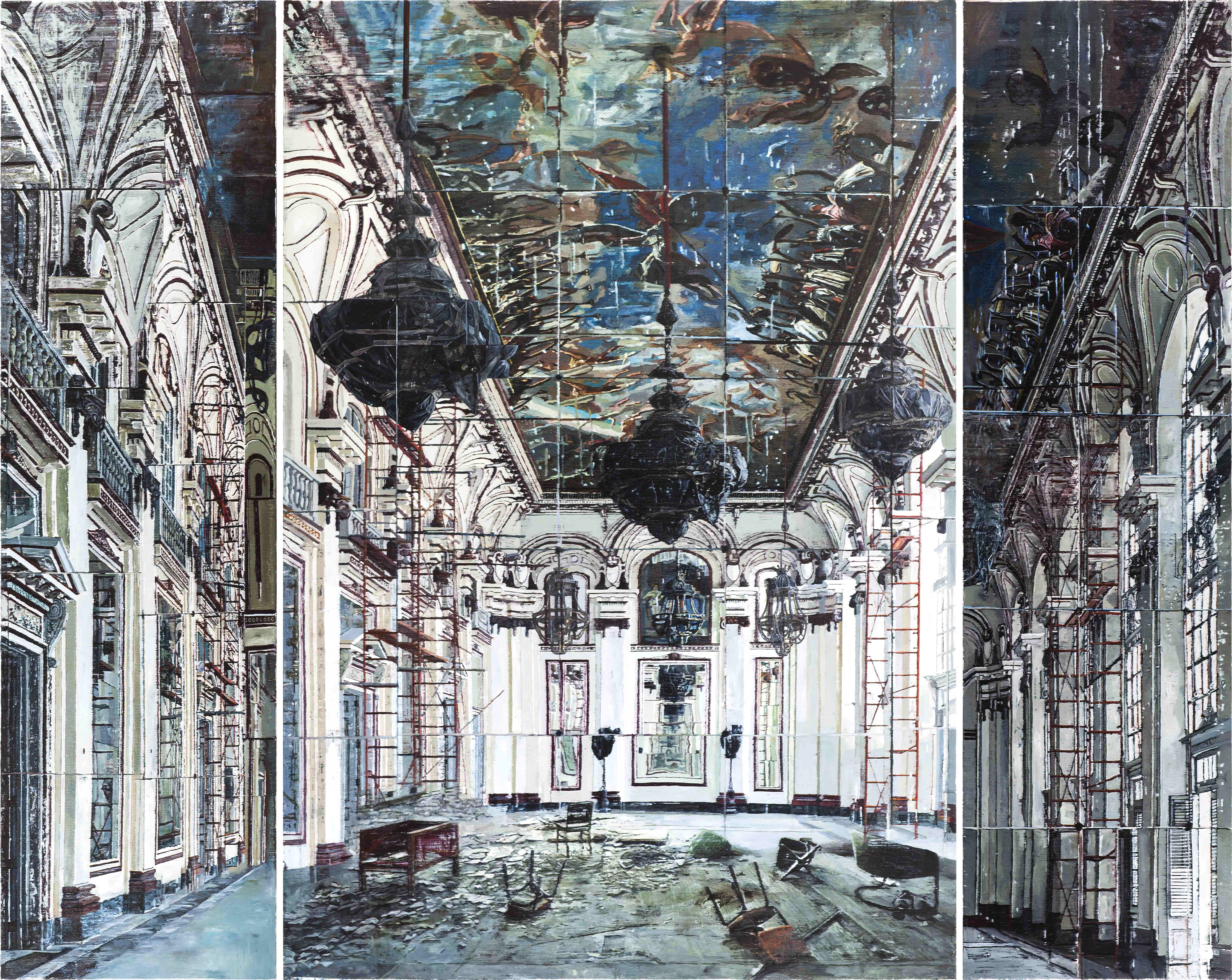
The Other Side
2015
Oil on canvas
230 x 63, 230 x 155, 230 x 63 cm
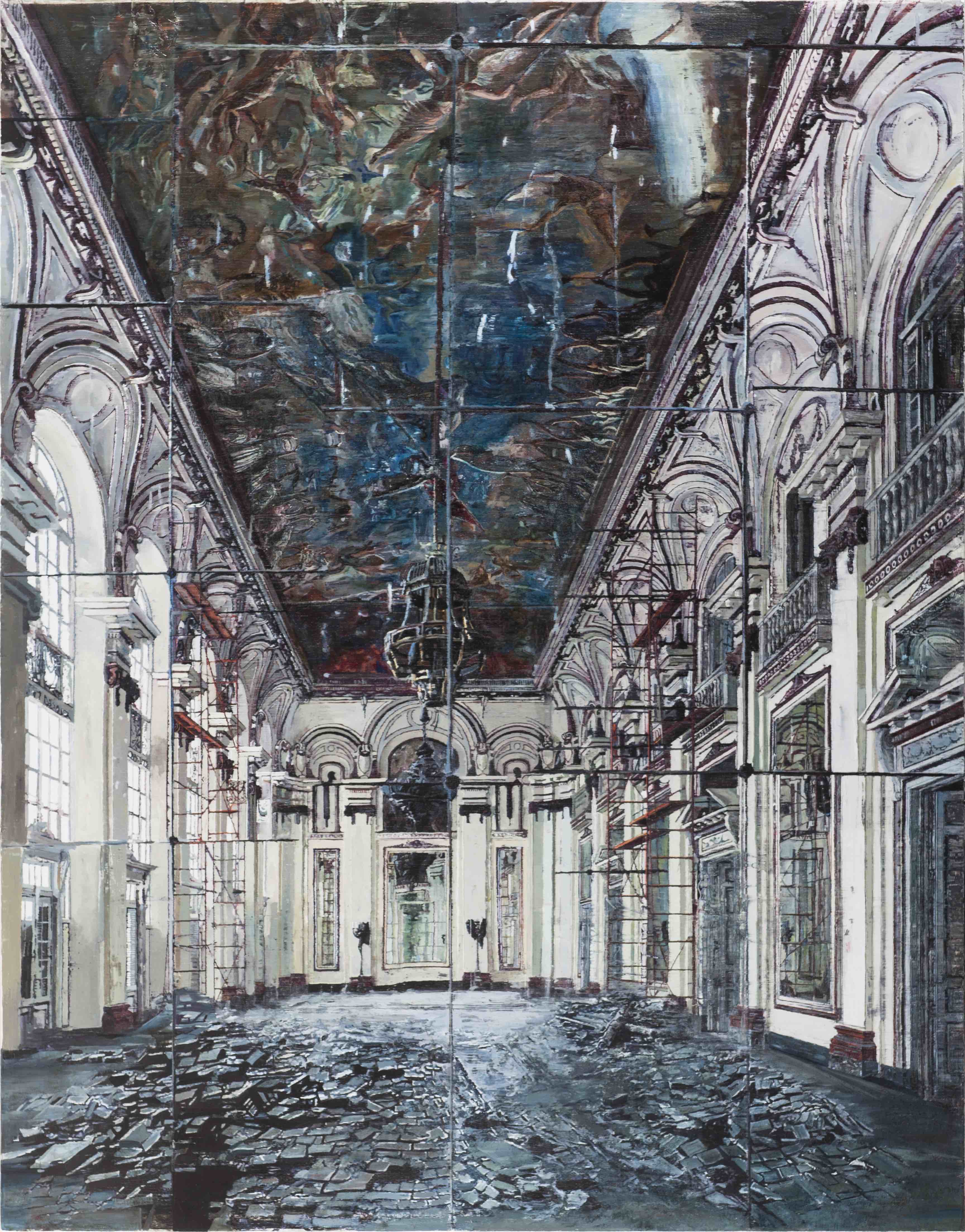
The Other Side 3
2015
Oil on canvas
230 x 180 cm
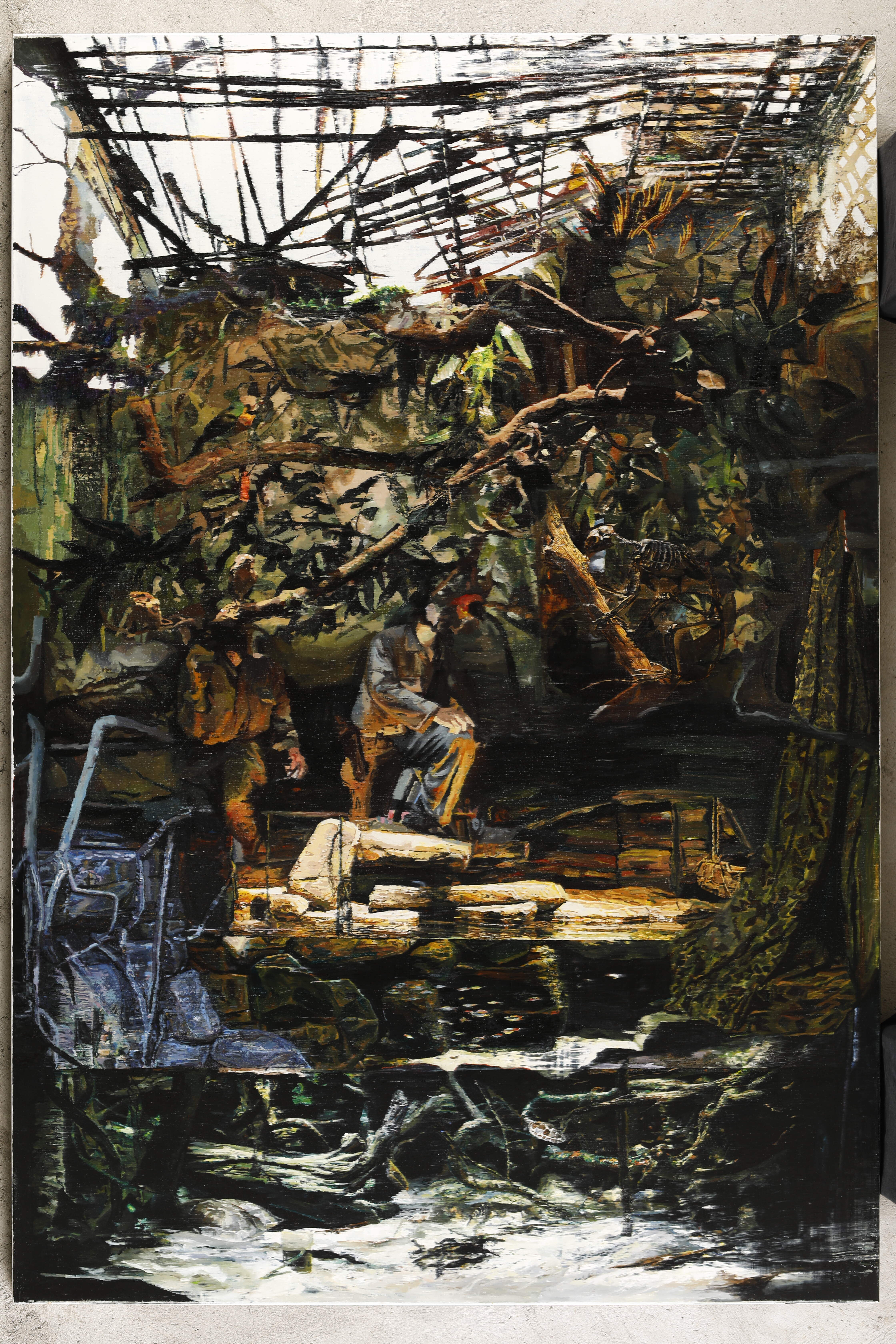
With the effort of all we will win
2015
Oil on linen
150 x 220 cm
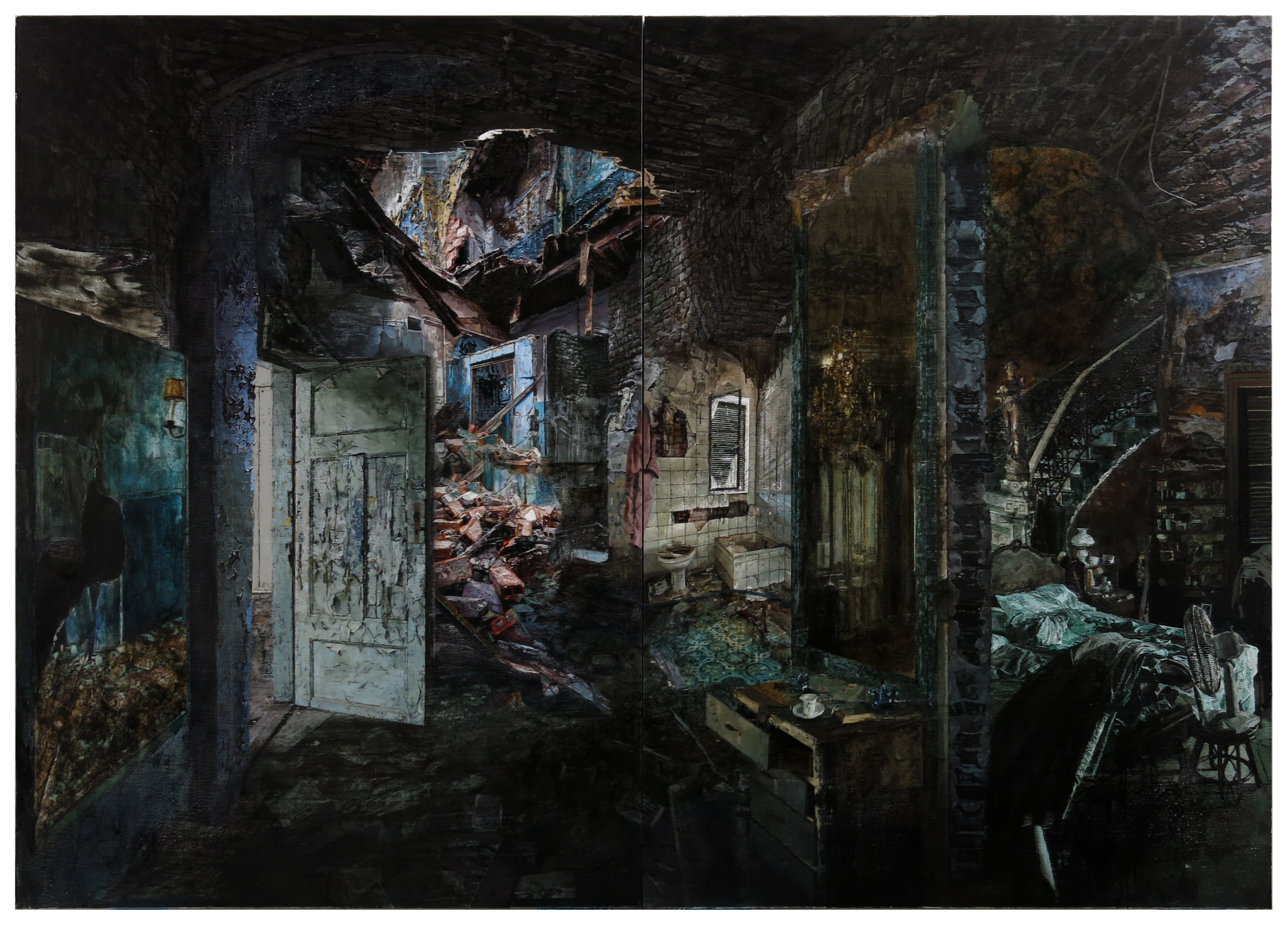
Welfare hotel
2014
Oil on linen
380 x 270 cm (diptych)
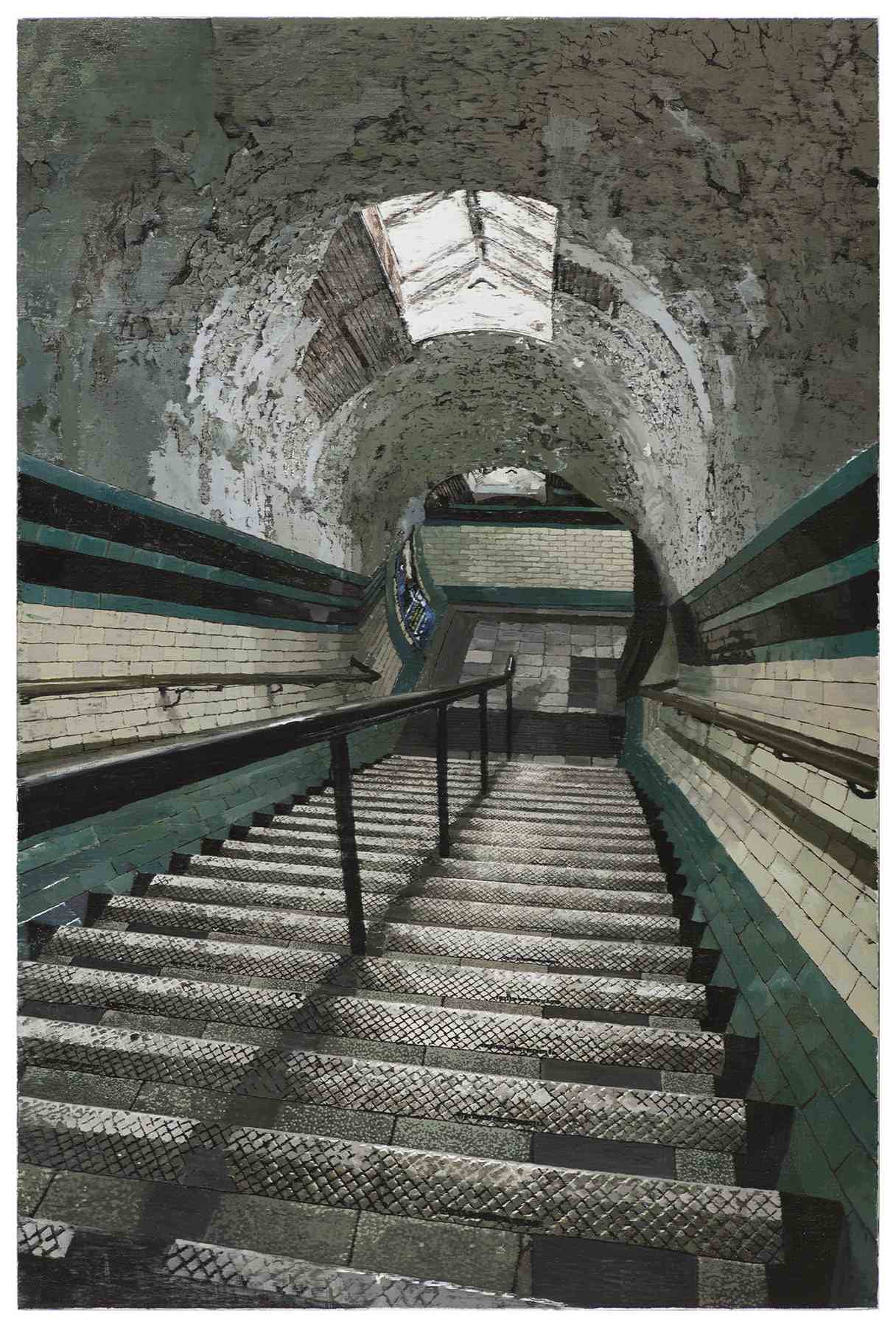
Beneath the Metropolis II
2013
Oil on canvas
190 x 127 cm
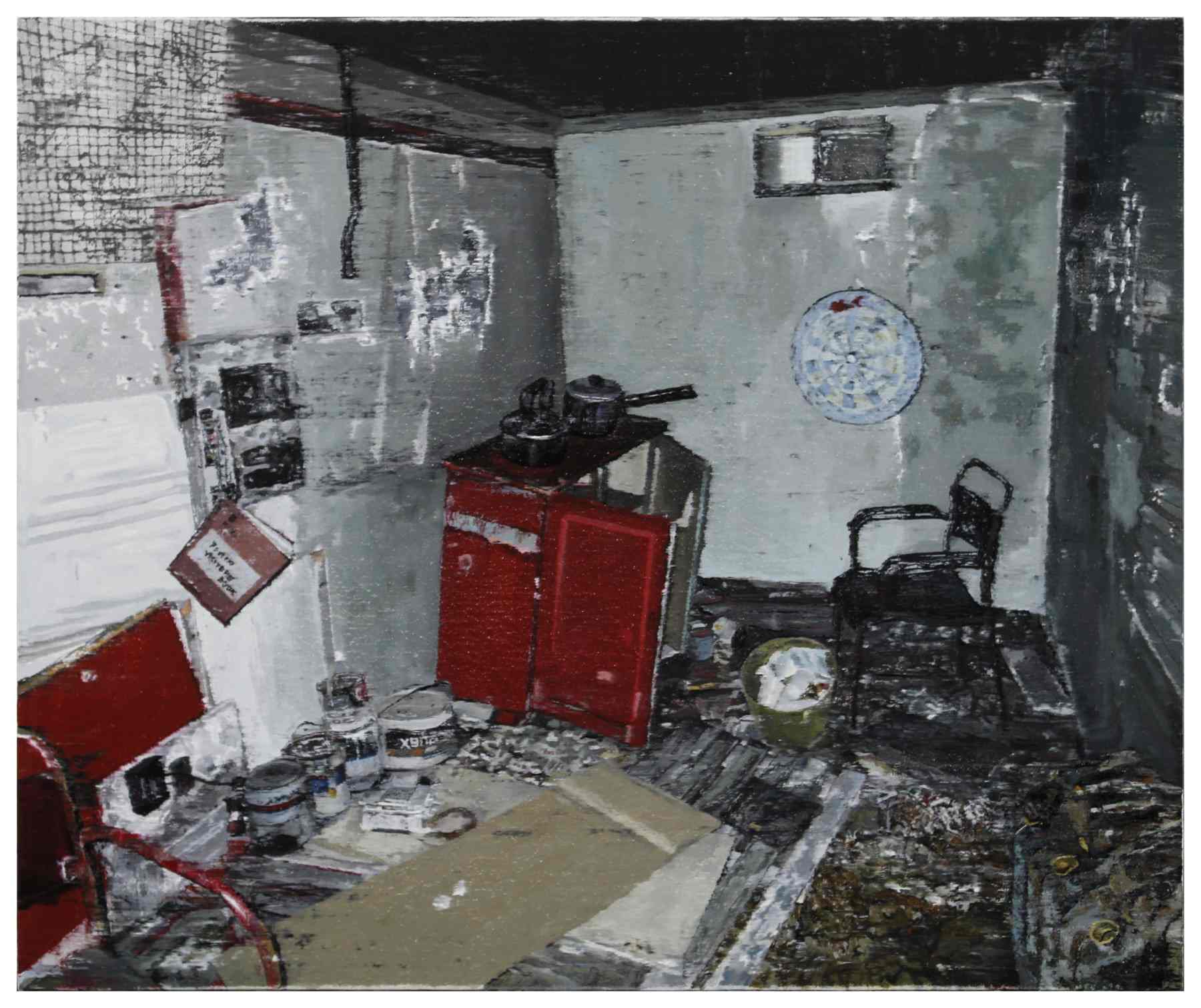
Bunker I
2013
Oil on canvas
83 x 100 cm
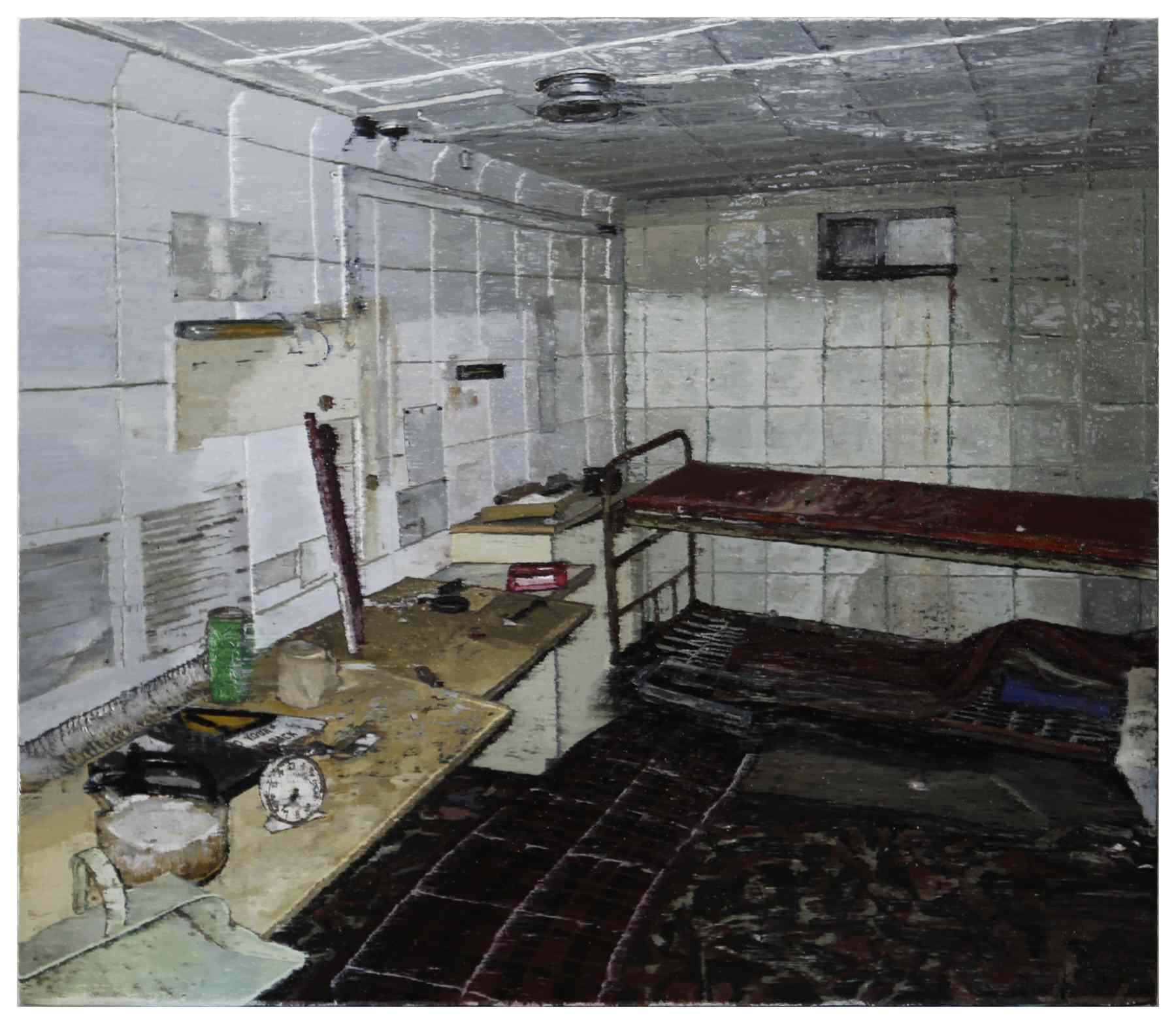
Bunker II
2013
Oil on canvas
83 x 95 cm
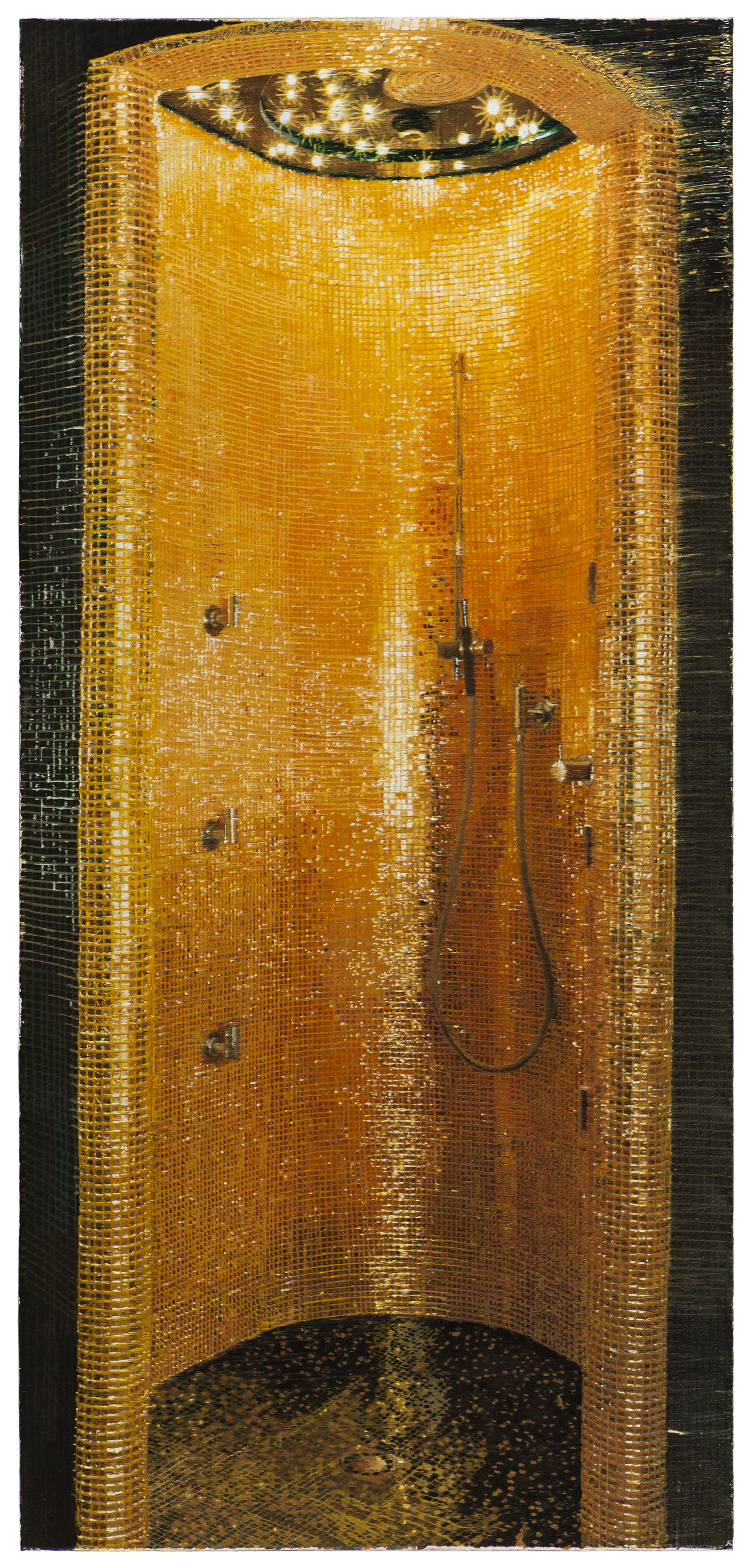
Shower
2013
Oil on linen
193 x 90 cm
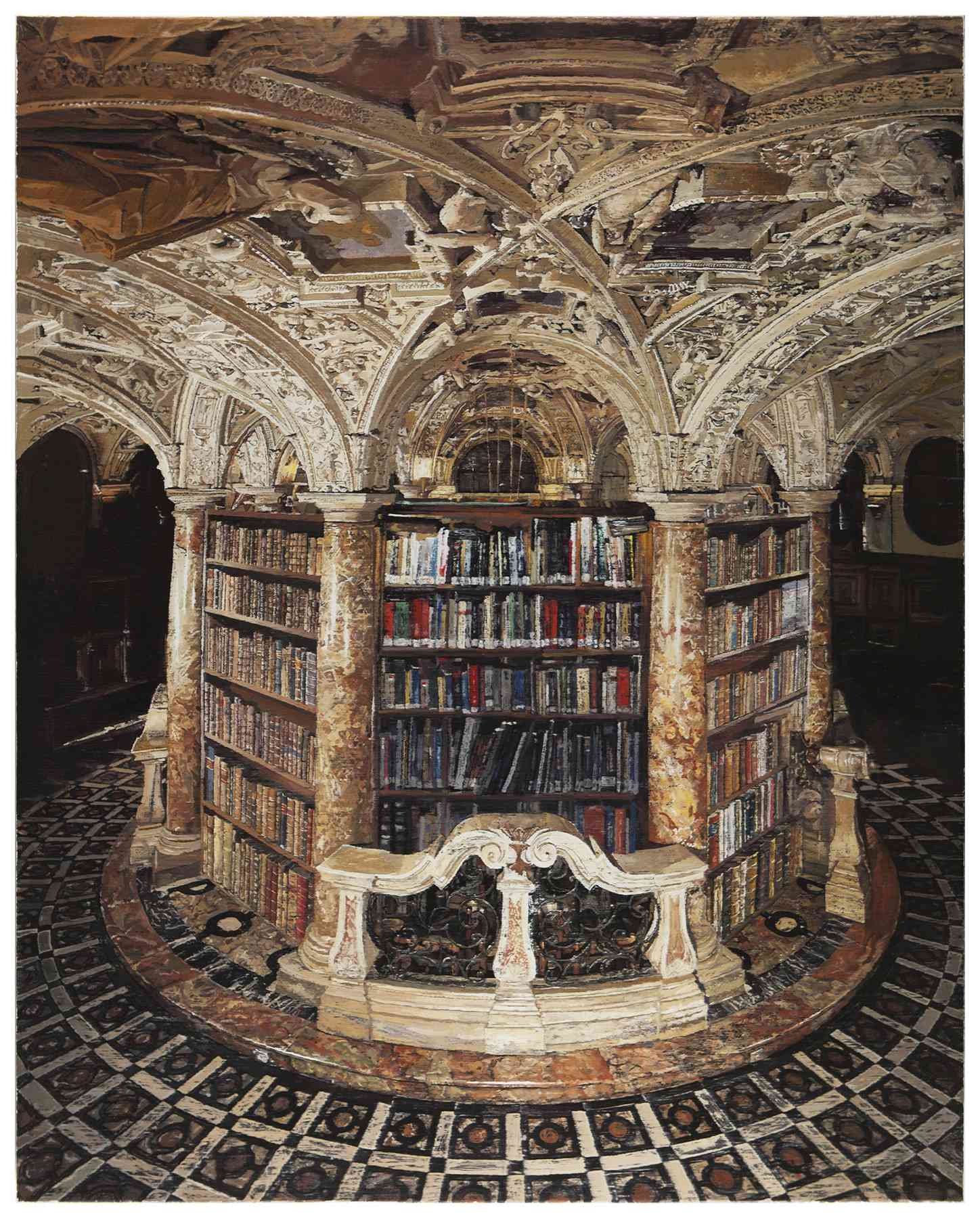
Untitled
2013
Oil on canvas
227 x 180 cm
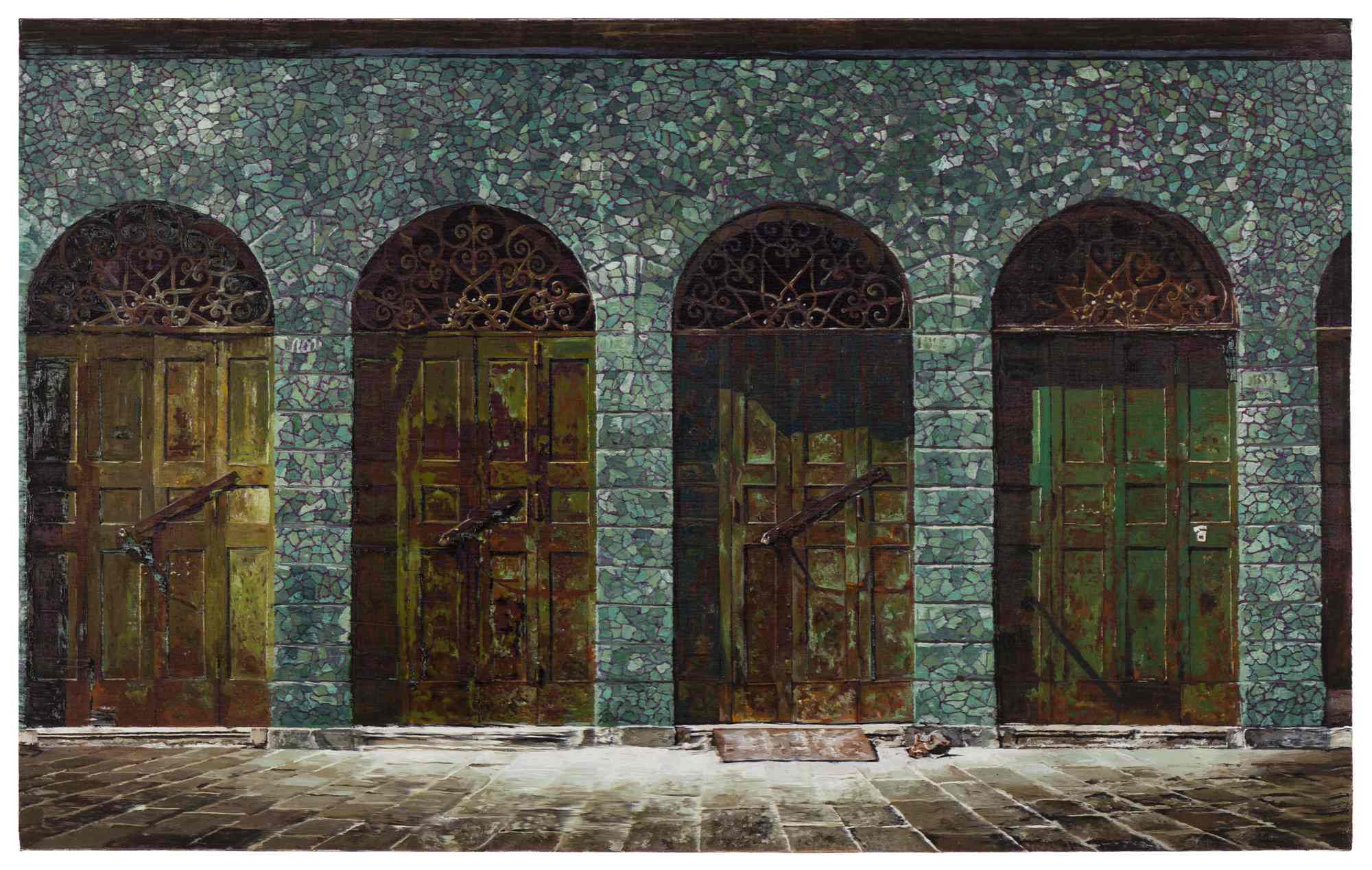
1814A
2012
Oil on Canvas
125 x 200 cm
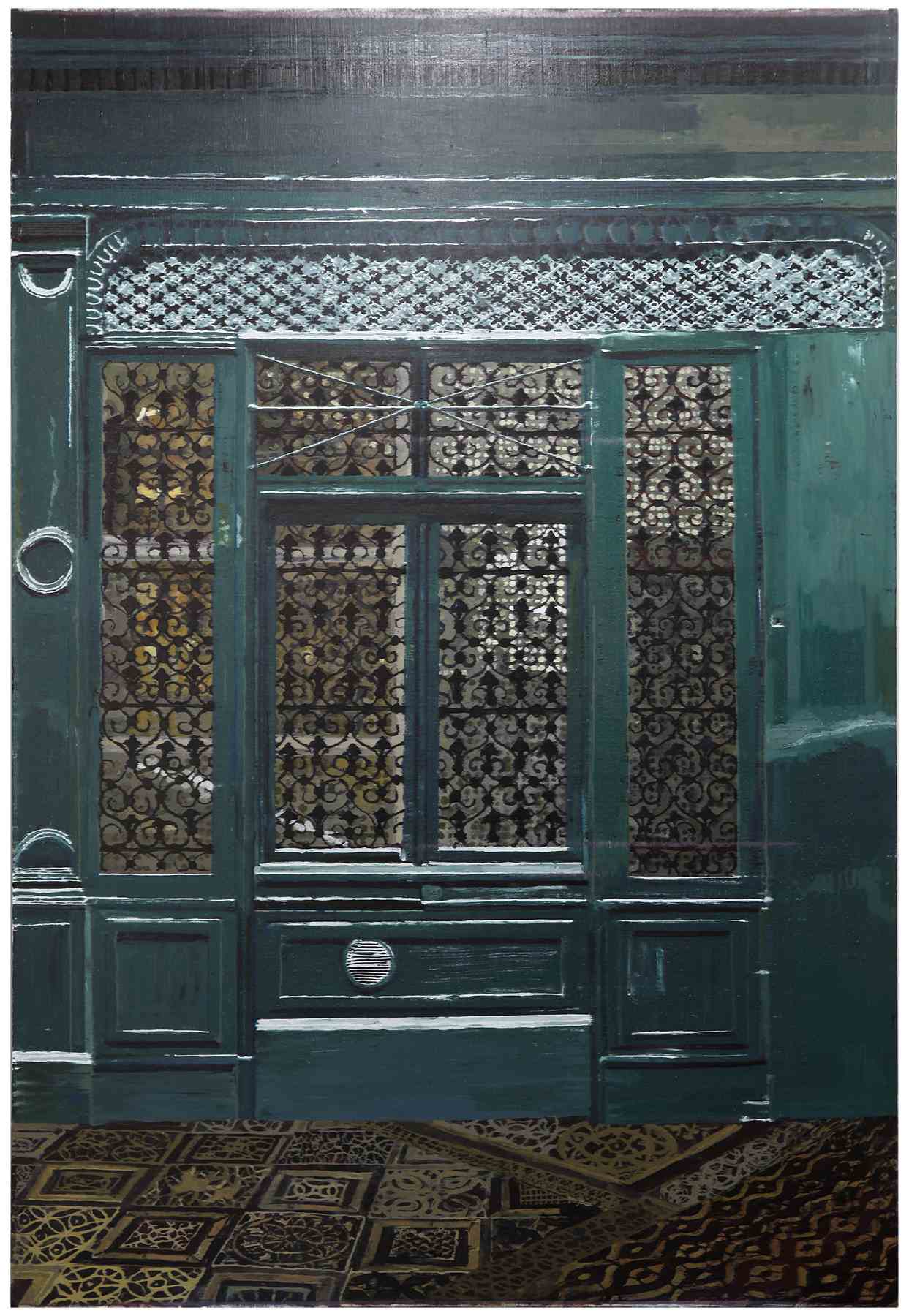
Untitled
2012
Oil on Canvas
160 x 110 cm
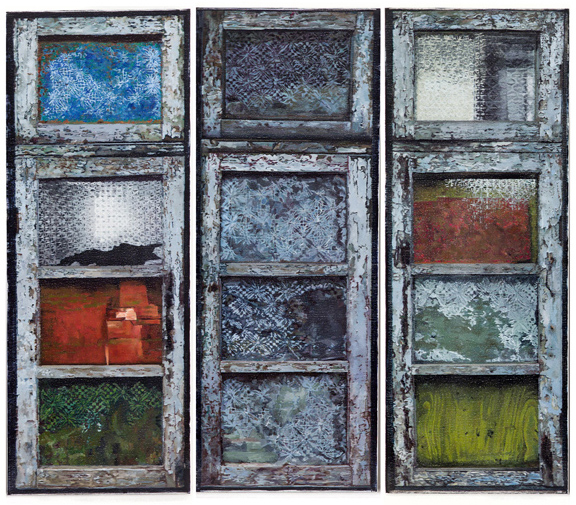
Fragments
2012
Oil on Canvas
132 x 50 cm x 3 panels
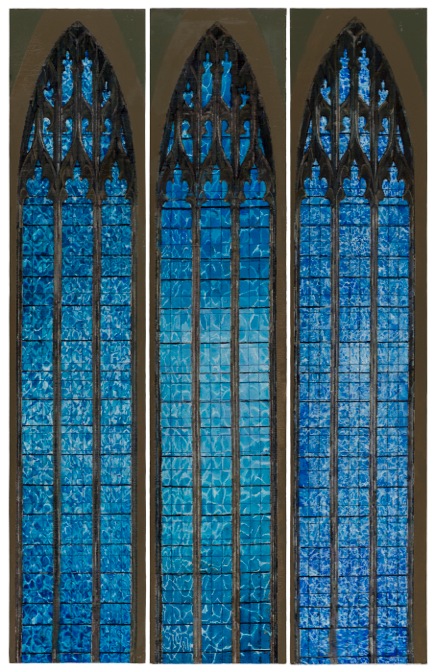
Blues 6
Oil on Canvas
230 x 48 cm x 3
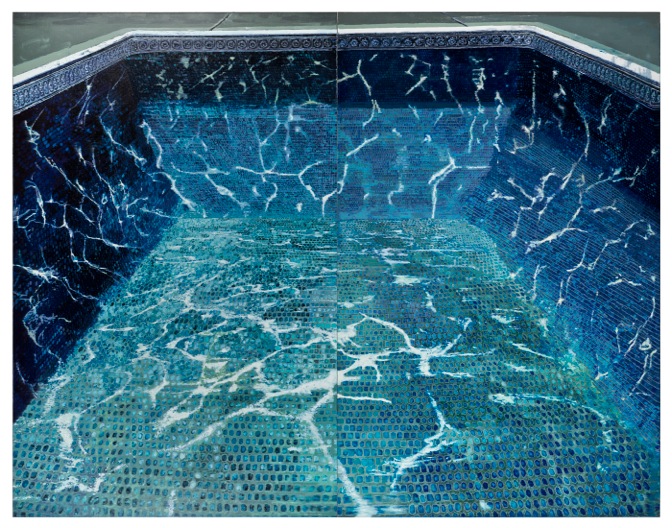
Swimming Pool
2011
Oil on Canvas
360 x 280 cm
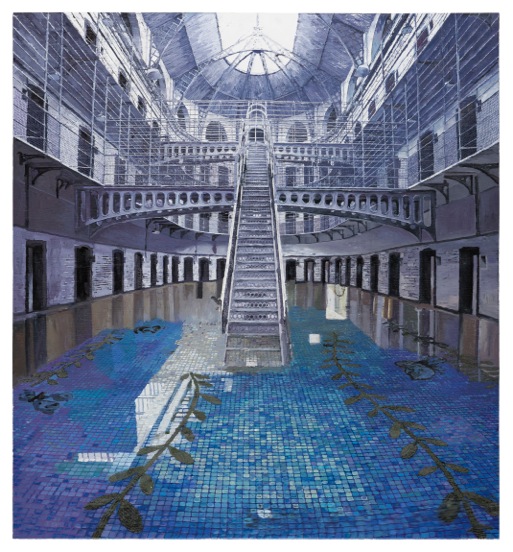
Bridge
Oil on Canvas
195 x 180 cm
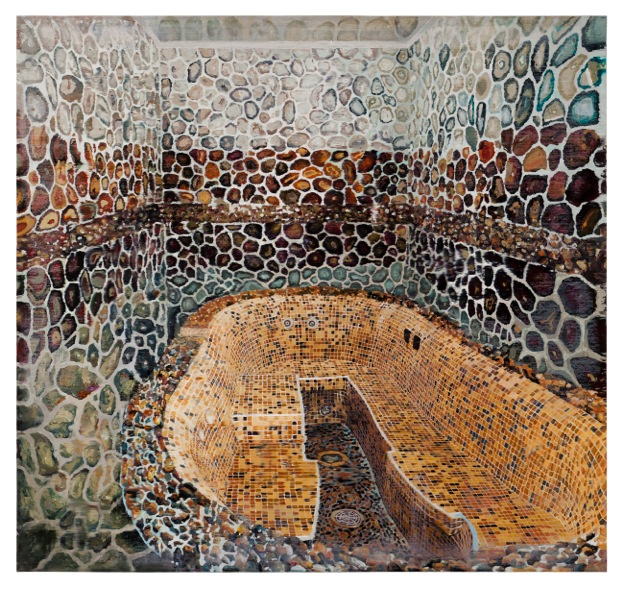
Steam Room
2010
Oil on Canvas
180 x 170 cm
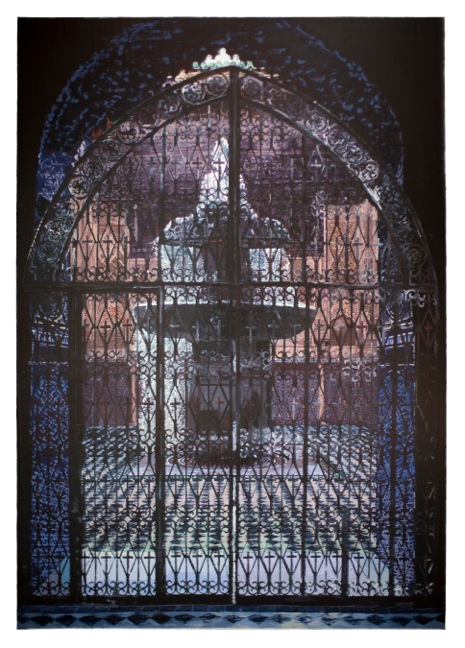
Untitled
2010
Oil on Canvas
200 x 140 cm
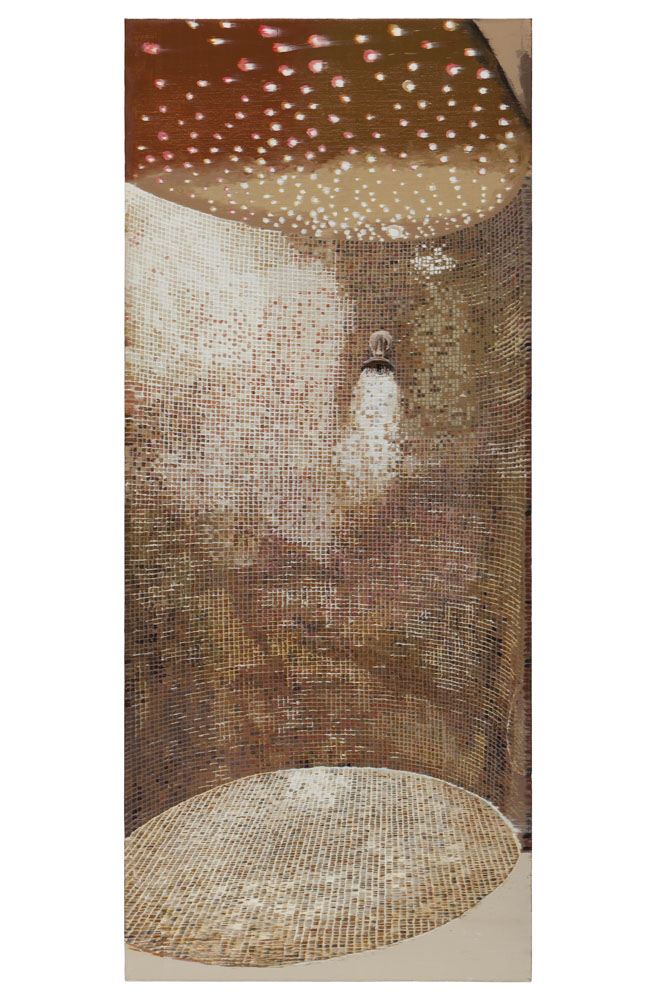
Steam Room III
2010
Oil on Canvas
150 x 63 cm